






















+ TOP 30 UNDER 30




























+ TOP 30 UNDER 30




Travel has always held a fascination for most consumers but never has it been as popular as it has become post pandemic.
According to a Travel Trends 2024 report produced by Mastercard Economics Institute, the travel sector in 2024 across 74 markets is breaking boundaries. The report states that through March 2024, consumer spending on travel is robust with significant increases in passenger traffic.
Granted, fluctuating exchange rates and varying levels of affordability are impacting who’s travelling where, but the desire to travel remains stronger than ever. In 2024, the travel sector is flourishing, with nine out of the last 10 record-setting spending days in the global cruise and airline industry occurring this year. Additionally, travellers are also extending their trips by an extra day compared to pre-pandemic.
Here are a few findings from the report:
• Record travelling. An all-time high of 15.9 million Americans travelled internationally in Q1 2024, while Japan welcomed more than three million passenger arrivals in March 2024 alone.
• Leisure for longer. Tourists worldwide are spending an extra day on vacation on average — those from Europe and the Middle East and Africa are spending roughly two — with the trend driven by affordable destinations and warmer climates.
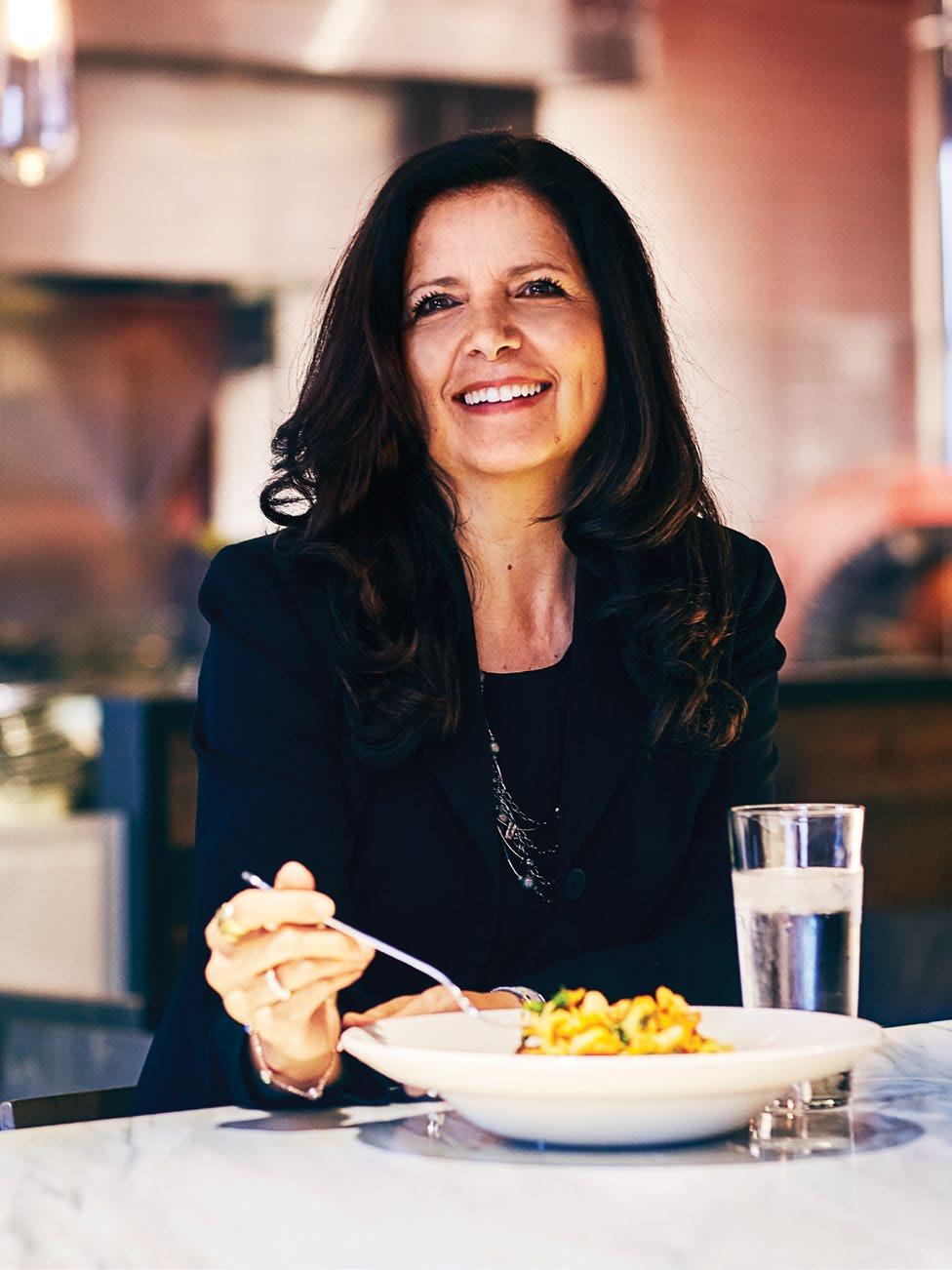
• Experience economy on the go. Consumers are prioritizing meaningful experiences over material goods, even when travelling. Spending on experiences now totals 12 per cent of tourism sales, according to SpendingPulse Destinations, which measures in-store and online retail sales across all forms of payment — the highest point in at least five years as of March 2024.
• Cruising full steam ahead. Cruises are making a remarkable comeback with the count of global cruise passenger transactions roughly 16 per cent higher than 2019 levels in Q1. Booming cruise demand is also seen at key ports. For many travellers, the widening price difference between cruises and hotels has made cruises a more budget-friendly option for a getaway.
• Top 10 trending destinations . While Japan has emerged as the global frontrunner for top destination in the last 12 months, Munich ranks as the top trending destination for this summer. Notably, Albania ranks third in the list of top trending destinations this summer according to the Mastercard Economics Institute, driven largely by savvy travellers seeking authentic Euro-vibes similar to neighbouring Italy and Croatia, but for less the cost. If you’d like to read the full Travel Trends 2024: Breaking Boundaries, click here. ♦
ROSANNA CAIRA rcaira@kostuchmedia.com

BY
ROSANNA CAIRA
Editor & Publisher
AMY BOSTOCK
Managing Editor
NICOLE DI TOMASSO
Associate Editor
COURTNEY JENKINS
Art Director
JENNIFER O'NEILL
Production Manager
TYLER BECKSTEAD
Web Manager
JIM SZABO
Digital Marketing Manager
JANINE MARAL
Social Media Manager
WENDY GILCHRIST
Director of Business Development
DANNA SMITH
Account Manager
ZACK RUSSELL
Sales & Marketing Assistant
DANIELA PRICOIU
Senior Accountant
Andrew Weir, Destination Toronto; Anne Larcade, Sequel Hotels & Resorts; Bonnie Strome, Hyatt Hotels; Christiane Germain, Germain Hotels; Gopal Rao, Conestoga College; Hani Roustom, Friday Harbour Resort; Laura Baxter, Co-Star Reetu Gupta, Easton's Hotels; Ryan Killeen, The Annex Hotel Ryan Murray, The Pillar + Post Hotel; Stephen Renard, Renard International Hospitality & Search Consultants
HOTELIER is produced eight times a year by Kostuch Media Ltd., Mailing Address: 14 – 3650 Langstaff Rd. Ste. 33, Woodbridge, ON L4L 9A8, (416) 447-0888. Subscription rates: Canada: $25 per year, single issue $4, U.S.A.: $30 per year; all other countries $40 per year. Canadian Publication Mail Product Sales Agreement #40063470. Member of Canadian Circulations Audit Board and Magazines Canada. Printed in Canada on recycled stock.
All rights reserved. The use of any part of this magazine, reproduced, transmitted in any form or means, or stored in a retrieval system, without the written consent of the publisher is expressly prohibited and is an infringement of copyright law. Copyright, Hotelier 2024 ©
Return mail to: Publication Partners 1025 Rouge Valley Dr., Pickering, Ontario L1V 4N8
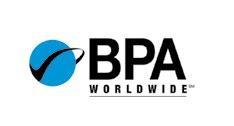





































































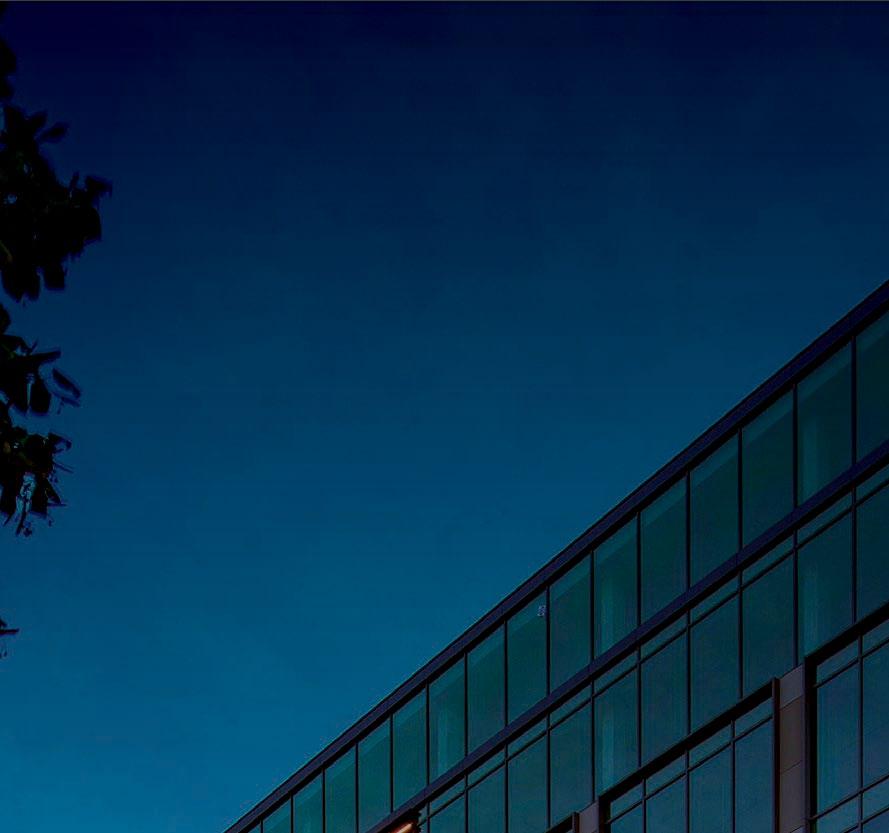
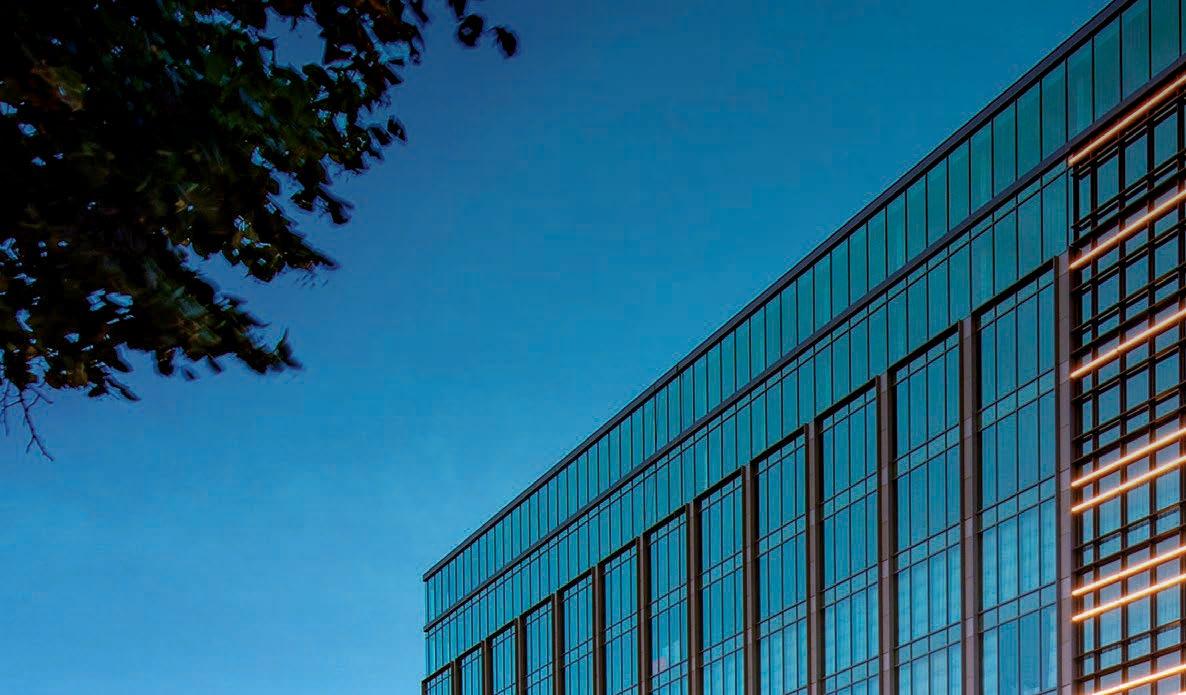








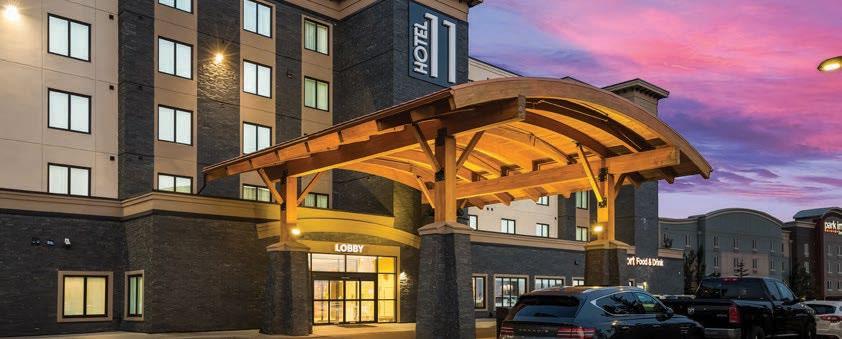



The MOA outlines a commitment by the five provincial hotel associations to:
• Develop training materials that raise awareness of human trafficking among hoteliers.
• Educate hotels, motels, and other accommodation providers about recognizing the signs of human trafficking.
• Equip hotel owners and managers with the tools to train their staff on preventing and responding to potential human trafficking solutions
Canadian hotel associations join forces to combat human trafficking
In a ground-breaking initiative to combat human trafficking, the British Columbia Hotel Association (BCHA), Alberta Hotel & Lodging Association (AHLA), Saskatchewan Hotel & Hospitality Association (SHHA), Manitoba Hotel Association (MHA) and Ontario Restaurant Hotel and Motel Association (ORHMA) have signed a Memorandum of Agreement (MOA) to develop and deliver human-trafficking awareness and prevention training and resources to hotels with the goal of training every hotel employee from B.C. to Ontario.
Human trafficking is one of the fastest-growing crimes in Canada, with thousands of victims being exploited annually. Hotels can inadvertently become venues for traffickers, making it imperative for the hospitality industry to take a proactive stance in recognizing and preventing human trafficking.
“Since trafficking networks often rely on legitimate businesses — many in the tourism supply chain — to sustain their illicit and illegal operations, hoteliers are uniquely positioned to identify and disrupt this crime. This agreement empowers our members to be part of the first line of defense against trafficking activities, supporting the health and safety of our staff and guests, and helping victims to get the help they need,” says Tracy Douglas-Blowers, president & CEO, AHLA.
Partnering with NotInMyCity, the associations will create a “Not-in-Our-Hotel” toolkit, which will include:
• Sample policies for hotels and guidelines for employee orientation.
• Best practices for accommodation providers.
• Training materials for management and staff, including online courses that provide certificates of completion.
• Posters and quick reference guides for employees.
• Resources to help employees discuss human trafficking with their children and support staff impacted by trafficking.
Hotels are committed to creating safe environments for all guests and staff. By signing this MOA, the associations demonstrate their dedication to combating human trafficking. This initiative not only aligns with federal and provincial efforts to eradicate human trafficking but also supports the safety and well-being of the communities hotels serve.
“Not In Our Hotel sends a loud and clear message: we will not tolerate human trafficking in the hotel industry. Thanks to our dedicated members and their staff, we already have a strong track record of combatting trafficking and supporting survivors. There’s still much more to do, and our commitment to training and education will continue to make the difference,” says Jim Bence, president & CEO, SHHA.♦
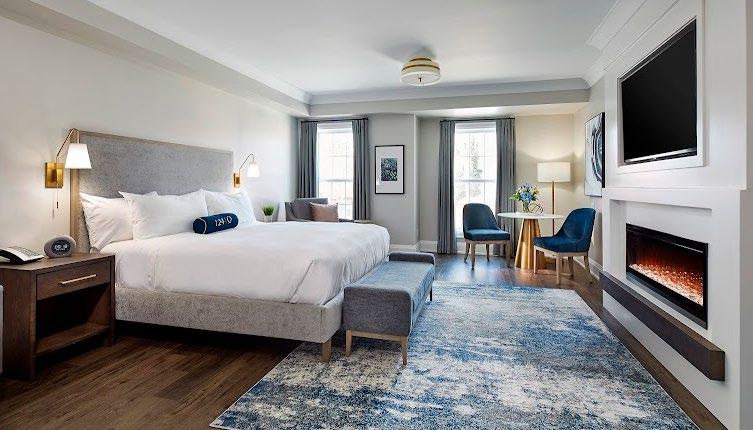
124 on Queen Hotel & Spa has debuted its five newly designed Wellness Suites. The garden-level suites feature natural materials such as wood, marble and stone in combination with soft fabrics and furnishings. Each features a king-size bed, an electric fireplace, a wet bar with a built-in mini fridge, spa-like ensuite with a double vanity and rain shower and private patio with a gas firepit. Additional enhancements include salt lamps designed to purify the air and improve mood and sleep, yoga mats, a choice of in-suite aromatherapy and essential oil steamer tablets for the shower.
The hotel complex itself is comprised of 72 guestrooms spread out over five buildings. Guests can enjoy culinary offerings at NOTL Bar & Lounge and the farm-totable fine dining at Treadwell Cuisine. The hotel has also revealed a garden area spread out over nearly an acre of land and a new dining terrace.
The hotel also introduced two Spa Retreat packages: The Luxe Glow Spa Day (five hour) package and the Luxe Glow Spa Two-Day Retreat.
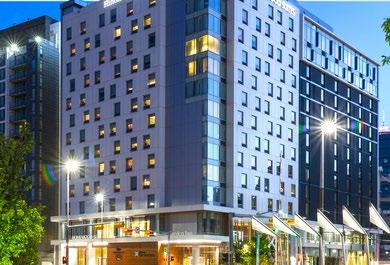
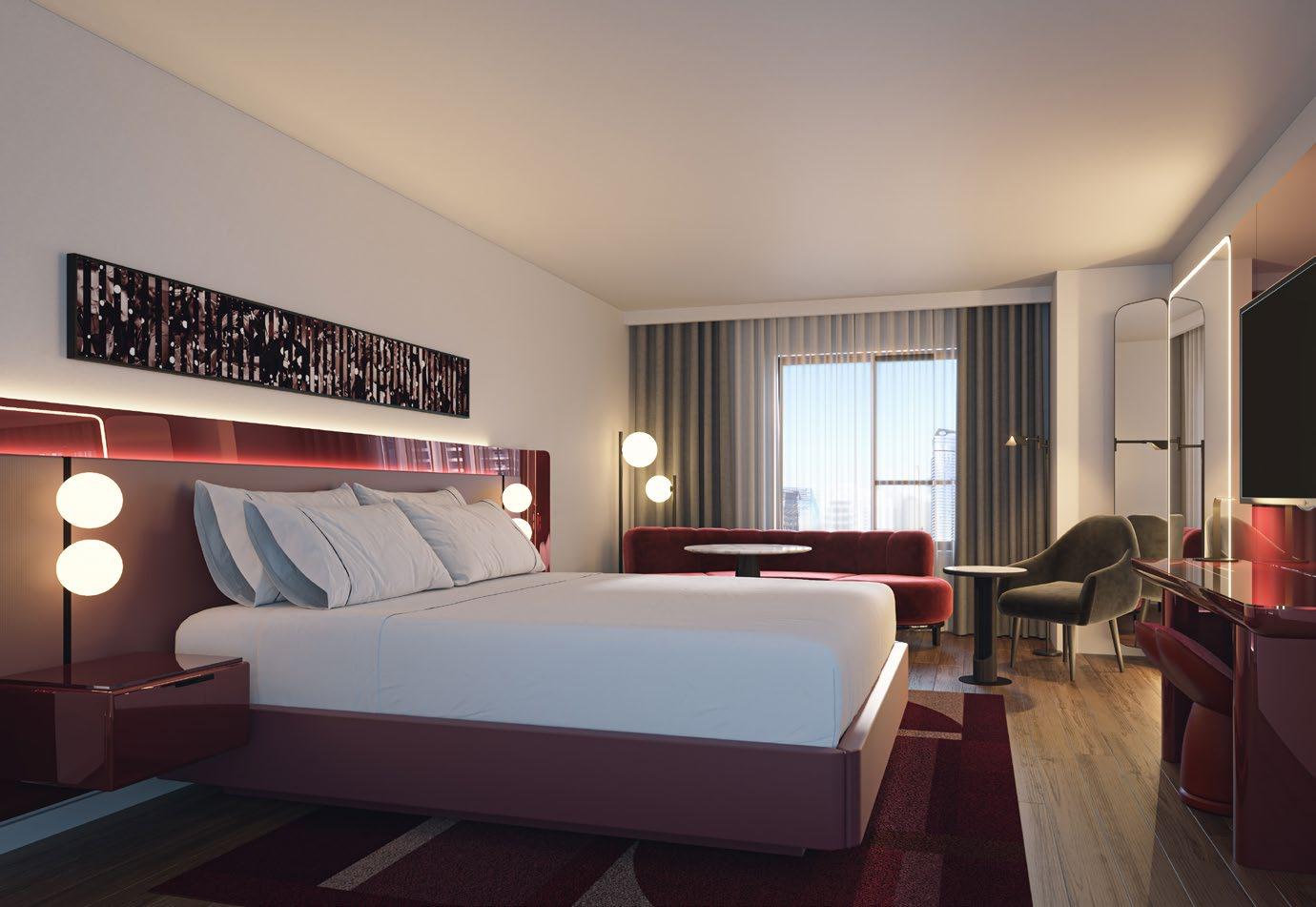
Hilton, Easton’s Group of Hotels and The Gupta Group have announced the opening of the 224-room Revery Toronto Downtown, Curio Collection by Hilton.
“We’re delighted to launch Ontario’s first Curio Collection by Hilton property in Toronto. Revery will bring a bespoke blend of sophistication, design and hospitality,” says Reetu Gupta, ambassadress, The Gupta Group and Easton’s Group of Hotels. “With its prime location, Revery is more than a destination; it’s an alluring and captivating experience.”
Revery’s design acts as a discovery that reflects the lights, drama and sociability of the neighbourhood. Muse Lobby Bar is fashioned in bold ruby-red textures with white statement lighting. With its entrance on Peter Street, Muse is a modern concession stand where hotel guests and neighbours can meet over bespoke cocktails, coffee and small bites.
The Box Office under the marquis lights and monochromatic checkerboard concrete tiles is where guests can explore the modern check-in pods, with big screen backdrops playing classic black-and-white movies and historic images of Toronto’s landmarks.
At Deauville Club, Revery’s French-inspired restaurant helmed by chef Tom Chlebek, features oak herringbone floors and violet-infused marble accents.
Adjacent to Deauville Club, heavy velvet drapes lead guests to the Gupta Room – a private space for meeting and entertaining. For intimate meetings and events, the hotel has to two spaces to engage and exchange: the Cinema Room and Easton’s Boardroom. For larger private parties, Deauville Club can welcome up to 100 guests.
Colliers Hotels has announced the sale of the Hilton Garden Inn Calgary Downtown and Homewood Suites by Hilton on behalf of a private institutional owner to Manga Hotels.
This urban dual-branded 320-key Hilton asset is positioned in the heart of downtown Calgary’s growing and trendy East Village neighbourhood. The 13-storey property includes a mix of amenities, including shared recreation and more than 3,000 sq. ft. of meeting space, as well as a rooftop terrace and full-service licensed restaurant.

The JW Marriott Parq Vancouver x Veuve Clicquot Aqua Lounge has returned for a second year. Located on the 17th floor of the hotel, the JW Marriott Parq Vancouver Aqua Lounge x Veuve Clicquot celebrates the theme Rosé Together for 2024.
At the JW Marriott Parq Vancouver Aqua Lounge x Veuve Clicquot, guests can choose between Veuve Clicquot Rosé or Yellow Label Champagne, or pick from a range of champagne cocktails, including a rosemary JW French 75, peach Bellini, or strawberry JW Sparkle.
In addition, the culinary team at JW Marriott Parq Vancouver and the DOUGLAS, Autograph Collection — led by Kunal Dighe, dual property executive chef — has designed a bespoke menu to pair perfectly with the Aqua Lounge offerings. Guests can look forward to appetizers including the Fraser Valley Wagyu Meatball, Peri Peri Brussel Sprouts, Mountain Mushroom Crostini, or mains including a JW Garden Herb Burger or Brant Lake Wagyu Burger.
The Aqua Lounge will be open until the end of summer, exclusive to guests who book an overnight stay or spa experience at JW Marriott Parq Vancouver.

Choice Hotels Canada is growing its Ascend Hotel Collection with the addition of Waterfront Inn, located in downtown New Liskeard, Ont. This is the fourth Ascend Hotel Collection property to open in Canada this year, growing the brand count to 29 properties in the country.
The 41-room hotel offers useful in-room amenities such as Keurig coffee machines, microwaves, and mini fridges. Guests at the pet-friendly property can also start their day with a complimentary hot breakfast. Hotel amenities include a meeting room and onsite restaurant, 28 On The Lake, that serves pizza, pasta, salad and sandwiches, and offers indoor and outdoor seating.
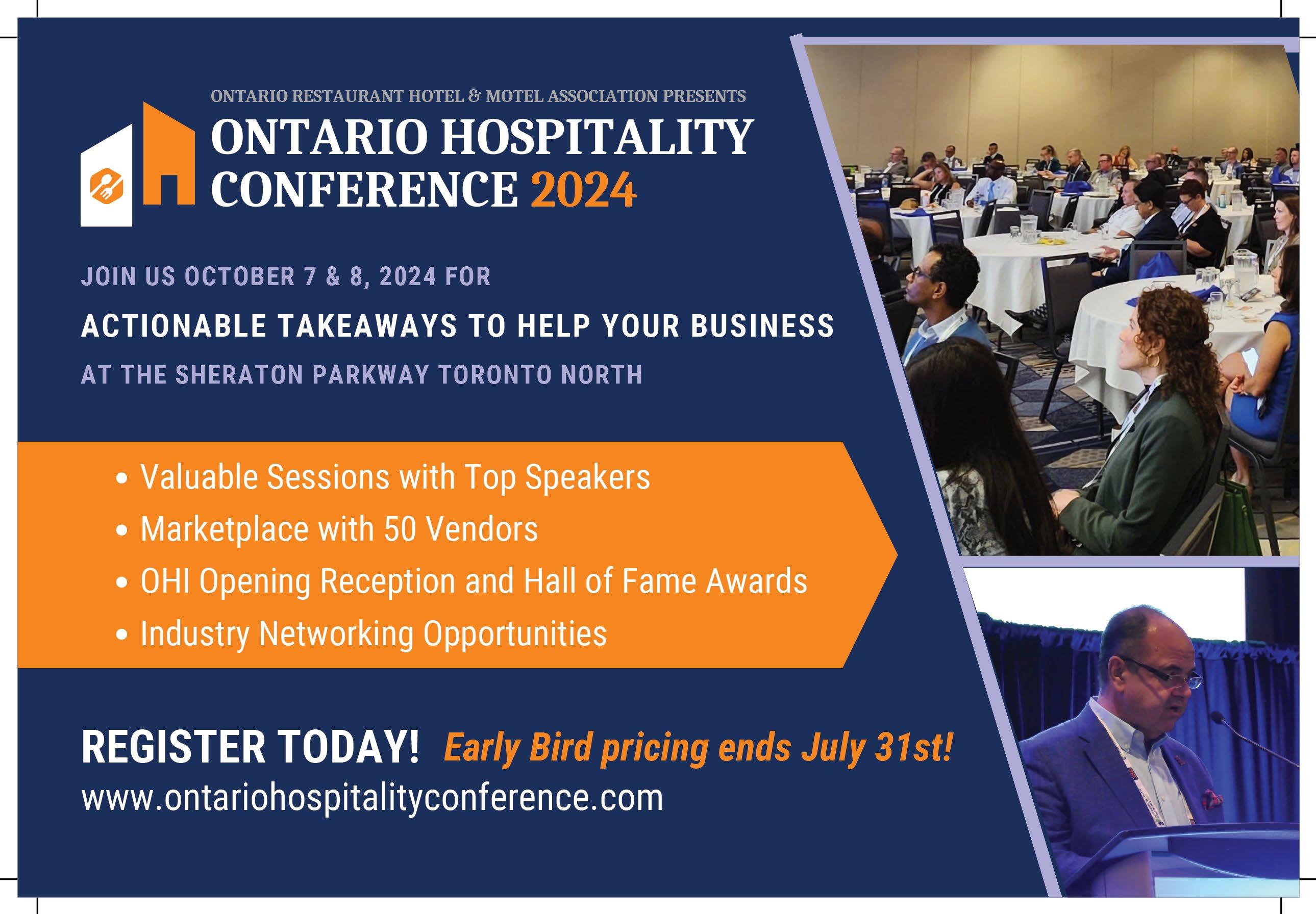










WBY ADAM AND LARRY MOGELONSKY
ith sleep science reaching the mainstream over the past few years, numerous hotel brands have unveiled new sleep programs to win over travellers looking for accommodations that’ll help them get a full night’s rest while abroad.
The rise of sleep tourism isn’t limited to only luxury hotels that have the capital to devote to noise-dampening materials, air-purification systems or bedding systems with built-in temperature and moisture controls. Rather, any brand can build a strategic plan for deploying affordable sleep enhancements to their rooms and their onsite services.

It has only been a decade or so that society has started to approach sleep not just as an unconscious and unnecessary aspect of life but as perhaps the most vital period of the 24-hour cycle. Sleep architecture describes the controlling operator in the brain that determines the daily rhythm of when you feel tired, when you should wake up, when you should extend the duration of sleep and how to allocate the time you’re asleep to REM and non-REM.

with amber-red wavelengths at night to get a good night’s sleep. Sleep architecture tells us that you have a bodily clock that’s sensitive to blue light. A few hotels are keen to meet this need, upgrading their lighting systems with non-overhead, dimmed evening lights as well as ones that can adjust into the red spectrum to set the mood for sleep. A far cheaper amenity is to offer blue light-blocking glasses.


Once you understand that the architecture of sleep is all about maintaining a rhythm and the allocation of limited resources, you can begin to design sleep programming for your hotel that’s highly personalized, customizable and more effective. Here are some ideas for programming through the lens of sleep architecture.
1. Melatonin supplementation. Several hotels are now including melatonin-based beverages, low-dose pills or powder additives as part of the mini-bar or in the sundry. The issue with this supplement is timing; take it too late and in too high a dose and you’ll likely wake up groggy, especially if your sleep rhythm hasn’t adjusted to a new time zone.

3. Bedding customization. Sleep interruptions can negatively affect bodily repair and REM cycling. A host of new-age suppliers ready to help solve these issues. To that end, there are mattresses with built-in temperature controls being deployed at luxury hotels; pillow concierge services where guests can sample different firmness levels; and smart thermostats that can better help keep the ambient temperature at the scientifically preferred 19C. Additionally, many hotels are offering breathable linens as well as materials that don’t emit volatile organic compounds (VOCs) and more effective HVACs. Combine these features with sleep tracking wearables and your guests can see the overnight benefit to their health in terms of improved sleep-quality scores.


2. Circadian lighting equipment. It’s becoming common knowledge that we should all limit blue light and stick


4. Food menus. The method for getting the best possible sleep is the 3-2-1: no food three hours from sleep, no water two hours out and no screens one hour out. By doing this, it means that your blood is never being re-directed to your digestive tract to absorb food and can squarely focus on repairing the body during slow-wave sleep. Given these rhythmic challenges, hotels can best serve varying guest needs by designing sleep-friendly food menus comprised of light, nutrient-dense and easily digestible snacks. ♦
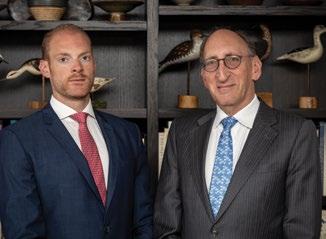
Larry and Adam Mogelonsky are partners of Hotel Mogel Consulting Limited. You can reach Larry at larry@hotelmogel.com or Adam at adam@hotelmogel.com

BY STEPHEN J. RENARD
The path to becoming a CEO in the hospitality industry is often glamorized but rarely understood in its entirety. Fulfilling the role of CEO in a major hotel group, especially one that publicly trades, entails sacrifices that extend far beyond the boardroom.
Endless travel, often solitary, disconnects you from the warmth of family life, replacing it with the sterile embrace of hotel suites. The crispness of new sheets and the scent of new paint serve as constant reminders of impermanence, echoing the fleeting moments stolen from your loved ones. Even moments spent with loved ones are often spoiled by constant interruptions and business calls.
You’re always travelling to cities in bumper-to-bumper traffic and attending industry conferences with limited opportunity for candid opinions because you fear that any negative comments could adversely affect the company’s stock prices downward. You’re surrounded by eager-to-impress employees. Even the simplest tasks become magnified as all try to impress you for a potential future promotion, increased salary or bonus. Relaxation becomes a distant luxury, with someone
always hovering. Under the relentless scrutiny, your every move is watched beneath the shadow of a spotlight that follows you from place to place.
CEOs are tasked with delivering motivational speeches about the company to employees and potential hires who only seem to show interest when discussions about a potential raise or compensation arise.
It all becomes a tiresome routine. Despite these challenges, whether you claim to do this role out of sheer enjoyment or because someone has to do it in the best interest of the company, I don’t believe you.
As senior colleagues retreat to the embrace of family, the CEO is left on to travel through airport immigration, security and then grappling with the exhaustion of crossing multiple time zones. You struggle to sleep as you ponder company issues or respond to emails. If you’re fortunate, you engage in FaceTime or Zoom calls with your family, friends and team members, all of whom are probably enjoying their favourite TV shows, dining out at a restaurant, experiencing new things and relishing the simple pleasures of life. ♦













By Matt Carter




























Given the pandemic-induced focus on air quality, social distancing and sanitation — not to mention the regular stresses of modern life — many of us are paying greater attention to our personal health than ever before. While self-care was previously seen as a luxury that involved occasionally indulging oneself as a treat, it’s come to be viewed as a daily requirement, essential to both physical and mental health.
Of course, no such o ering is complete without addressing noise — a problem with which hoteliers are all too familiar. For decades, it’s ranked among the top guest complaints across all property types, and is known to disrupt sleep by preventing onset, prompting shifts to lighter stages, and causing awakenings. However, the solution to this issue might come as a surprise to those unfamiliar with the science of acoustics.












Indeed, wellness is now a dominant consumer value around the world — and a key driver for the travel and tourism industry. According to a 2021 report, the Global Wellness Institute expects our increasing emphasis on well-being and work-life balance to power a 21 per cent annual growth rate in wellness tourism as we approach 2025. Hoteliers are responding with an abundance of health-related amenities, including on-site experts, meditation classes and personalized spa services. Many are also ramping up o erings related to another key consideration with particular relevance for hotels: sleep.


more serious











Studies conducted in healthcare, residential and military facilities show the likelihood a noise will disrupt an occupant largely depends on how much change it causes in their room’s typical ambient conditions. The greater the change, the harder it is for them to ignore, even while asleep. The ambient level in most guest rooms is often just 28 to 33 A-weighted decibels. In these ‘pin-drop’ environments, just about any noise — even normal conversation in the hallway — creates a significant change.







































As the Centers for Disease Control and Prevention emphasizes, “getting enough sleep is not a luxury — it is something people need for good health.” If we’re deficient in this regard, it can weaken our immune system, making us more likely to catch a cold. Research also links sleep deprivation with more serious conditions, including type-2 diabetes, high bloodpressure, heart disease, cancer, and obesity. Additionally, lack of quality slumber affects our brains, accelerating aging and increasing risk of dementia, depression, anxiety, and generally ‘fuzzy thinking.’ Alarmingly, drowsy driving is likely responsible for around 6,000 fatal crashes per year in the United States alone.
















Guests can be made more comfortable by taking a simple step that initially seems to contradict the goal of reducing noise: increase their room’s background sound level using masking sound. Although often compared to softly blowing air, the sound produced by a commercial-grade device such as MODIO Guestroom Acoustic Control follows a specific spectrum developed by the National Research Council to balance the need for acoustic control with that of occupant comfort. It covers many noises and reduces the disruptive impact of others, creating a less variable — and, therefore, more comfortable — sleeping environment.

Today’s health-conscious guests expect their chosen property to provide them with a good night’s rest. In fact, a TripAdvisor survey found 55 per cent look for reviews that specifically mention sleep quality before they make a reservation. Guests are also increasingly on the lookout for sleep-related amenities, such as tech-free rooms, high-quality mattresses, pillow menus, and even in-room consultations aimed at re-setting unhealthy sleep patterns.
The rapidly-growing demand for such wellness o erings provides abundant opportunities as hotels continue to recover from the pandemic. Equipping your guest rooms with masking will ensure your guests get the ‘healthy-dose’ of sleep they need to feel refreshed and rejuvenated — and singing your property’s praises, rather than anxiously awaiting their return home.
































































































































































































































Guests are looking for sleep-focused amenities, and no offering is complete without addressing noise. It’s a top complaint across all property types and well known to disturb slumber. By reducing both the frequency and magnitude of noise disruptions, MODIO will help them find dreamland – and wake up singing your property’s praises rather than anxiously awaiting their return home.


BY AMY BOSTOCK AND NICOLE DITOMASSO PHOTOGRAPHY BY WILSON HUYNH

More than 260 hospitality professionals gathered recently at the Chelsea Hotel, Toronto for Hotelier’s ninth-annual Housekeeping Forum and the Greater Toronto Hotel Association’s (GTHA) third-annual Hotel Summit, marking Hotelier’s first hybrid event in partnership with the GTHA.
“In creating the Housekeeping Forum several years ago, Hotelier wanted it to be a testament to our commitment to recognize and foster the immense value that housekeeping professionals bring to our industry,” said Rosanna Caira, editor/publisher, Hotelier magazine. “By now combining our two conferences into one, we allow housekeeping professionals to better understand the various complex issues and challenges that hoteliers are facing and we allow general managers and other hotel executives to
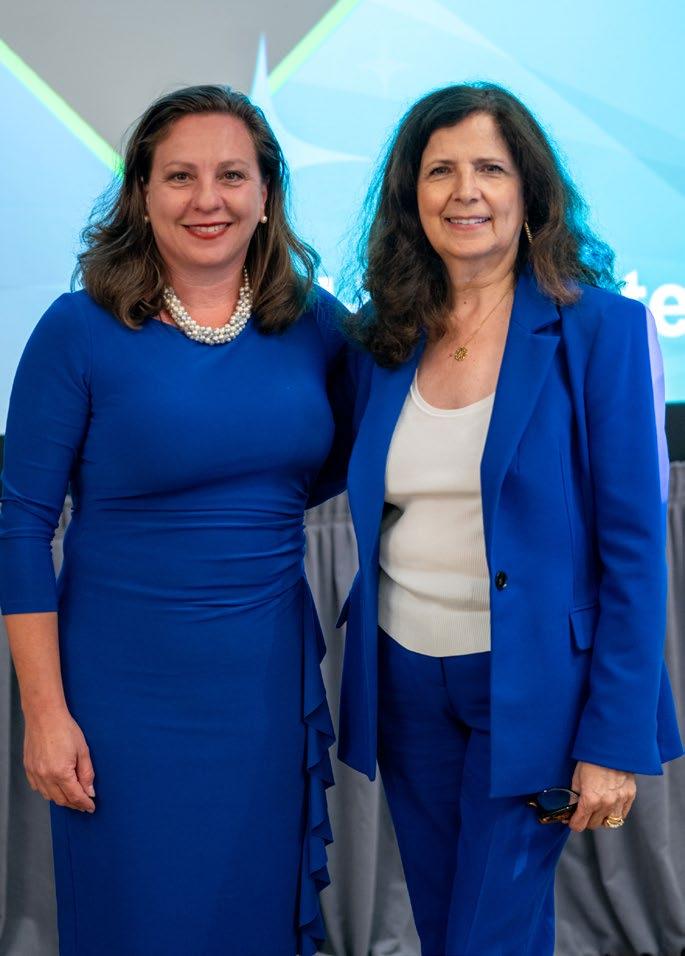
better understand the issues shaping the housekeeping department, from the perspectives of their own housekeeping team. We think it’s a win-win.”
“As we approach the 100-year anniversary of the Greater Toronto Hotel Association, it’s more important than ever to honour the legacy of

excellence that our members represent,” said Sara Anghel, president & CEO, GTHA. “GTHA has always championed the importance of every role within our hotels. By bringing together housekeeping professionals and hotel executives, we’re not only celebrating the hard work and dedication of our teams but also fostering a deeper understanding and collaboration that will drive our industry forward. In combining our two events, this conference provides an important platform for all of us to engage, learn and build a future where every member of our hotel family thrives. Together, we’re shaping the next century of excellence for the industry. We look forward to continuing to grow this relationship through future initiatives.”
The first panel of the morning, Sustainable Hospitality: Navigating the Green Future, was moderated by Edwin Frizzell, regional VP, Central Canada, Fairmont
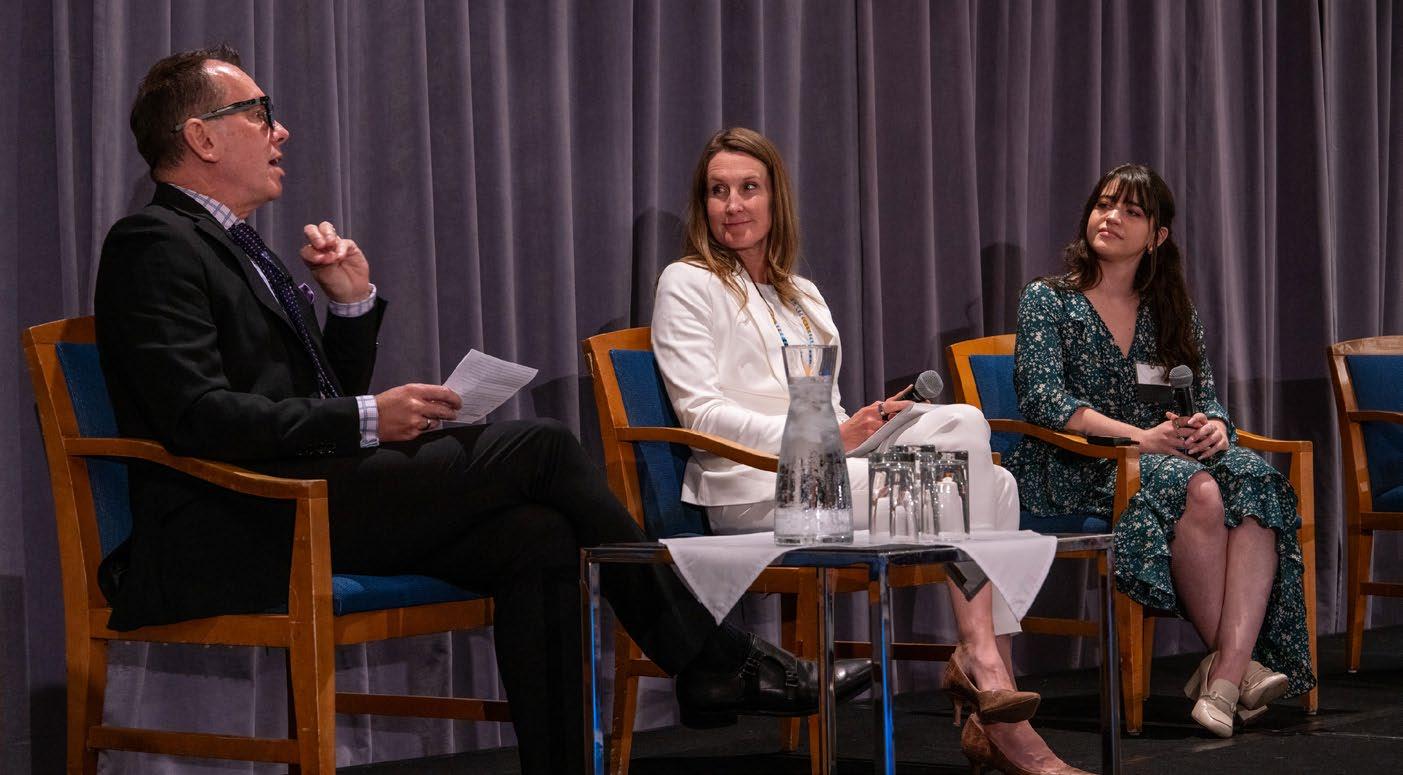
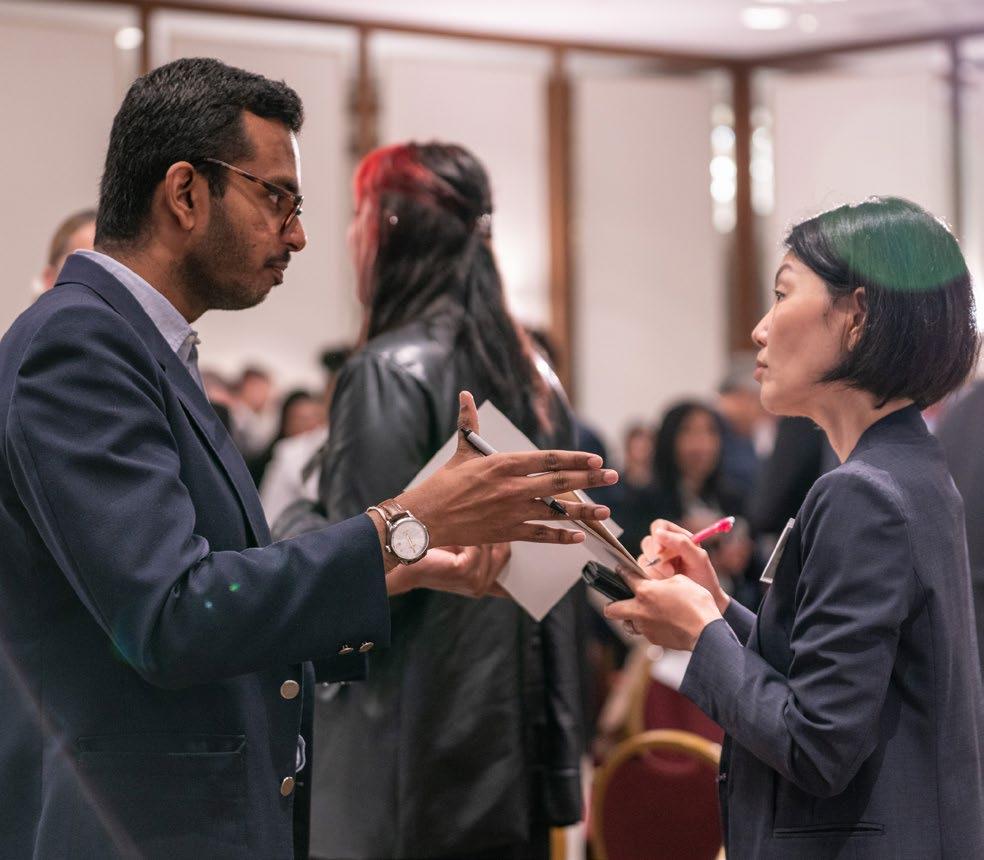
Hotels & Resorts and general manager, Fairmont Royal York. The panel featured Angela Nagy, founder and CEO, GreenStep Solutions Inc. and Georgy Pyle, Sustainability manager, Fairmont Royal York and KML Top-30-Under-30 winner/valedictorian for 2024.
Nagy outlined some ways to measure sustainability within the tourism-andhospitality sector, such as certification programs, energy assessments, social and cultural audits and more, adding that GreenStep Solutions Inc. is Rainbow Registered and also a living wage-certified employer.
“Instead of thinking about sustainability as this big mountain that we need to overcome, what if we thought about it as an enabler? What if we looked at becoming more sustainable as a way to operate more efficiently, cut costs to improve profitability and meet growing consumer and corporate demand to attract top talent through value proposition?”
Then, Pyle shared the sustainability model at the Fairmont Royal York. She said at the centre of the model are people and nature. Outside, there are three key pillars: stay, eat and explore. She said the stay pillar involves looking at the impacts of the hotel itself, including energy and water usage; eat pillar involves initiatives such as food-waste reduction and sourcing; and explore pillar involves biodiversity, community giving and more.
“A big focus at the Fairmont Royal York under the stay pillar is energy use/reduction,” said Pyle. “Previously, steam represented about 88 per cent of our carbon emissions for the hotel, but reducing our reliance on steam and shifting over to other systems allowed
us to reduce our direct emissions by 80 per cent.”
The second panel of the morning, The Future of Housekeeping: Trends & Innovations, was moderated by Caira and featured Lewis Bold Wark, executive housekeeper, Hilton Toronto; Lindsay Webster, director of Housekeeping, Delta Toronto; Anne Szuroczki, director of Environmental Services, EVS, Niagara Fallsview Casino; and Heather Richardson, Operations manager, Courtyard by Marriott Oshawa.
The panellists began by identifying some of the trends they noticed coming out of the pandemic that have impacted the housekeeping department.
“We struggled with staffing levels. A lot of people would attend an interview, be invited to join the team and then never show up,” said Bold Wark. “We had
Other than labour shortages, Bold Wark said there’s a shifting demographic. “There are a lot of housekeepers who are extremely passionate about the quality of cleanliness in hotel rooms but they’re reaching retirement age,” he said. “On the flip side, we have this new cohort of candidates coming in who are also incredible team members but their focus is very different. Generally, they’re not looking at a housekeeper or room attendant position as their last job.”
On a positive note, Richardson said her team “is working with a lot more technology now, so there’s an opportunity to build excitement and bring new tools to the team. Moving forward, I think technology will make things a lot easier for the department and perhaps less path breaking.”
Additionally, Webster said the hotel “started offering flexible working arrangements for our senior room
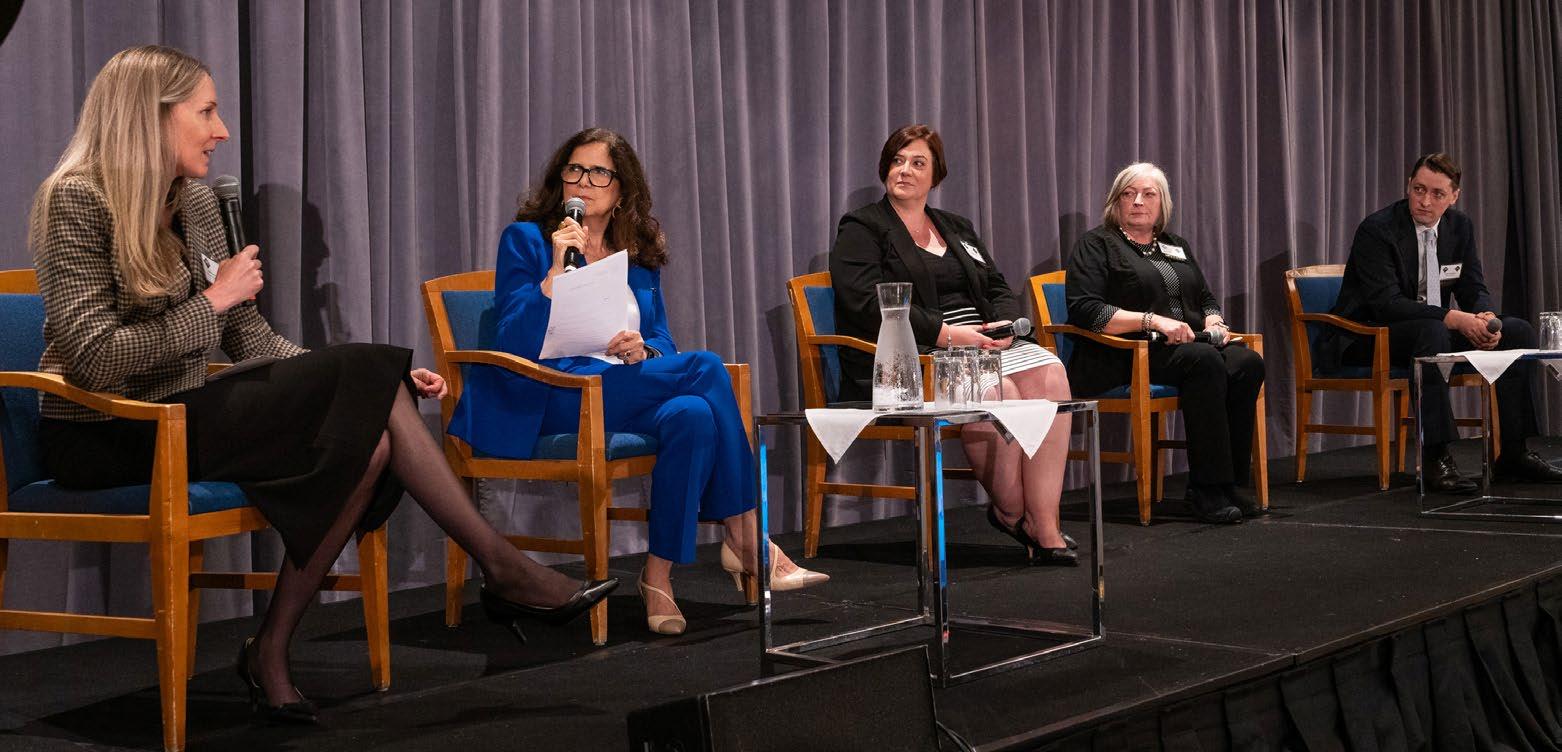
many positions posted and received very few resumés, but we’re seeing a better job market now. The only place I’m not seeing that movement now is trying to hire leaders. We have a lot of interest from entry-level leaders but when it comes to hiring mid-level leaders, such as executive housekeepers and housekeeping manager, it’s been a struggle.”
Other trends included more training to keep up with guest expectations and sustainability practices, such as increased adoption of eco-friendly cleaning products, recycling and minimizing waste.
The panel concluded with a discussion about challenges and opportunities in the housekeeping department in the future.
attendants so they can have an extra day off without having to worry about using a sick day.”
The afternoon program kicked off with Nicole Di Tomasso, associate editor at Kostuch Media Ltd., leading a panel discussion on innovation from the supply side, and how suppliers are helping to make the housekeeping department more efficient and hygienic, especially during these days of labour shortages.
Panellists included Andrew Rees, Corporate Accounts manager, Ecolab; Shivank Savant, director of Housekeeping, Marriott Downtown at CF Toronto Eaton Centre; Greg Staley, GM, E-Pro Bot, Devin Kufske, Business Development
manager, Maxtech Innovation and Shivank Savant, director of Housekeeping, Marriott Downtown at CF Toronto Eaton Centre, and Top-30-Under-30 winner for 2024
Savant set the stage for the discussion by highlighting changes in standard operating procedures and the housekeeping department over the last few years. “We’ve all seen this big shift since the pandemic when it comes to disinfecting high-touch areas in the hotel. It’s something our guests want to see, especially in the public areas — it’s those doorknobs, front desks, credit-card terminals — that’s a big deal for our guests right now,” he said, adding the ongoing labour shortage as well as shifting guest preferences is seeing a rise in opt-in housekeeping services. “That changed how we manage our labour and it’s caused that trickle-down effect into our checklists.”
He said his team has tried to incorporate more technology into its day-to-day operations and also focuses on tracking guests’ preferences and requests to personalize each guest experience.
According to Rees, suppliers have also had to innovate to keep up with these shifts, and many cleaning products have undergone a revolution and are more efficient and less harmful to the environment.
“Ecolab has always designed products and programs to maximize positive impact and our goal has always been to help our customers with their sustainability goals, their safety goals, and their productivity gains within their operations. And we look at this at every level,” he said. “We’re also thinking about the packaging they come in, the concentration, what our use cost is and how long the product will last.”
The conversation shifted to the use of robotics in the hotel industry, which Staley said has been slower to be adopted than in other parts of the world.
He believes the slow adoption rate in Canada is due to few factors, including awareness and fear of job losses. “We never sell robots to replace people. This is one of our policies,” he stressed. “They’re the ultimate assistant so we actually sell robots to help keep people employed.”
A topic that garnered interest among attendees was bed bugs — more specifically, how technology can help eliminate the problem — as Toronto was recently named

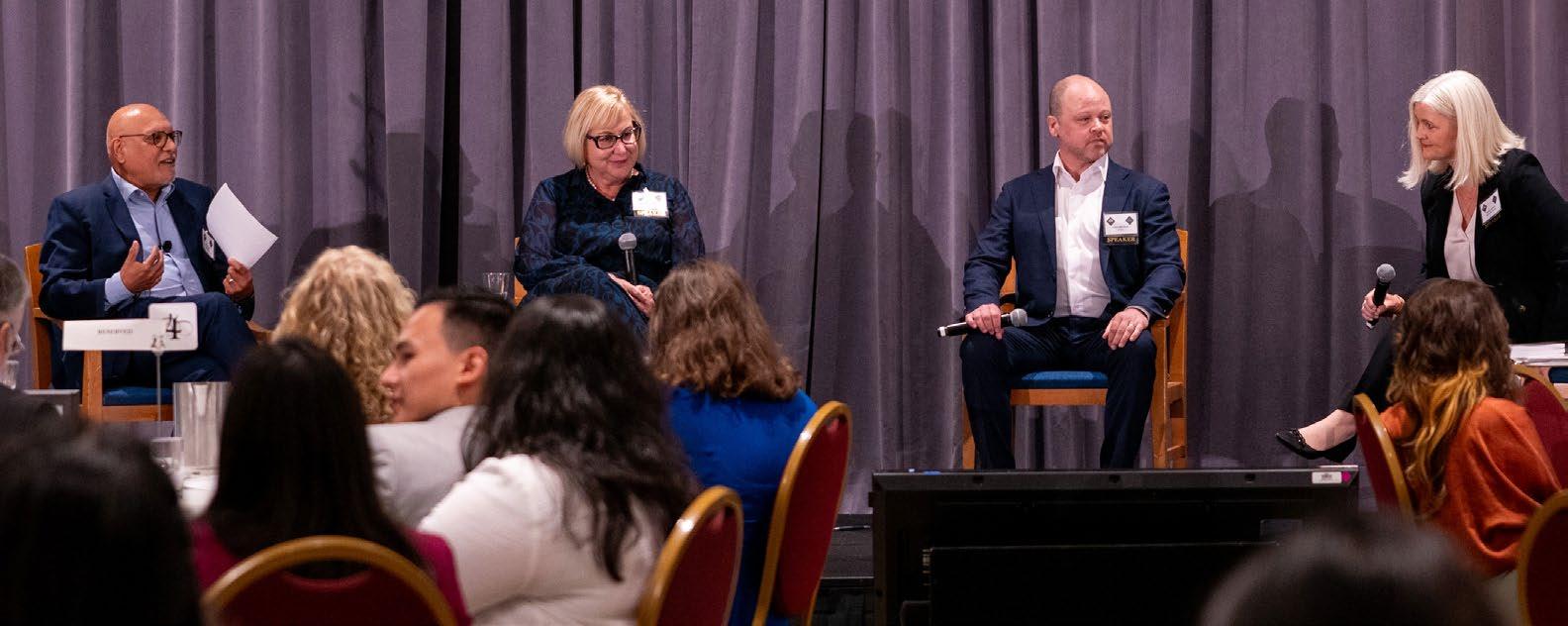
as the ‘buggiest city’ for the seventhconsecutive year by Orkin Canada.
“Seven straight years as the bed buggiest city is something we want to turn around,” said Kufske, whose company has introduced a new bed-bug trap that draws the bugs in and then has an indicator light to let housekeeping staff know the trap has done its job. “A housekeeper can now walk in to a hotel room and instead of inspecting it for bedbugs, they simply look at the device and if it has a red light, you have bedbugs; no light, carry on to the next room. So, we’re saving hotels a lot of time and time is of the essence.”
The topic of recruitment and retention strategies was next on the agenda, with Dr. Altaf Sovani, founder & CEO, Alzen Inc. leading a panel that included Anna Chartres, Regional Director, Talent & Culture, Central Canada, Fairmont Royal York; Bonnie Strome, GM, Park Hyatt Toronto; and Adam Morrison, president & CEO, OTEC.
The conversation focused on the importance of understanding and catering to the needs and preferences of different generations in the workforce,
particularly millennials and Gen Z. Leadership was emphasized as crucial for retaining talent through a shared purpose of caring for people to do their best. Speakers also discussed challenges of employee retention, particularly for international students, and the need for a balance between work and life. Additionally, they highlighted the importance of showcasing diversity and inclusivity in employer branding, leveraging technology in recruitment, and addressing workforce challenges faced by immigrant groups.
“Our industry strives for quality of service, and that’s what we provide to our customers,” said Sovani to kick off the discussion. “The customers have changed since COVID and expectations are higher so we have to look at are



we spending enough training dollars on our workforce to offer that level of service?”
Fostering mental health in your hotel’s housekeeping department is crucial for the well-being of staff. But conversations around mental health can be difficult to initiate and many employees are unaware of what supports are available to them. In a panel discussion led by KML’s managing editor Amy Bostock, panellists examined employee-wellness strategies from the perspectives of hotel HR departments, third-party support providers and the housekeeping department itself and provided advice and how to access support, both in and outside the hotel.
Bostock was joined on stage by Holly Esnard, director Of Housekeeping, St. Regis Toronto; Debbie Garshon, senior director, Clinical, Greenshield Health; Georgia Sanderson, director Of Human Resources, Hyatt Regency Toronto; and Hassel Aviles, founding director, Not 9to5. The discussion touched on the crucial need for mental-health support in the hospitality industry, particularly in the housekeeping department and the panellists addressed the importance of easily accessible resources, culturally sensitive and trauma-informed support, and creating a safe space for employees to discuss their mental health. They also emphasized the need for accommodations in the workplace to support mental wellbeing and the importance of confidentiality in mentalhealth resources.
Sanderson said one of the biggest issues she’s seeing in the hotel space when it comes to workplace mental health is burnout and the long hours. “The other big issue most employees are dealing with now is heightened customer problems. And the way that customers deal with those problems is very different post COVID. People are demanding more and there's more avenues for them to get the social-media pictures out [when they’re unhappy] and that causes stress for housekeepers.”◆

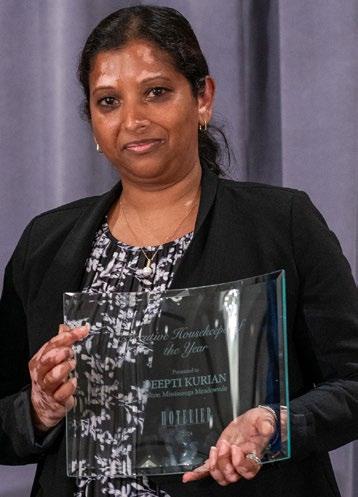
Media

Not

As the new CEO of Raffles and Fairmont Hotels & Resorts, Omer Acar leads the brands into a new era of growth
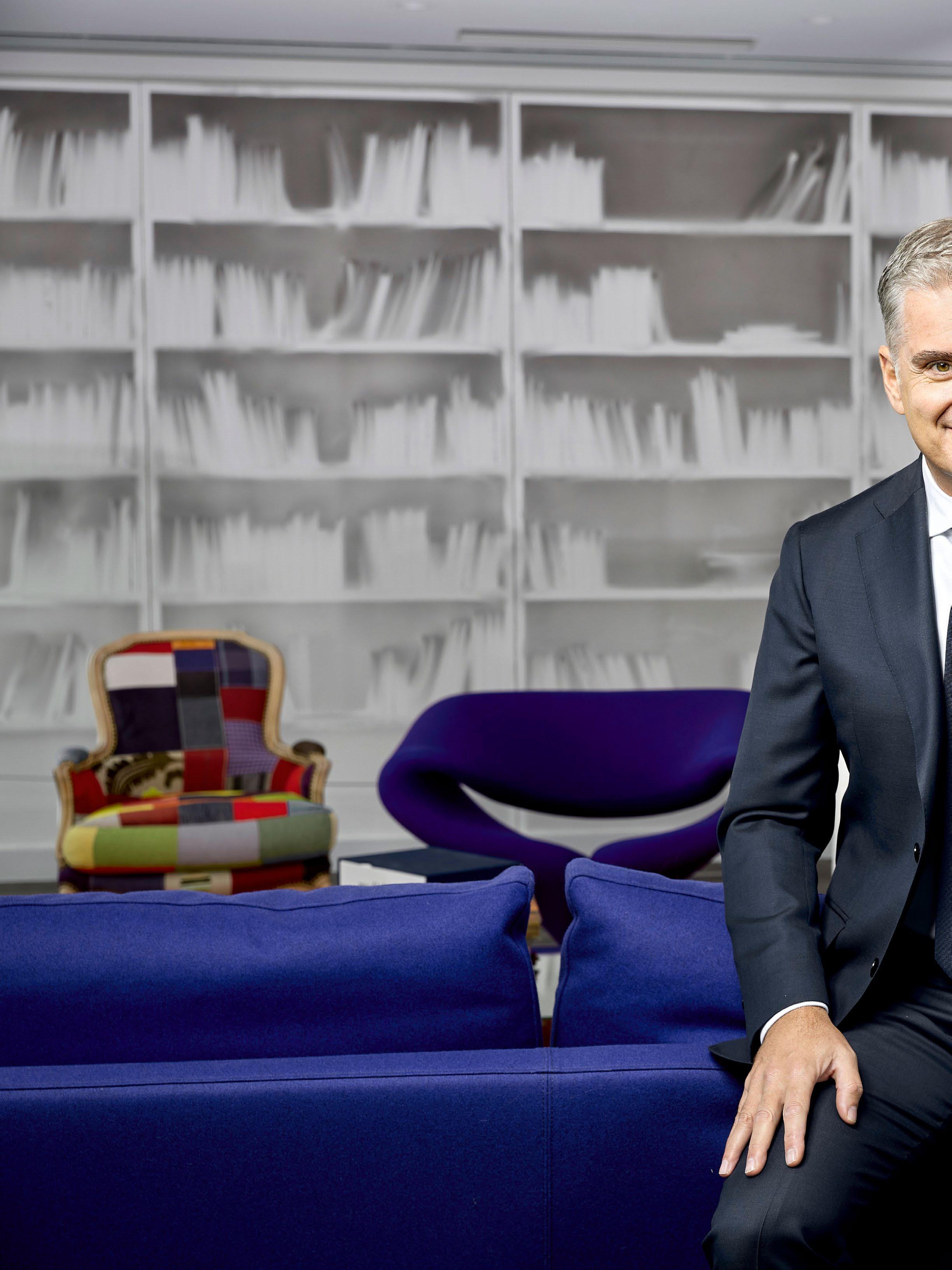
Recently, Hotelier had the opportunity to interview Omer Acar, the new CEO of Raffles and Fairmont Hotels & Resorts at Accor’s new corporate headquarters in New York, where he spoke of the company’s new brand vision and its focus on growing the Accor brands in North America.
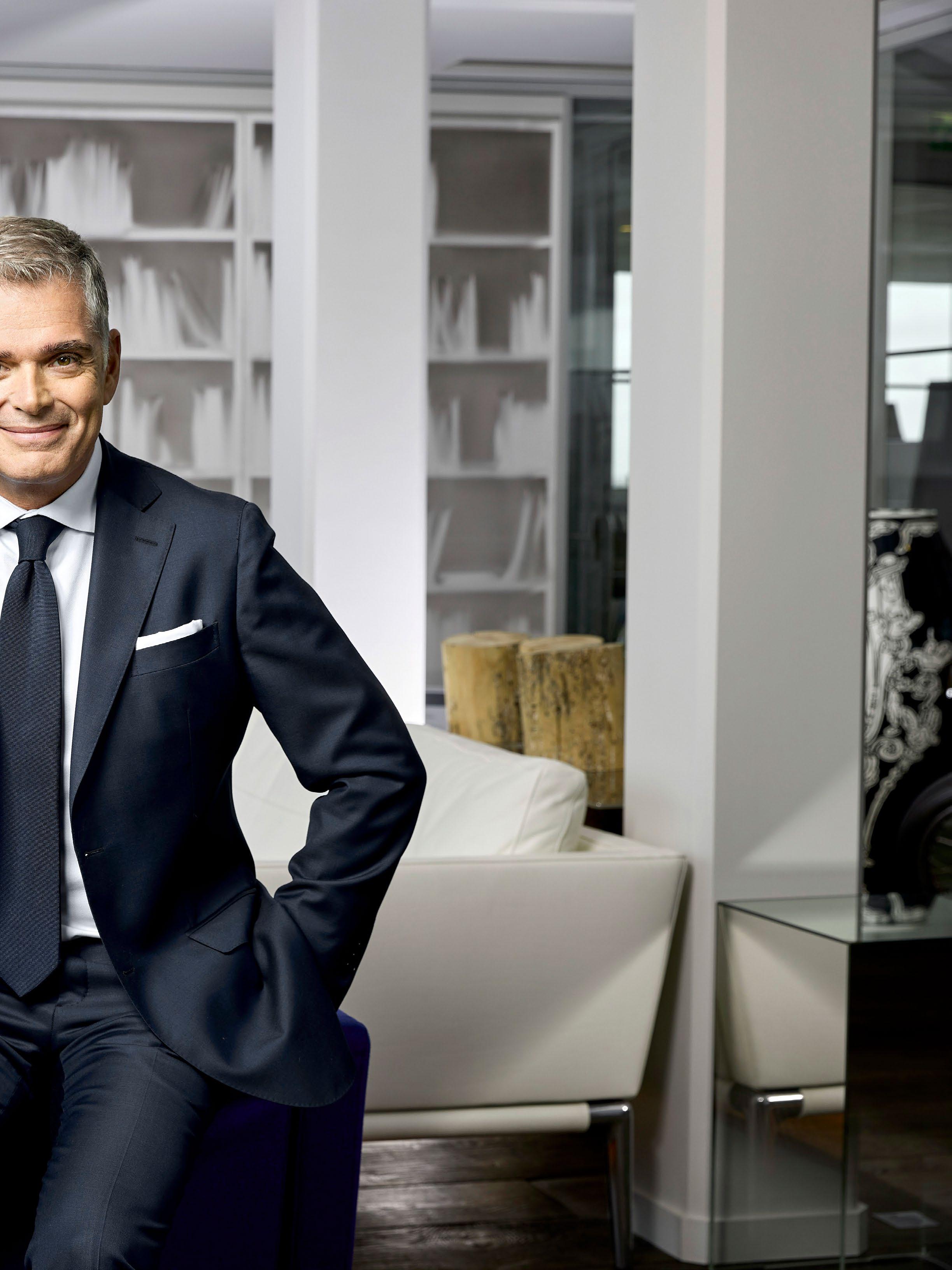
Hotelier: In recent months, Accor has made changes with the Fairmont and Raffles brands both in Canada and internationally. In Canada, for example, last year, Heather McCrory, former CEO retired, and more recently, COO Sara Glenn also left. The company also added offices in Dubai. Earlier this year, you replaced Mark Willis, who was previously CEO, and Accor now has a new corporate office in New York as well as in Dubai. How have all those changes affected the company?
Omer Acar: First, we need to define what change means. When you say change, people are not afraid of change; people are afraid of instability. Changes are a part of our DNA and lifestyle. It may become a negative when it creates uncertainty. In that aspect, Fairmont as a brand existed so many years. One thing we can rely on is the stability of the brand and what it stands for. Whether we have an office here or there, and I can give you many examples of brands where executives move from city to city, I would consider the change not on the brand, but on the location of the leadership. We understand there is a strong DNA of what Fairmont stands for and that DNA has been created in Canada. And itʼs important for Fairmont to keep that DNA. That's why we are keeping our Toronto office with all the team members. Actually, we just hired one more person recently so the recruitment continues.
Hotelier: How different or similar are the Fairmont and Raffles brands?
OA: Raffles and Fairmont have been cousins for many years. Being together complements not competes the offering of Raffles and Fairmont. Obviously, Fairmont is a larger scale hotel, we are the connector because our new vision is all about how we make you feel special. Itʼs going to be part of our brand campaign.
That is easy to say to any of our employees and colleagues or team members. “What did you do today to make someone feel special?” Special itself doesn't sound [significant] alone but itʼs a very special word when you define what we actually do in hospitality to make you feel special. And if we can achieve that, it's fantastic. It feels good when you receive it. It also feels good when you remember it after years and then when the memories come, the emotion that you felt comes back.
Hotelier: It's long lasting.
OA: Exactly. It’s similar in retail; it’s about which retailer sells the dream or as I like to say executes the dream. When retailers sell the dream, you buy something. After you wear it 10, 20, 50 100 times, it still has a value but you go for a new one, but the emotion and the feeling when you remember, it still gives you the same impact.
In that aspect, whether we are in Paris or New York ─— yes it’s important to be in North America because, we are closer to our properties, and our owners and developers — but there are also more opportunities for us in North and Central America to grow both brands. And so as much
as it is about Raffles and Fairmont, it’s about the Accor footprint in North and Central America. That's why we have this office on Fifth Avenue — to be able to show boots on the ground; we are here. And we are delivering value to our developers.
Hotelier: Previously, Accor did not have a strong footprint in North America with most of its brands. This is really strategic for you in that respect?
OA: Yes, but it's not limited to Raffles and Fairmont, but all our brands. This is possible, of course, in New York City. And we have many team members here from Accor. We have team members from global sales, marketing, global development. Our colleagues are not only focusing on two brands, there's a wider scope.
Hotelier: When I look at your plans for the future, it seems that more of the focus is on international growth for Fairmont, as opposed to North American. Is that the case?
OA: I think it's balanced. I mean, define North America. Do we want to be in Miami? There are so many cities in the U.S. And when we say North America, I include Canada, but U.S. also, are we in every city that we should be operating in. Because of interest rates, the costs to raise new projects are costlier. What is good about Fairmont is that the residential component helps that development be more lucrative for a developer; it makes very good sense for us
because Accor is the Number2 residential operator in the world with that scale. And this is something that will give developers more opportunities.
We are looking at more ski resorts in the U.S. and we are looking at different key cities. It is important, but I wouldn't [define] it less or more; it’s as important as growing our footprint in Central America and South America, in North America but in the rest of the world also.
Hotelier: I assume most of the expansion will happen in the U.S rather than in Canada, because in Canada we are more limited due to the size of the country and population.
OA: Yes. And, of course, in Canada, you have a very large footprint by population. Second, we are so far well represented in all the key cities, and sometimes with multiple properties, as we know on the west coast. So, in that aspect, I would not limit ourselves; we will always look at opportunities where we believe we can bring value to that development. It's not about just opening a hotel. Yes, opening a hotel, but is there a value for that owner, with the right location, and right partnership. As much as it may be different for some developers, [itʼs important] for us to carry that Fairmont spirit. We have a very strong human touch, which is very important to me. Whether it's an empathy, whether it is a respect …whether it’s to make you feel special.
And empathy is a great one, because empathy is putting yourself into other shoes. And you probably want to
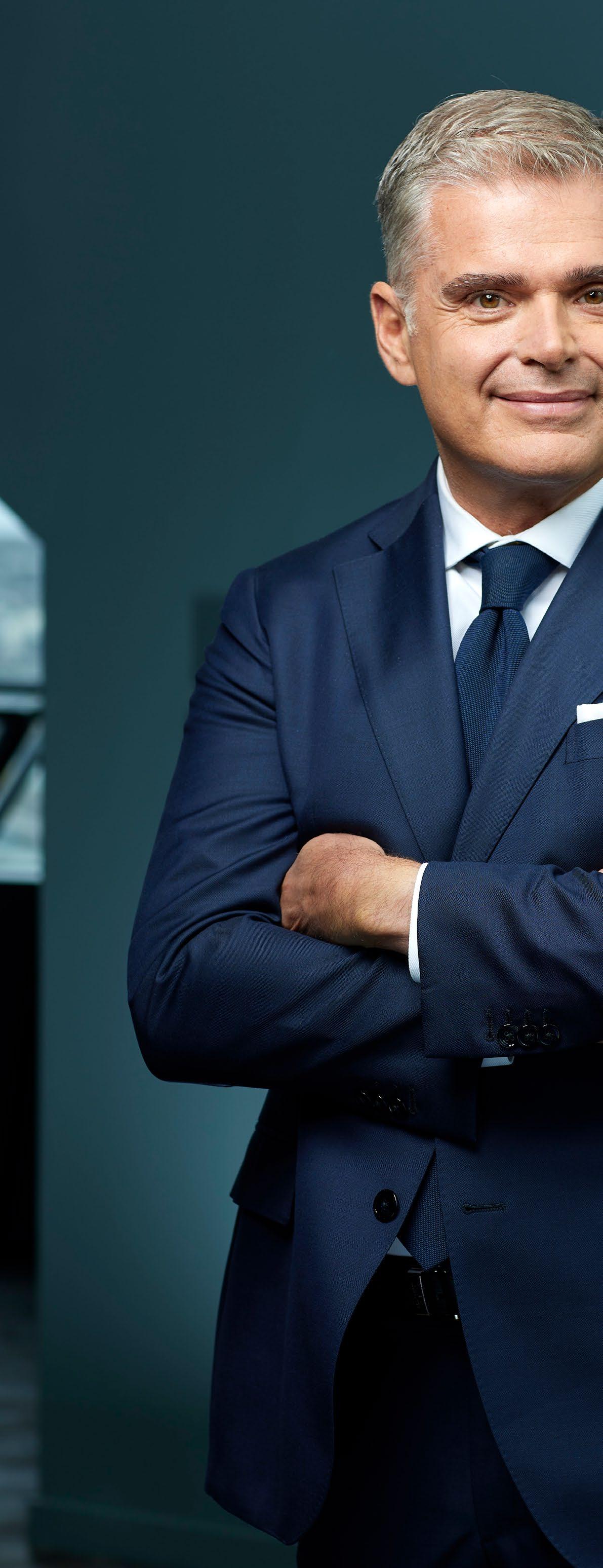
Our job is to service our GMs and employees. Our job is to service our owners and our job is to service the guests

consider before acting or saying something, how would the other person will feel. And that's an important part of it. Yes, we believe in our heritage. We believe in our past. But we also have to deliver the present and the future. Because the question that I say, every morning when I wake up, is what do we do today?
Fairmont is a big flag. People are looking at us with that trust. How do we carry that flag for the next generation? What are we doing today that creates that beautiful story of Fairmont for the next 15 to 20 years so the next generation will continue being proud of the heritage, but also living in the present and the future?
Hotelier: How do you plan to do that?
OA: First of all, we have to make sure that we preserve the culture. Everything starts with our “Heartist” — at Accor, itʼs about our employees who work from the heart. And, that is the key because I can sit here and we can talk about strategy, we can talk about forecasts, we can talk about next year and the year after, but who's going to deliver that? The team members are going to create that momentum. We need to make sure that we continue feeling proud to work for the Fairmont brand. There's a lot of focus on the heart of the house. When I visit the properties, I visit the back of the house before the front of the house. I tend to visit first the change room and the [staff] cafeteria.
But as an industry, we probably had to ask ourselves a bigger question post COVID. What is the
priority? What is important? And I think we should face that, and we should be honest to ourselves. Some of us did better, some of us not. But we want to continue to be our best — an employer that creates that pride factor being a part of that Fairmont family.
Hotelier: People have always been an important part of the equation for Fairmont. With COVID and post COVID and labour shortages, itʼs got to be a lot harder these days to find those people?
OA: Yes, and to inspire a new generation and to grow hospitality. I'm a passionate hotelier. My background comes from operations. And I love being in the hotel but not everybody's priorities are the same. And therefore we need to respect that. And we need to address that if we want to continue being a sustainable business and relevant. I call it the power of three, which is, not 1,2,3. It’s a triangle. Our job is to service our GMs and employees. Our job is to service our owners and our job is to service the guests. That’s the most important factor. There are three of them. They can exist, maybe without me, but the culture that it creates, and this tree holds it together because if one falls, [it impacts on everything]. If you don't have an employee you don't have a guest. If you don't have a guest, you don't have employees. It creates employment. If you don't have an owner or developer, you don't have a hotel. They're all crucially important. But once you
build a hotel, again, it's our corporate office that preserves that culture. It goes from generation to generation and that is very strong at Accor. We create a Talent and Culture purpose at Accor. We break it down, and the brands are all actually saying the same thing. But that purpose, the heartfelt care that we show to one another, it's a very emotional soft work. It’s not only about talking about percentages or ratios, we’re talking about creating a culture, and Accor leading that way, not only on Talent and Culture, but also on the Social because when we talk about ESG, we talk about the environment. But we have a full responsibility on Social because one goes with the other, you cannot eliminate that. And giving back to the local communities, engaging with the local communities, respecting your heritage, respecting where you come from — these are all part of our Social. As much as we manage those great hotels those hotels are owned by society. And whether you host a wedding, a Bar Mitzvah, a birthday, they all own part of it. We just have to make sure we are the guardians of that on behalf of our owners, and make sure they are presented in a timeless manner and that they don't get old, but they are always relevant.
Hotelier: Would you say the way Fairmont operates today has changed through the ownership of Accor?
OA: No. Accor’s vision is on what is important in the hospitality business. And we are not only looking at hotels,
we own restaurants, theatres, the Orient Express, a yacht business. We are going to different layers of hospitality. But I'm very proud to say that with every meeting that we have with our head office, it keeps emphasizing that culture. It's really of prime importance. You cannot ignore it because it’s in our daily jargon. I end up speaking to our Talent and Culture more times a day than I talk to other departments.
Hotelier: Going back to international growth, and your focus on the U.S. with more Fairmonts, how many locations would you'd like to see?
OA: It’s not a number. What I like to see is every hotel operates very consistently. And, they are well kept, to make sure that we don't have a wide variety of product out there. Itʼs important that when you walk into a Fairmont Hotel, there are certain expectations. Itʼs our job as a brand to make sure those expectations are met. And that can be through design, that could be efficiencies, that could be technical functionality of the hotel, etc. Our job is to make sure we deliver value to our owners so they can continue to invest. And we continue with that partnership to make sure our hotels are performing.
Hotelier: Are development decisions being made in New York now for all of North America or in Dubai?
OA: We have developers everywhere in the world.
The way it works is our developers are not only serving Raffles or Fairmont, they are serving other brands. And, that is the right thing because you don't want to have Developer A pitching for Fairmont, Developer B pitching for Raffles; you want to look at that location and [determine] what is the best for the developer for that location and come up with a solution. At the end of the day, when it comes to Raffles and Fairmont, or the opportunities that come to me, we look at it, we analyze it, and we make decisions accordingly.
Hotelier: But Raffles doesn't exist in North America?
OA: We have one in Boston.
Hotelier: Will there be more Raffles coming on stream?
OA: We are talking about a few opportunities in Central America. Mexico is very important for us for both Fairmont and Raffles; we can handle more Fairmonts. As you know, most of the traffic outbound from North America is to Mexico. We have a good presence with Fairmont. So, how can we deliver value to our developers in Mexico and South America. We are looking at ski resorts in North America. We are looking at beachfront in Miami; we are in advanced discussions with some owners to have new projects.
Hotelier: When you you look at Fairmont and Raffles, what distinguishes those two brands from each other?
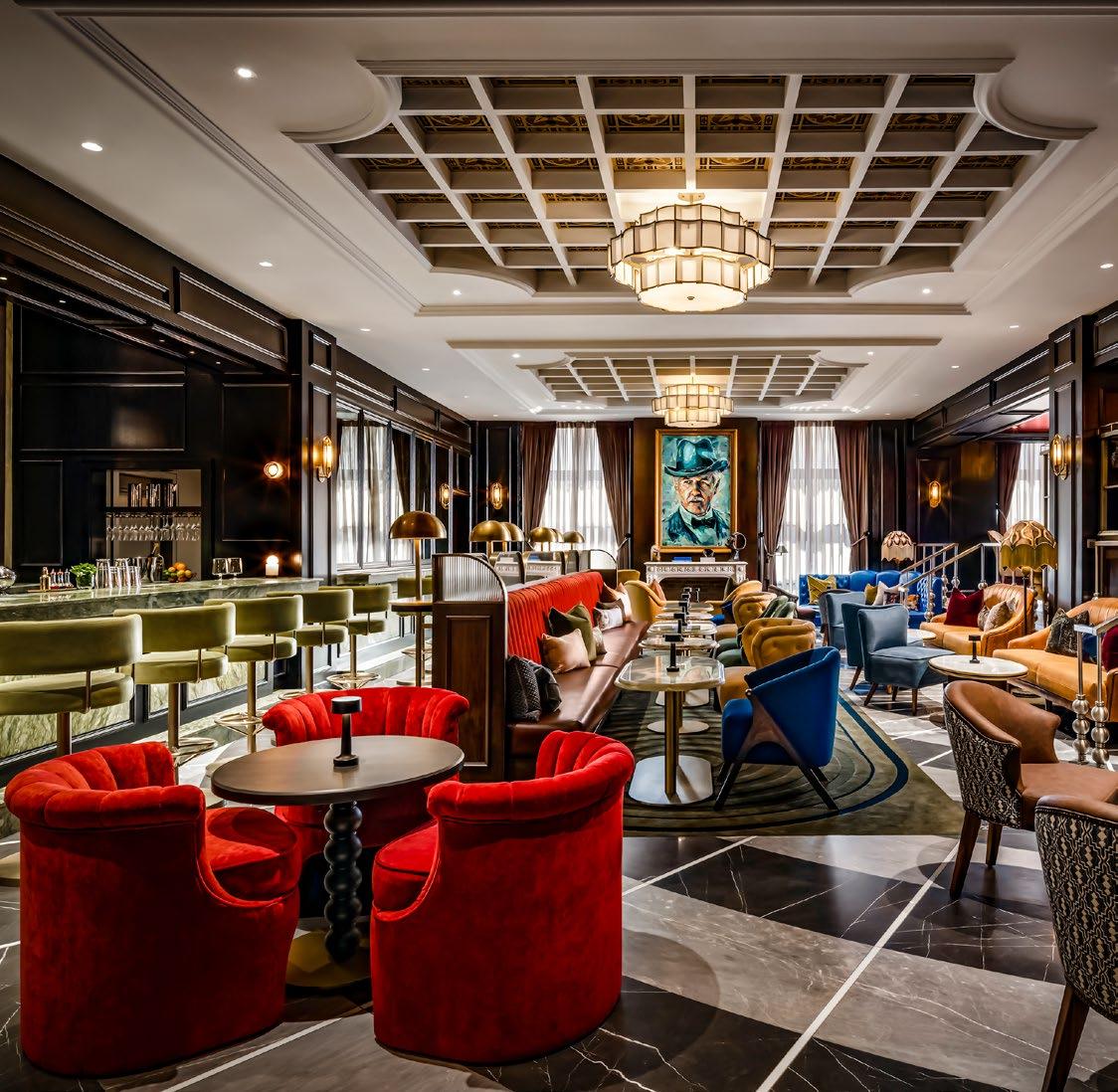
OA: Scale. We call Fairmont a connector as a brand. So you come to Fairmont not to be isolated, you want to be there. Fairmont is the place where a city’s heart and soul go on tour. Look at Toronto, you enter that bar anytime of the day, the City of Toronto is there. Raffles is a little bit more of an escape. Fairmont is a very inclusive brand. A lot of our meetings and gatherings happen in Fairmont Hotels, whether it’s a peace conference, hopefully more of them, or celebrations. But on the weekend, Fairmont has a very strong DNA of young ones. Monday through Friday, it's a place where adults gather in meetings; on the weekends, family members join in. It's a continuation of that story. We balance the weekday business with the weekend. It fits in our heritage that we love family; we love multigenerational travel.
Hotelier: Would you say that the notion of a luxury brand has
changed in the last five years due to the pandemic.
OA: Right after COVID there was an impact of this. But I think in our lifecycle, we will see those mini cycles, you know, we have seen those in times of crisis.
And that will continue. But is there a game changer in the ultra-luxury consumer; they're obviously looking for more suites, more villa products. We see that demand. But at the end of the day, especially for Fairmont, we have large inventories in the hotels; we cannot only rely on the Suite business, we still have that inventory, we need to make sure that we make the best use of it. So as much as yes, post COVID there was that feeling that [leisure was] growing, now it's more balanced it; corporate is coming back.
Hotelier: So business travel is growing?
OA: Yes, event buisness is growing.
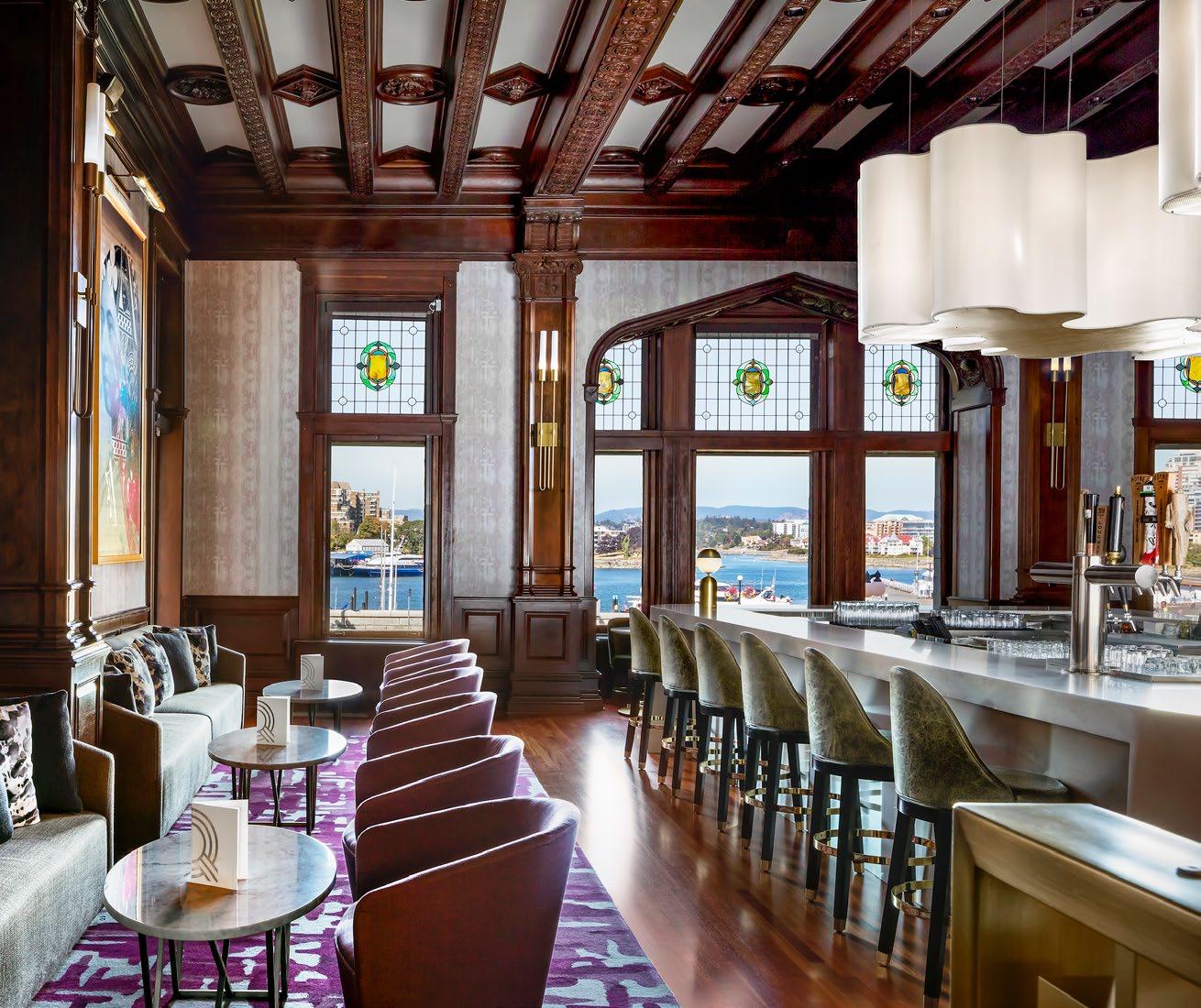
Hotelier: Do you see more virtual meetings taking place and isn't that impacting corporate sales?
OA: Whoever I talk to, I ask that question. Just as you and I could be doing this [interview] virtually, right? Is it the same? No, and people understand that. And I think, if you're in the business of inspiring people, and the only way we can do this is by being face to face, because humans need that touch; that screen takes a lot away. That's why convention business is coming back, I mean, the events that I attend, some of them are already back to 2019 numbers. And as much as there’s pent-up demand on the leisure travel; it's also happening now in corporate travel. It’s so nice to see, especially in our business and if you're an incentive group, people want to inspire one another and get that energy from human to human and that's why Fairmont wants to
be cutting edge on the event space. We are looking at new ways of inspiring our guests through technology in the events space to make sure we have cutting-edge solutions. If Fairmont is a gathering place and we are a connector and we want to make guests feel special, the only way we can do that is to be ahead of the game.
Hotelier: Can we talk about rates a little bit? Obviously, since the pandemic, room rates have gone up and customers haven’t really resisted much. Are you starting to see a change now?
OA: We didn’t have enough staffing at the beginning of post pandemic so we were selling a lot of suites and rooms. Rates were high but the volumes were not high. So as the volume is coming back with corporate, the blended rates are going to come down. Leisure rates are not going back to
pre-pandemic. The game changer is how you make yourself different from the competitors, by how do I inspire you? You know, we used to have a saying at Fairmont about turning moments into memories. Now we changed that to turning moments into special memories. Because special is what makes you come back. When I connect that special feeling, then you will come back and you will say I want to spend more time here.
Hotelier: Is that part of the brand vision for the company?
OA: Yes, I also feel that we are ambassadors of Canada. When I joined in January, I wanted to learn and understand and continue to make Fairmont timeless – not fashionable because fashion changes but style remains. I want Fairmont to be stylish. I involved our general managers in this [vision]. They came here and we built it together. I brought Edwin [Frizzell] from Toronto, Jens [Moesker] from Vancouver because he has a very interesting portfolio. The idea was to see their perspectives and they were very crucial players in this journey. After three months of listening to everybody, and being in Dubai three times and being in Toronto three times, spending time talking to individuals, this is what I believe and the team believes…We value connections…. We have a culture to
preserve. And that's the biggest asset we have. What makes the brand is not the property, it’s the soul — the people.
Hotelier: What do you see as the greatest change moving forward?
OA: My personal perception on this is [we need to be] more value driven and personalized. The bar keeps getting raised. We need to give our guest and our employees meaningful moments they can take away. One solution fits all [is gone]. You need to recognize and understand inclusivity and diversity. And that's going to take it to the next level.
For example, it’s not just having a Kid's Club. It's what activities do you do in that kids’ club. It’s also how they educate the little ones so the parents are proud when they take that time off. The kids, the little ones are well looked after but they're also being inspired and educated instead of putting them in front of a movie screen. We are eliminating those. We are seeing more art classes, more social responsibility, more environmental responsibility. If you're a beach resort, can we go and rescue some of the reef. And, if you are in nature, what can we do to better understand it? It’s about taking it to the next level. You know, as a father, I sometimes feel guilty if the kids are on electronics. We want to make sure they have something they can take home as a memory — not just watching a movie in our amazing destinations, but combining that local culture and local fabric into their experience. ♦


BY NICOLE DI TOMASSO
ccording to Avison Young’s Canada Hotel Market Report, Canada’s hotel industry demonstrated a strong recovery in 2023, surpassing pre-pandemic levels in key performance indicators (KPIs) such as Average Daily Rate (ADR), Revenue Per Available Room (RevPAR) and occupancy.
“Across all major markets in Canada, there was a notable high single-digit or low double-digit year-over-year growth in occupancy, accompanied by gradual increases in ADR and significant growth in RevPAR,” reads the report. “Hotels demonstrated agility in adjusting ADR daily, positioning them to respond effectively to spikes in demand and inflationary pressures. Consequently, the industry recorded positive financial outcomes driven by continued ADR increases, fuelled by a surge in leisure and small local group demand across several major Canadian markets. Upscale, upper upscale and luxury hotel segments experienced a notable resurgence in occupancy, each recording doubledigit year-over-year growth. Overall, the positive year-over-year growth across all performance metrics signals a promising trajectory for the Canadian hospitality industry.”
In fact, Canada’s hotel ADR and RevPAR were the highest for any year on record, according to CoStar’s 2023 data. In comparison to 2022, occupancy was 65.7 per cent (up 7.7 per cent); ADR was CAD$200.08 (up 9.7 per cent); and RevPAR was CAD$131.48 (up 18.3 per cent).
“Canada hotel room-rate growth outpaced inflation in 2023, further cementing the hotel sector’s reputation as a strong hedge against the metric,” says Laura Baxter, CoStar Group’s director of Hospitality Analytics for Canada. “The balance between supply and demand was favourable for Canada’s existing hotels, supporting the strong performance in 2023. Delivery of new hotels was down 53 per cent compared to the previous peak in 2018, given limited ground breakings during the
pandemic and high development and financing costs. This kept supply-side pressure to a minimum. On the demand side of the equation, some hotels benefitted from demand spillover from the residential sector. Due to the lack of affordable housing and rentals, some hotels were used as housing. This dynamic between supply and demand is expected to continue in 2024, but softer RevPAR growth is certain, forecasted to grow 2.2. per cent.”
Baxter continues, “Strong key metrics and a positive outlook have resulted in more investment capital earmarked for hotels as opposed to other property types that haven’t performed as well. And since the development pipeline is still constrained due to high development and financing costs, and replacement costs are high, investors are focused on acquisitions as the most straightforward entry point.”
Collectively, Hotelier’s Top 30 companies posted estimated gross sales of $16.4 billion for 2023, with our top three companies (Marriott Hotels of Canada, Four Seasons Hotels and Resorts and Accor Hotels North & Central America) accounting for an estimated $8.8 billion of that total.
Marriott Hotels of Canada topped the Top 30 Report this year with gross sales of $4 billion, up from $3.03 billion in 2022.
“We reported fantastic results in 2023 as demand for travel and our industry-leading portfolio grew. Full year global Revenue Per Available Room (RevPAR) rose nearly 15 per cent and net rooms grew 4.7 per cent, the company’s highest net-rooms growth since 2019,” says Anthony Capuano, president & CEO, Marriott International. “Demand for all types of travel remained strong, even as the rebound impact from the pandemic waned throughout the year. Group demand was again strong, and full year global group revenues rose 19 per cent compared to 2022. In the business transient segment, demand from small- and medium-sized corporates remained robust, and while large corporates were still lagging pre-pandemic levels, they continued to post year-overyear volume increases. Solid gains in both Average
Daily Rate (ADR) and room nights drove global business transient revenues 18 per cent higher compared to 2022.”
Four Seasons Hotels and Resorts reported estimated gross sales for 2023 of $3.3 billion, up from $3.09 billion in 2022, earning itself second place in our Top 30 rankings.
Building from the strength of its leading industry position, Four Seasons looks ahead at 2024 with a focus on enhanced portfolio and pipeline development, residential leadership and immersive luxury experiences.
Four Seasons is expanding its global footprint while investing in its current portfolio of 128 hotels and resorts in 47 countries. With a robust and focused development pipeline of more than 50 hotels and resorts at various stages of planning development, the company is strategically expanding into key destinations that’ll further strengthen its position.
“Grounded in Four Seasons history of industry leadership, our vision is to be the most aspirational luxury hospitality and residential brand through genuine and unparalleled service experiences,” says Alejandro Reynal, president & CEO, Four Seasons. “The key to our success has and always will be our people and culture. This will continue to guide our path forward as we further solidify Four Seasons legacy of authentic and unscripted care for which we are renowned.”
Driven by resolutely solid demand in 2023, AccorHotels was able to set new records in terms of operating and financial performances. All regions and segments enjoyed strong growth after a year in 2022 marked by the post-COVID pandemic recovery. All performance indicators were in line with, exceeded group guidance in 2023.
The global brand reported estimated gross sales of $1.5 billion across its 29 Canadian properties in this year’s Top 30 Report, up from $1.4 billion in 2022, claiming the third spot in this year’s report.
“The group achieved growth in all segments and geographies, illustrating the strength of its asset light model, the
efficiency of its organizations based on the two divisions, Premium, Midscale and Economy on the one hand, and Luxury and Lifestyle on the other, the desirability of its brands, the strength of its distribution and loyalty tools, as well as its financial discipline,” says Sébastien Bazin, Chairman & CEO, Accor.
quality,” says Gaurav Gupta, president, Artifact Group. “While our name [has changed], our dedication to providing exceptional service for our guests, while prioritizing the well-being and growth of our employees as we continue to identify, acquire and re-new properties remains steadfast. We look forward to continuing to create thoughtful and inspired spaces that stand the test of time under our new name.”
Overall, the positive year-over-year growth across all performance metrics signals a promising trajectory for the Canadian hospitality industry
In 2023, Accor opened 291 hotels, corresponding to 41,000 rooms (net network growth of 2.4 per cent in the last 12 months), according to the group’s full-year 2023 results. At the end of December 2023, the group had a hotel portfolio of 821,518 rooms (5,584 hotels) and a pipeline of 225,000 rooms (1,315 hotels).
“While the geopolitical backdrop remains complex, 2024 is rich in major international events which should continue to fuel growth,” says Bazin.
Smaller hotel companies showed significant growth over 2022, such as Toronto-based K2 Group, which grew its sales from $87 million in 2022 to $123 million at year-end 2023, and Montrealbased Artifact Group (formerly Sageblan Investments), which grew its sales from $72.2 million in 2022 to $138.2 million at year-end 2023.
“We consider our properties to be valuable treasures, and ‘Artifact’ better describes our commitment to detail and
While Canada’s hotel industry will continue to face cost pressures, there’s continued growth on the horizon.
“Looking ahead, while the longer-term future appears promising, challenges may arise with travellers (individuals and corporations) seeking to reduce costs amid uncertainty in the economy,” reports Avison Young. “While growth is anticipated in 2024, it may not be as robust as in the previous year, with the market likely to move towards more normalized conditions.”
ADR became the main driver of growth for 2023, while occupancy growth slowed. In 2024 and 2025, Baxter says ADR is likely to remain as the main driver of growth. Fortunately, after four-consecutive months of year-over-year declines, Canada’s hotel industry reported a 2.7-per-cent increase in occupancy (64 per cent), according to CoStar’s April 2024 data.
Additionally, leisure tourism is likely to continue being the primary driver of global hotel performance, but business travel spend is projected to fully recover in 2024, according to the Global Business Travel Association (GBTA).
In the year ahead, “travellers will prioritize experiences that align with their personal values,” reads JLL’s Global Hotel Investment Outlook 2024. “Hotels that effectively articulate their commitment to sustainability, wellness and authenticity will gain a competitive edge, enabling them to expand market share and enhance asset values while accessing new sources of capital.”♦















































































We're seeeing the beginning of an industry rebound but hotel companies across Canada still faced myriad challenges to survival and a large number of our Top 50 companies once again chose not to release














again produce a truncated version – the Top 30 Report — listing only those companies that chose to release their 2023 information, as well as a handful of companies that we estimated for given their

This year’s Top-30-Under-30 winners have set a new standard for excellence in the hospitality industry
Chef & Sales specialist, C.W. Shasky & Associates Ltd. and Baking & Culinary professor, Centennial College, Mississauga, Ont.
Despite being within the first decade of her career, Rebecca van Bommel has already accomplished incredible things. While attending the Culinary Institute of Canada in Charlottetown, P.E.I., van Bommel volunteered for every event, competition and opportunity possible to gain more experience and further her education. She also worked part-time as a weekend cook at a senior-care home.
During school, van Bommel became involved with the Canadian Culinary Federation and represented P.E.I. as the provincial competitor at the Culinary Federation National Conference in Windsor, Ont. in 2016. She has been attending the annual conference ever since. That same year, she represented P.E.I. at the Skills National Competition in Moncton, N.B.
From there, van Bommel became involved with WorldChefs, attending congresses as a guest speaker in Malaysia (2018) and Abu Dhabi (2022).
Mentoring the next generation of chefs and bakers is something close to her heart. Today, in addition to her role at C.W.
Shasky & Associates Ltd., van Bommel teaches first and second-semester students in baking and culinary courses and labs at Centennial College.
Over the years, van Bommel has worked in a number of establishments, including hotels, retirement homes, independent restaurants, events and a Michelin-Star restaurant. She has competed in more than a dozen competitions on a local, provincial and international level and has recently turned her attention to earning global judging certification.
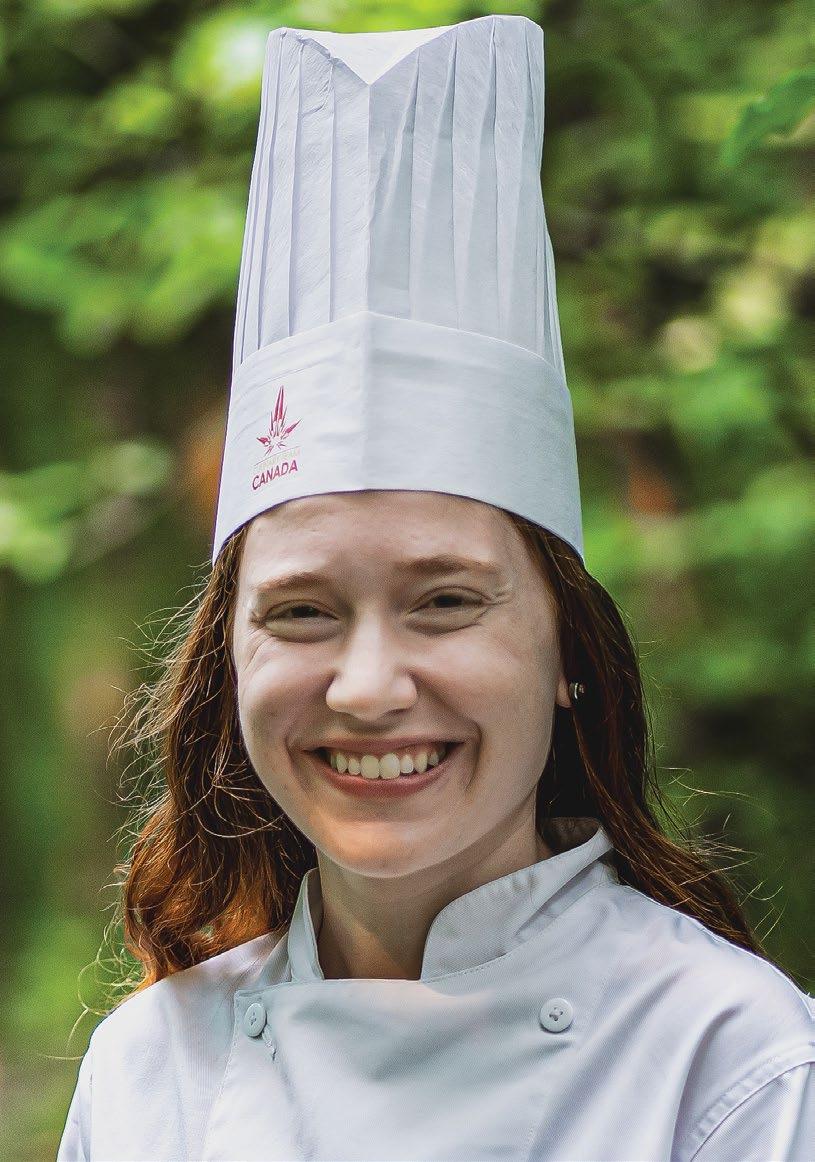

General manager, Best Western Premier Freeport Calgary Airport
As a highly motivated hospitality professional with eight years of hands-on experience working in hotels and resorts, Bhavarth Dholakia carries a real desire for personal and professional growth.
A graduate of the Institute of Hotel Management (IHM) Ahmedabad (B.Sc. - Hospitality and Hotel Administration, Hospitality Administration/Management) and Fanshaw College’s post-grad Hospitality and Tourism Management, Hospitality Administration/ Management program, Dholakia has held a wide variety of hotel jobs in the Rooms division, as well as general manager roles at Holiday Inn Express & Suites in Drayton Valley, Alta., Staybridge Suites Hotel and now Best Western Premier Freeport Calgary Airport.
“In an industry where true inspiration and leadership are often scarce commodities, Bhavarth stands out as a beacon of excellence,” says Jeet Arora, head of Operations, Erth Abu Dhabi. “Drawing from my decades of experience in the hotel industry, I can confidently say that Bhavarth is a rare gem. His passion for hospitality is palpable, his professionalism exemplary, and his leadership style nothing short of inspirational.”
General manager, Oretta Hospitality Inc., Toronto

Saarah Tennakoon found the hospitality industry — or rather, it found her — completely by accident when a friend hired her to work at Flock Rotisserie & Greens by Chef Cory Vitiello in the Harbord Village in Toronto.
She quickly rose to a supervisor position, and when the opportunity presented itself, was promoted to assistant general manager.
Now she was hooked, taking on progressively more senior roles with Moxie’s and O&B before joining Oretta Hospitality Inc. in 2021 as general manager of its King West location.
“Since the day she was hired, she has consistently showed professionalism, dedication to her job and an unwavering commitment to excellence,” says Jan Stoeckmann, director of Operations, Oretta Hospitality Inc. “After approximately two-and-a-half years with the company, Saarah is one of the most important pillars in our operations.”
“Saarah’s leadership style serves as an inspiration to young professionals, showcasing a rare combination of unwavering work ethic, innovative thinking and a profound commitment to driving positive change in our restaurant operations,” says Kimberly Crabtree, director of Events at Oretta. “Through her leadership, Saarah has cultivated a dedicated management and service team, fostering a culture of inspiration and excellence that resonates throughout the organization.”
Assistant general manager, Osteria Giulia, Toronto

A WSET level 3 certification and a Food and Beverage Management diploma from George Brown College have paved the way for Ludovica Quaranta’s professional success. Her first position as restaurant manager at Via Mercanti North in Vaughan, Ont. was the beginning of a journey that would see her make her mark on roles at Toronto restaurants such as Sofia in Yorkville, Oretta Midtown, Giulietta and, most recently, Osteria Giulia.
In her role, she leads, supervises and coaches all front-of-house staff, and is responsible for organizing and maximizing all OpenTable and DINR reservations and updating guest profiles.
According to David Minicucci, proprietor, Giulietta and Osteria Giulia, Quaranta is a guest favourite and played an integral role in the restaurant achieving its inaugural Michelin One Star.
“Ludovica brought a fun, yet earnest, approach to the day-to-day life of the restaurant and was well liked by all her peers,” he says. “While always a student herself, she has become a great teacher and figurehead to those around her, continuously learning about wine and service.”
Second only to her tireless pursuit of knowledge, says Marco Thompson, GM, Osteria Guilia, “is her unwavering passion for promoting her Italian culture and applying this passion to the guest experience. She brings to our dining room a sense of tradition, grounded in her own experience, that transports guests on an Italian holiday. [She] is a linchpin and the future of our organization.”
Director of Event Operations, The Westin Bayshore, Vancouver Meghan Reutlinger looks for professional growth opportunities continually and explores them fully. A few months ago, Reutlinger stepped into her new role as director of Event Operations at The Westin Bayshore, Vancouver, overseeing 70,000 sq. ft. of event space and managing 100 associates and eight leaders. Previously, she served as the hotel’s director of Room Operations (2021-2024) and director of Guest Services (2019-2021) demonstrating her knowledge and success in various departments.
“Over the last four years, Reutlinger’s departments have had the highest-performing teams, taking guest and staff engagement scores to all-time highs,” says Paul M. Cannings, general manager, The Westin Bayshore, Vancouver. “In addition to handling the people side of the business, Meghan has managed the financial aspects of her role extremely well,” adding her efforts have contributed to the hotel having record-breaking consecutive years in 2022 and 2023. The property won Hotel of the Year for Marriott International in the Distinctive Premium Hotel for all of the U.S. and Canada in 2022. Reutlinger also won Leader of the Year in 2020 as she helped the property navigate through pandemic-related challenges.
As a courageous and motivated leader, Reutlinger aims to become a hotel general manager by 2030.
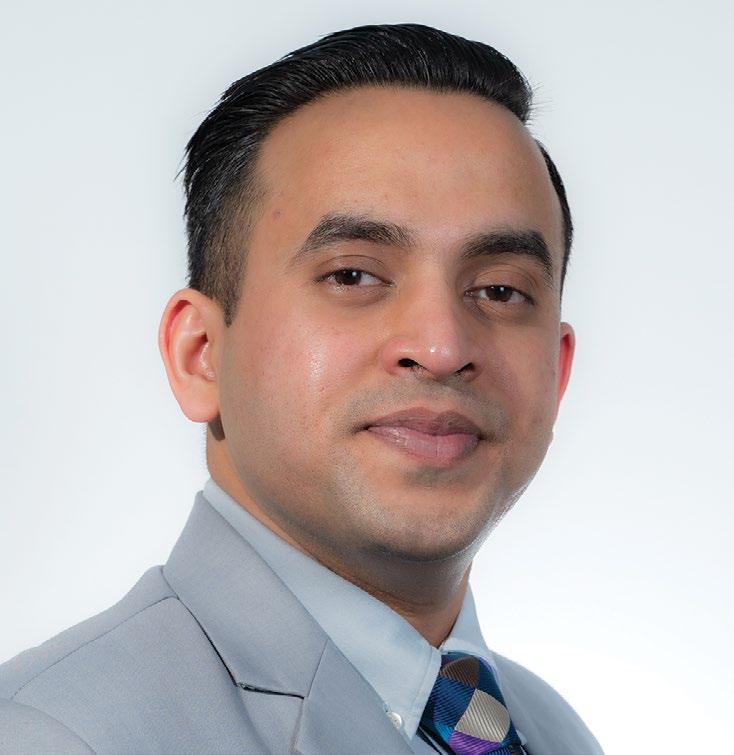
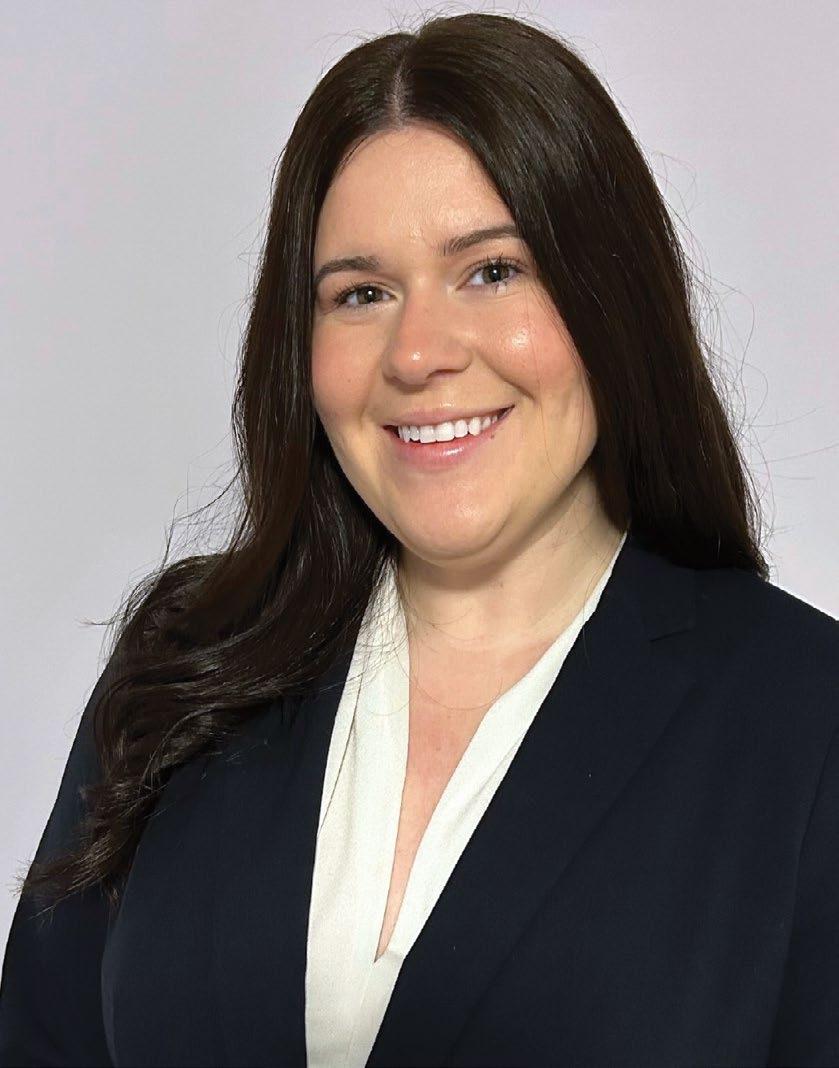

Restaurant manager, Black+Blue, Toronto
From a very early age, Afzal Wasi knew he wanted to be part of the service industry. After completing his Bachelors in Hospitality in India, he had the opportunity to travel to U.S. and work at Hilton Anatole in Dallas where he got his first taste of the food-andbeverage industry.
In March 2023, Wasi joined the pre-opening team at Toronto’s Black+Blue as restaurant manager, where he leads a team of more than 120 front-of-house staff.
“Afzal truly enjoys the hospitality industry, where he showcases his natural passion and dedication with his peers and leaders, taking every opportunity to coach and develop those on his team,” says Jack Lamont, VP/director of Corporate Operations at Glowbal Restaurant Group. “He makes Black+Blue a place where people want to come to work, feeling respected in a safe environment.”
Wasi also leads the concierge program for the restaurant and works closely with the Les Clef d’Or from the city, organizing its events at the restaurant and taking care of its clients.
Event manager, Friday Harbour Resort, Innisfil, Ont.
A proud third-generation hotelier, Kalene Finnegan has been exposed to the hospitality industry from an early age. She developed a passion for this industry and is proud to follow her mother and grandmother’s footsteps.
Currently the Events manager with Friday Harbour Resort, she works with both internal and external clients, handles private events as well as the resort-wide events.
“Kalene joined Friday Harbour in 2023 and has made a significant impact since her arrival,” says Hani Roustom, CEO at Friday Harbour. “She embodies our core values of passion, integrity, excellence and respect, which she encourages with the rest of the team members as well. Her dedication to the team’s success is unparalleled.”
General manager, The Glen Tavern, Georgetown, Ont.
Lindsay Weatherall is a talented member of the foodservice-and-hospitality industry who leads with kindness and consideration. In June 2023, she was promoted from assistant general manager to general manager at The Glen Tavern in Georgetown, Ont. In addition to ensuring quality of food, creating a cocktails and wine list and managing administrative tasks, Weatherall says the best part of her job is creating lasting memories through little moments.
A graduate of the University of Guelph Business Hospitality program, Weatherall completed her co-op placement at Piping Rock Club in New York. The lasting connections made there eventually led her to The Glen Tavern. While in school, Weatherall helped lead the Forward Food Conference to promote sustainable food production, which brought together more than 100 hospitality and culinary students across Ontario.
“Lindsay has a collaborative leadership style in which she encourages open communication and active participation,” says Danielle Andrews, former general manager at The Glen Tavern. “This ultimately empowers the team to share ideas, build strategies and solve problems collectively. I believe this has helped foster strong morale and engagement among staff. Therefore, it’s no surprise that she was promoted to general manager in June 2023.”
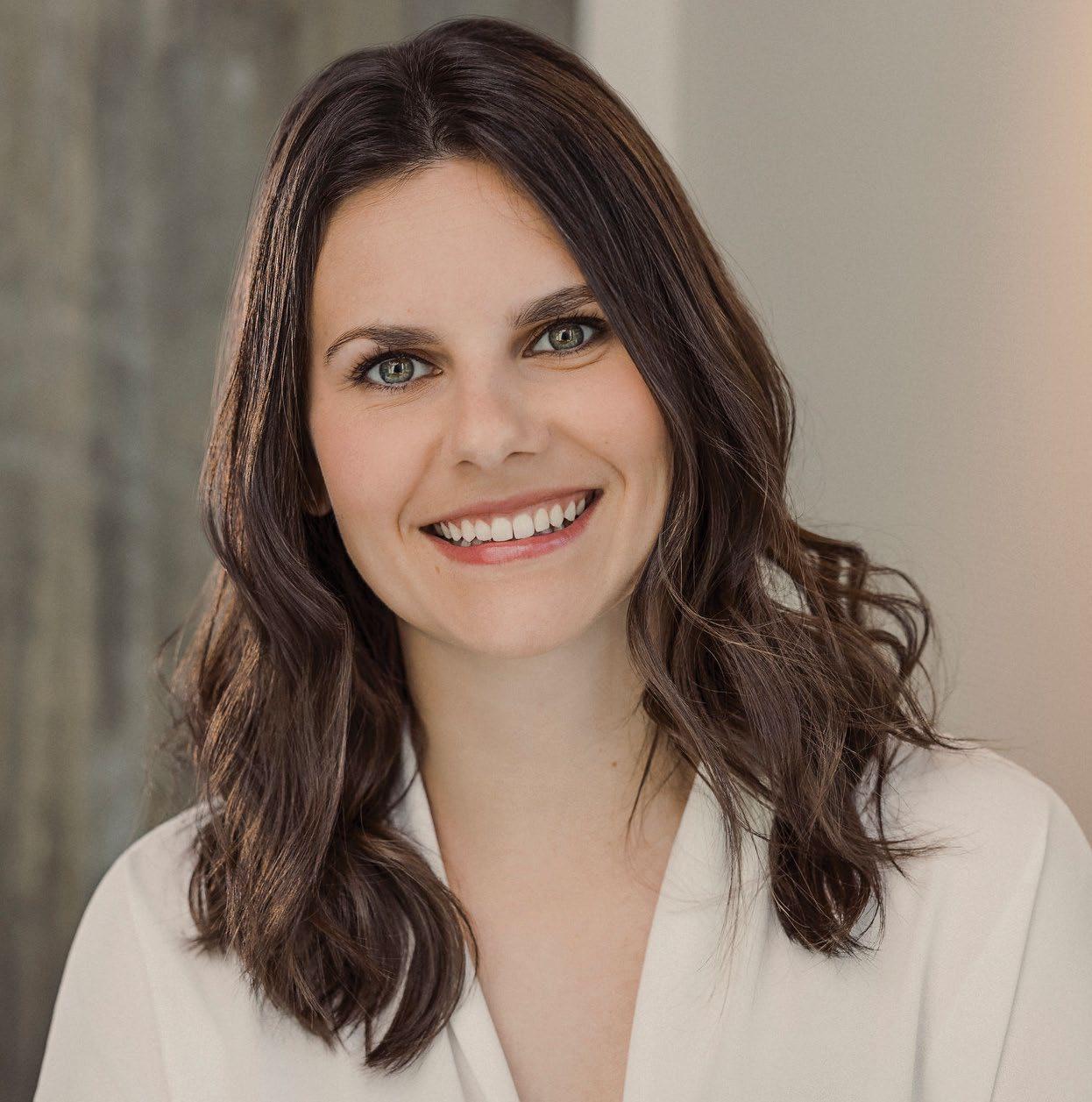
Sustainability project manager, Germain Hotels, Montreal
Justin Nadeau has demonstrated strong leadership in her role as the first Sustainable Development project manager for Montrealbased Germain Hotels, where she actively works with 19 hotels across Canada. She recently completed a Specialized Graduate Diploma (D.E.S.S.) in Sustainable Development Management at HEC Montreal while working full-time for the company.

In her current role, Nadeau has developed a national strategic plan for the coming years in collaboration with the board, executives and consulting firms; implemented various projects across 19 hotels; and developed responsible internal and external communications for various stakeholders. Previously, Nadeau was the F&B project manager at Germain Hotels where she monitored foodservice marketing plans, managed social networks and targeted platforms, researched business partnerships/events, implemented training programs, supported procurement and commercial agreements and more.
Nadeau is a key leader who puts sustainability at the core of Germain Hotels’ business model.
“Beyond her knowledge of sustainable development, Justine is eager to learn and grow further,” says Marie Pier Germain, VP, Sales and Marketing, Germain Hotels. “She constantly seeks to expand her horizons, and having someone like her on our team is an asset to the entire hotel industry.”
Chef de cuisine, Restaurant Pearl Morissette, Jordan Station, Ont.
As chef de cuisine at Jordon Station, Ont.’s Restaurant Pearl Morissette, Liam McLoughlin has played a pivotal role in helping the acclaimed restaurant gain recognition as Canada’s fifth-best restaurant from San Pellegrino as well as being globally recognized by La Liste as 'Best Destination Restaurant' in 2023.
After graduating from Humber College with a diploma in Culinary Management, McLoughlin worked as a sous chef at Caledon Woods Golf Club and chef de partie at Langdon Hall Country House Hotel & Spa before joining Restaurant Pearl Morissette in 2018.
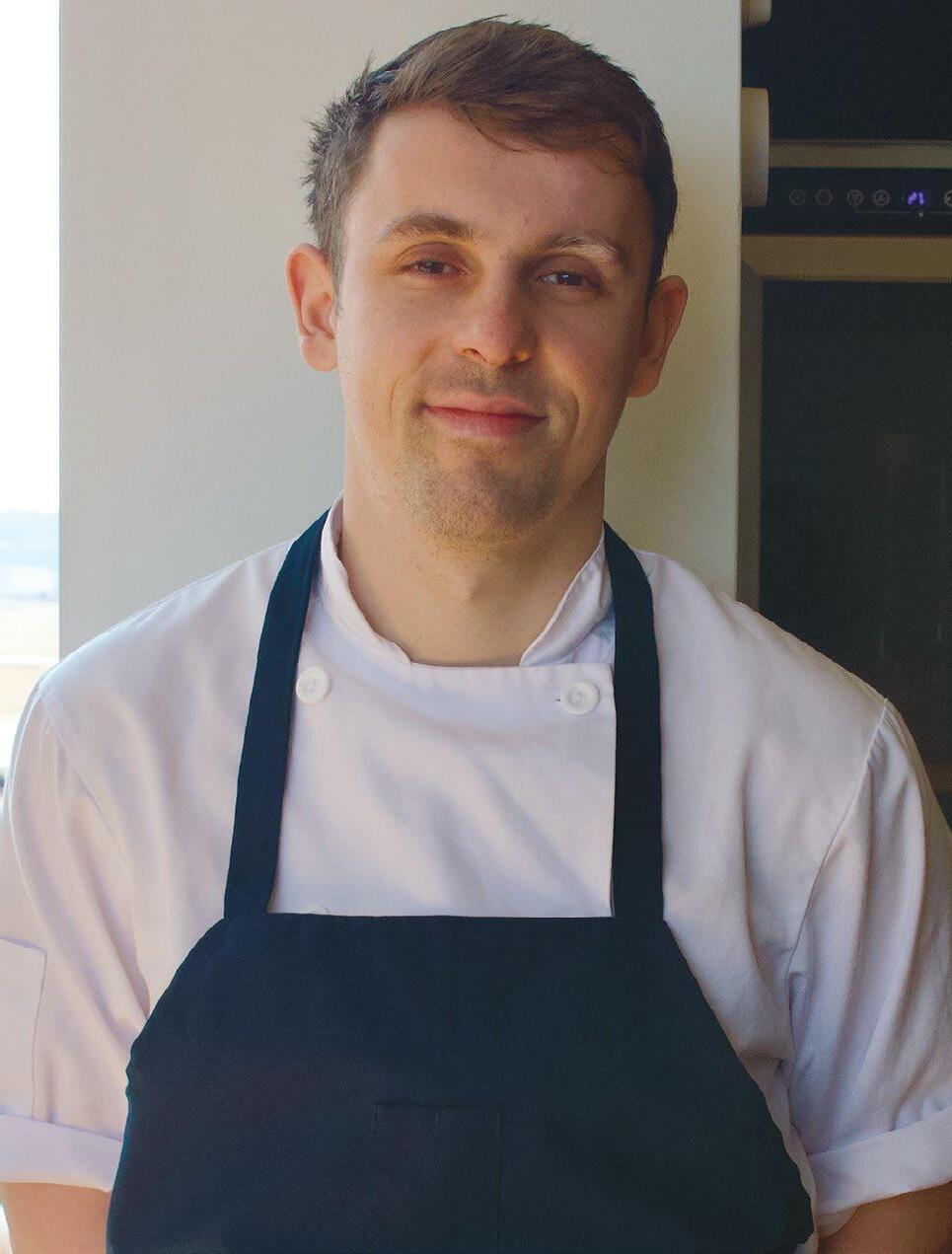
Eric Robertson, chef/own, Restaurant Pearl Morissette/RPM Bakehouse, says McLoughlin shows a commitment to execution that is rarely seen. “In doing so, he always ensures that the team is right there with him. He is constantly supportive of others and makes an effort to keep progressing regardless of the challenges in front of him. We have a belief within our team that when you encounter a problem, it must be handled with empathy, urgency, and creativity. This is completely aligned with Liam's approach but he brings another equally important quality; good humor, always bringing an authentic smile and positivity no matter how big or urgent the challenge.”
Assistant general manager, e11even/Maple Leaf Sports & Entertainment, Toronto
Shantay Brown’s family came to Canada from Jamaica when she was three years old. Raised in a “typical West-Indian household,” Brown says she has always been drawn to food after growing up watching and helping her mother and grandmother in the kitchen.
A mother at 17, she entered the industry at 22 as a server/bartender at a tapas restaurant in Toronto’s east end to make ends meet while she attended the University of Toronto. But her real start, she says, came when she joined 3 Brewers in Toronto’s Financial District as a host. She quickly progressed to a server position and not long after was promoted to a manager position.
In 2023, she became assistant general manager, e11even/Maple Leaf Sports & Entertainment (MLSE), where she is responsible for strategic planning, budgeting, forecasting and organizational development.
“Shantay is a perfect example of the type of success we strive for,” says Chris Zielinski, senior director, Culinary at MLSE. “In her various roles, she has always risen to the top of her group and has gained a tremendous amount of respect from her peers and staff through her leadership style that focuses on transparency, trust, warmth, intelligence and being generous of herself with her team.”

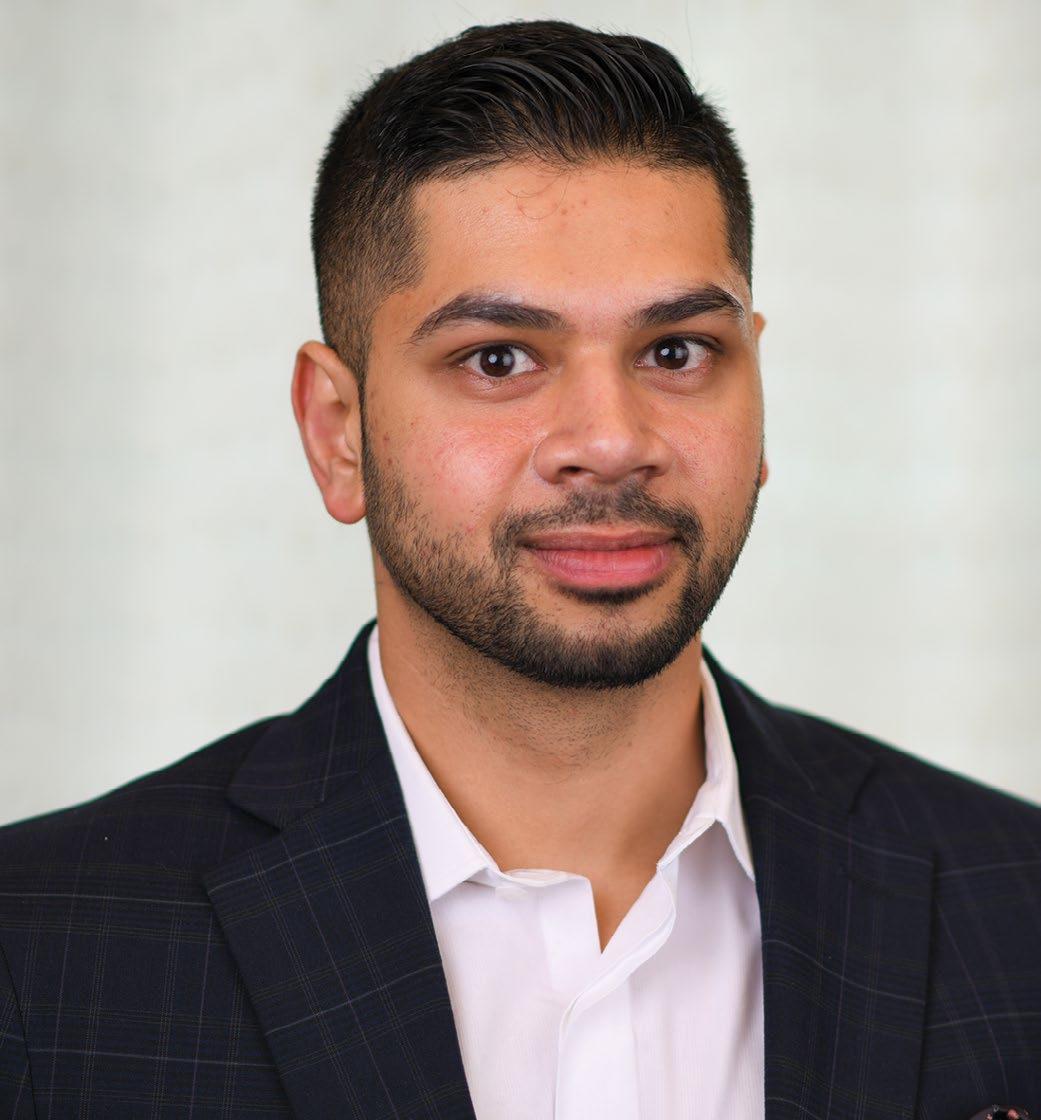
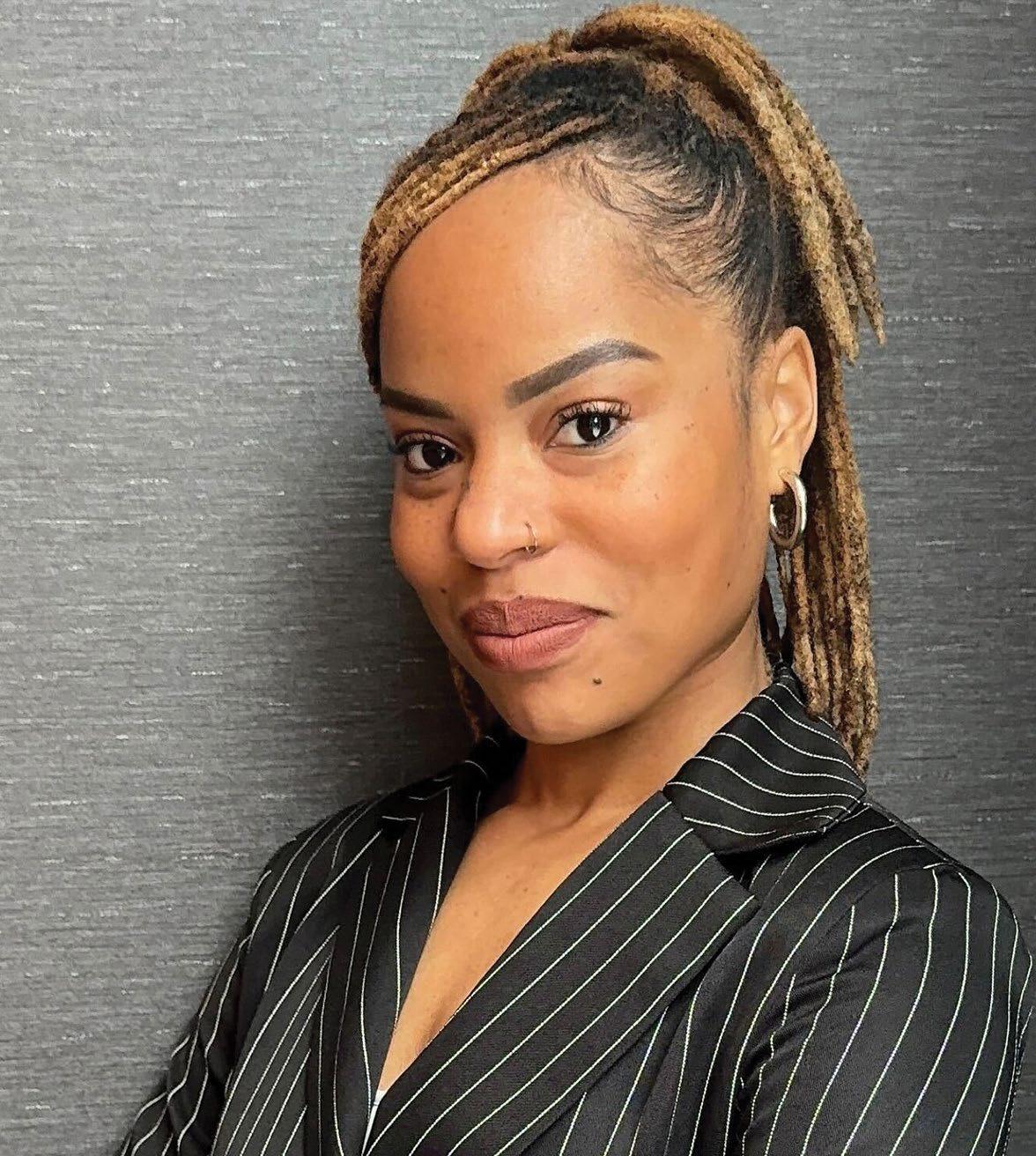

According to his colleagues, Nicholas Iaboni’s success comes from his consistent quest for excellence.
“The leadership and kitchen culture that Nick has created has been his strongest asset,” says Cameron Dryburgh, director of Operations, La Palma, Constantine, Bar Prima. “He has the natural command and respect given to an old school chef well into his career. However, his youth and enthusiasm mean that voices are never raised. He calls a busy kitchen with a conversational volume.”
A graduate of George Brown College’s Culinary Arts & Management program, Iaboni began his career as a line cook at Eagle Nest Golf Club. His natural leadership skills and culinary prowess have led him on an upward trajectory and today he helms the kitchen at Bar Prima as chef de cuisine, where he nourishes and mentors the kitchen team.
“Through his mentorship and demeanour, he has built a team devoted to his success,” says Dryburgh. “Nick is setting the new standard for a head chef. He is a leader in culinary development and a name to watch as a head chef in our industry.
Director of Housekeeping, Marriott Downtown at CF Toronto Eaton Centre
In his role with Marriott Downtown at CF Toronto Eaton Centre, Shivank Savant implemented SOP’s and focused on team training and inspection to increase the Guest Satisfaction Cleanliness score from 76.2 in 2023 to 79.6 for Q1 in 2024.
“Shivank is a driven individual and is always seeking out a new challenge, which led him to accept the director of Housekeeping role last fall,” says Jeff Kennedy, GM at Marriott Downtown at CF Toronto Eaton Centre. “In taking over the largest and arguably most critical department in the hotel, Shivank has continued to showcase his exceptional people skills and ability to learn a new department at a rapid pace.”
A graduate of both Humber College in Toronto and Institute of Hotel Management in Mumbai, India, Savant began his hotel career in 2015 at the Hyatt Regency, Pune, India. He joined Choice Hotels Canada in 2017 before joining the Marriott family later that year.
“I have had the distinct pleasure of working with Shivank and seeing firsthand his professional and personal development over the last six years,” says Heather Guay, director, Canada Franchise Operations for Marriott Hotels of Canada. “In this time, I have seen Shivank grow from an engaged hourly associate, to an eager and promising supervisor and now a talented and respected department leader and mentor.”

Sustainability manager, Fairmont Royal York, Toronto
Georgy Pyle’s passion and creativity is awakened at the intersection of luxury hospitality and environmental stewardship. As the Sustainability manager at the Fairmont Royal York in Toronto, which recently received the Canada Green Building Council’s (CAGBC) Zero Carbon Building – Performance Standard certification, Pyle leads hotel-wide sustainability efforts in line with Accor’s own long-term commitments to net-zero emissions and the Sustainable Hospitality Alliance’s new Pathway to Net-Positive Hospitality.
Pyle is responsible for hotel-wide waste-reduction efforts, driving the elimination of single-use plastics, identifying new pathways for waste diversion and spearheading strategies to improve hotel-capture rates. She also calculates and establishes food-waste baselines in collaboration with the F&B team to support a 25-percent reduction by 2025 through the support of Orbisk image recognition-enabled food-waste monitors. Pyle’s role has provided her with the opportunity to support not only the F&B team, but also the Engineering, Kitchen, Housekeeping and Laundry departments as they relate to sustainability.
Guided by a highly driven work ethic, Pyle, a graduate from George Brown College’s Hospitality and Tourism Management program, has carved her own path at the Fairmont Royal York. From an F&B intern to F&B supervisor to Sustainability manager in two years, she has brought about transformative change and will continue to support sustainable development worldwide.

Operational Training manager, Fairmont Pacific Rim, Vancouver
Shannon Richards is an accomplished Operational Training manager at Fairmont Pacific Rim in Vancouver, currently responsible for designing and implementing training programs.
Richards joined the property in 2022 as assistant director of Housekeeping from Fairmont St. Andrews in Scotland. Before they joined, colleague engagement was at a low point, with a rating of 4.4 out of 10 in 2021. As a team, and with the support of the director of Housekeeping, colleague engagement doubled to 8.8 out of 10 by the end of 2022.
Due to their dedication and leadership in housekeeping, Richards took on their current role in 2023. This was a new position for the hotel and involved re-establishing the service culture throughout the property. Richards was instrumental in maintaining the hotel’s Forbes five-star ranking and in securing an independent Forbes five-star ranking for the spa.
Richards also spearheaded the development of a comprehensive knowledge management platform on Sharepoint. This platform, now accessed by more than 650 colleagues via mobile devices across all organization levels, has revolutionized service excellence and operational strategy. By leveraging data across multiple platforms, the hotel achieved the top Guest Reputation score in the region at 89 per cent.
Richards’ ability to adapt to new environments, overcome obstacles and uplift those around them will continue to serve them well in the future.
Partner and bar manager, Zarak, Vancouver
Through her previous work experience with Pearson Education, CRCC Asia and Whitecaps FC, Sun learned to communicate, collaborate and manage high-stress situations. Knowing she could thrive in busy environments, Sun took the plunge into hospitality.
Sun’s journey with Zarak began in 2021. In addition to being an exemplary business owner, she’s experienced in events, photography and marketing. As a self-taught bartender, Sun’s cocktails represent a blend of her Asian heritage, travel adventures and love for food. In just over two years, Zarak has generated more than $2 million in alcohol sales.
Zarak was also listed in OpenTable’s Top 100 Restaurants in Canada in 2022 and 2023, and was nominated for Best New Restaurant in 2022 and Best Middle Eastern Restaurant in 2023 by Vancouver Magazine. Sun played an instrumental role in these recognitions.
“It’s important to note that, though she’s known as a bartender, Sun’s leadership extends beyond the bar,” says Michelle Sproule, co-founder and managing editor, Scout Magazine. “She’s also a business owner and her natural ability to foster a culture of growth and open communication has built a team as committed to innovation and excellence as she is.”

Coming from a pastry chef and F&B background, and having never worked in a hotel before, didn’t stop Audrey-Anne Guilmain from excelling in her role when she joined Germain Hotels’ Hotel Escad Dix30 as a Restaurant Supervisor and Event coordinator in 2021.
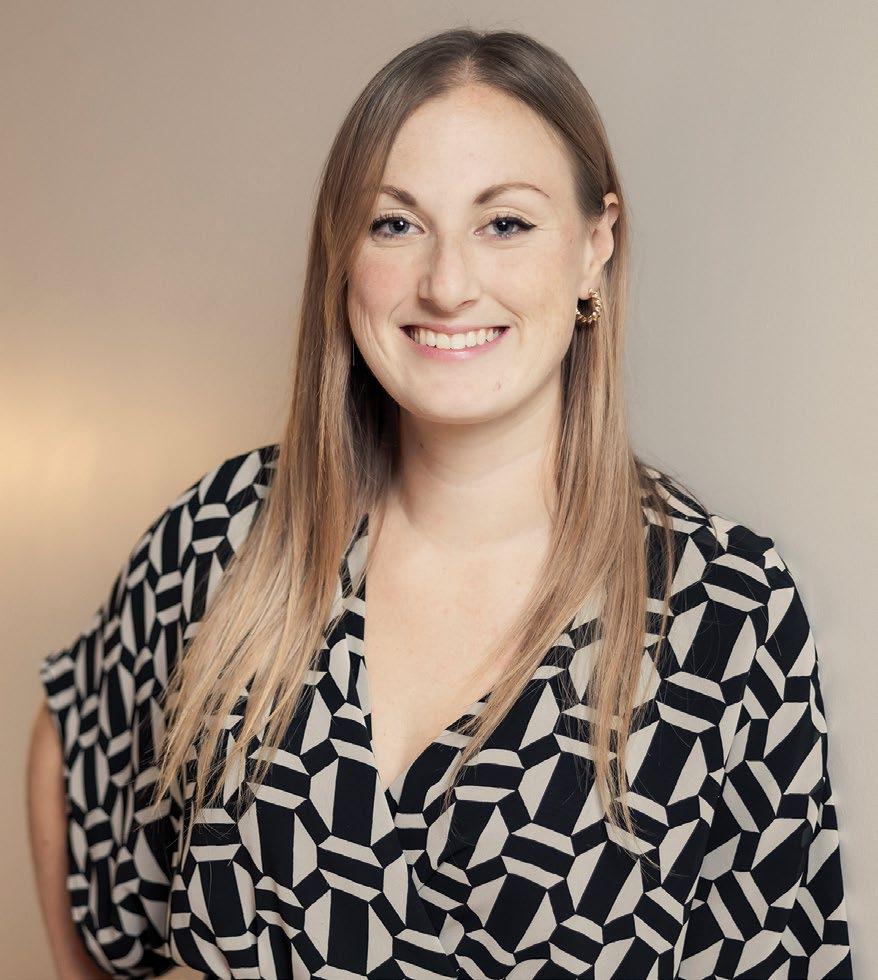
“Her commitment to her role was evident in every task she undertook,” recalls Jean-Philip Dupre, former GM of Hotel Escad. “Working during the pandemic was no small task and she shined through. She was a real beacon of hope for her colleagues and team members as we re-launched our operations following the pandemic.”
In 2022, Guilmain transitioned to her current role as Business Development manager for Le Germain Hotel Montreal, where she is responsible for writing/negotiating proposals for group, managing account performance and Solicitation through qualification, prospecting, calls for tenders, events and sales blitzes.
“Audrey-Anne’s journey through her career reflects her remarkable capabilities and leadership potential,” says Dan Benzaquen, GM, Germain Hotel Montreal.
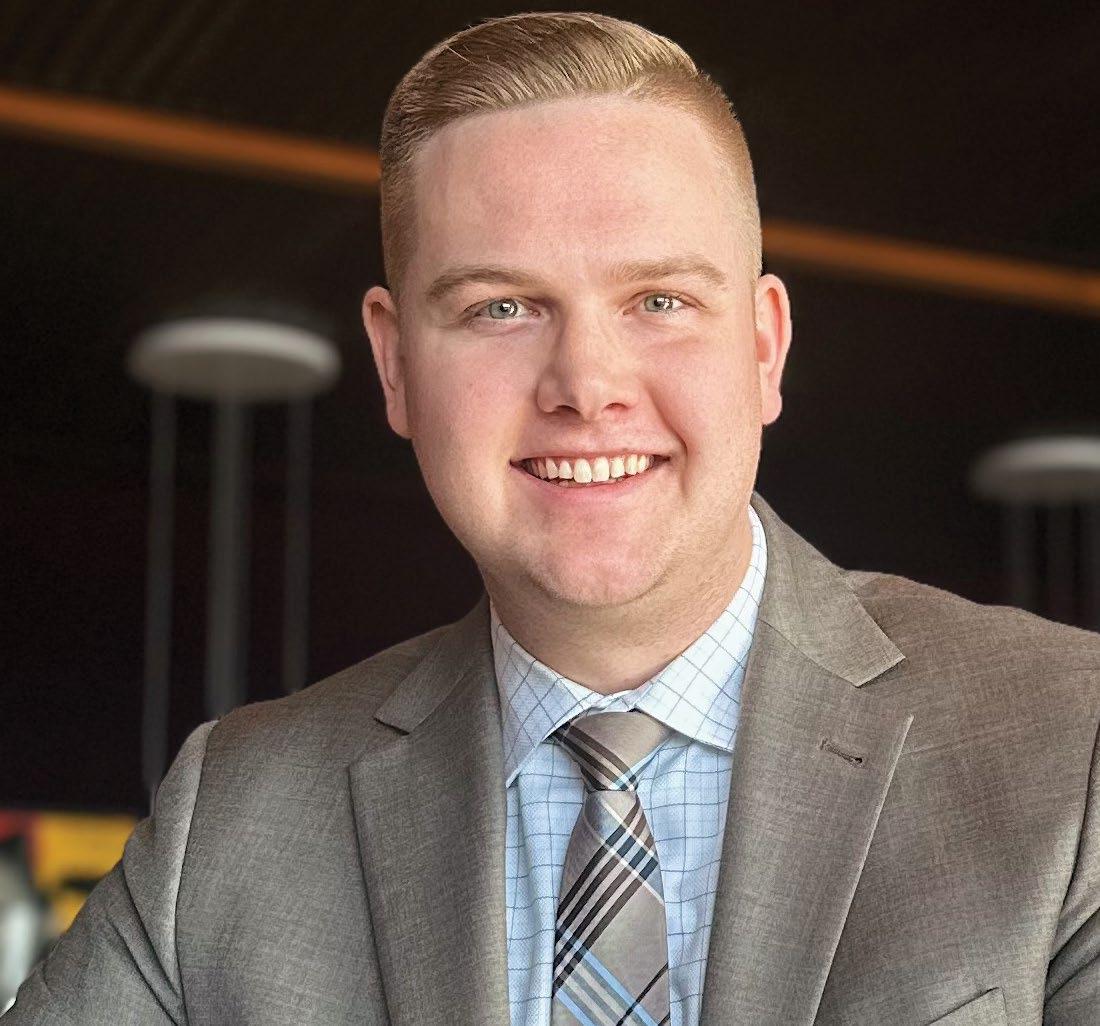
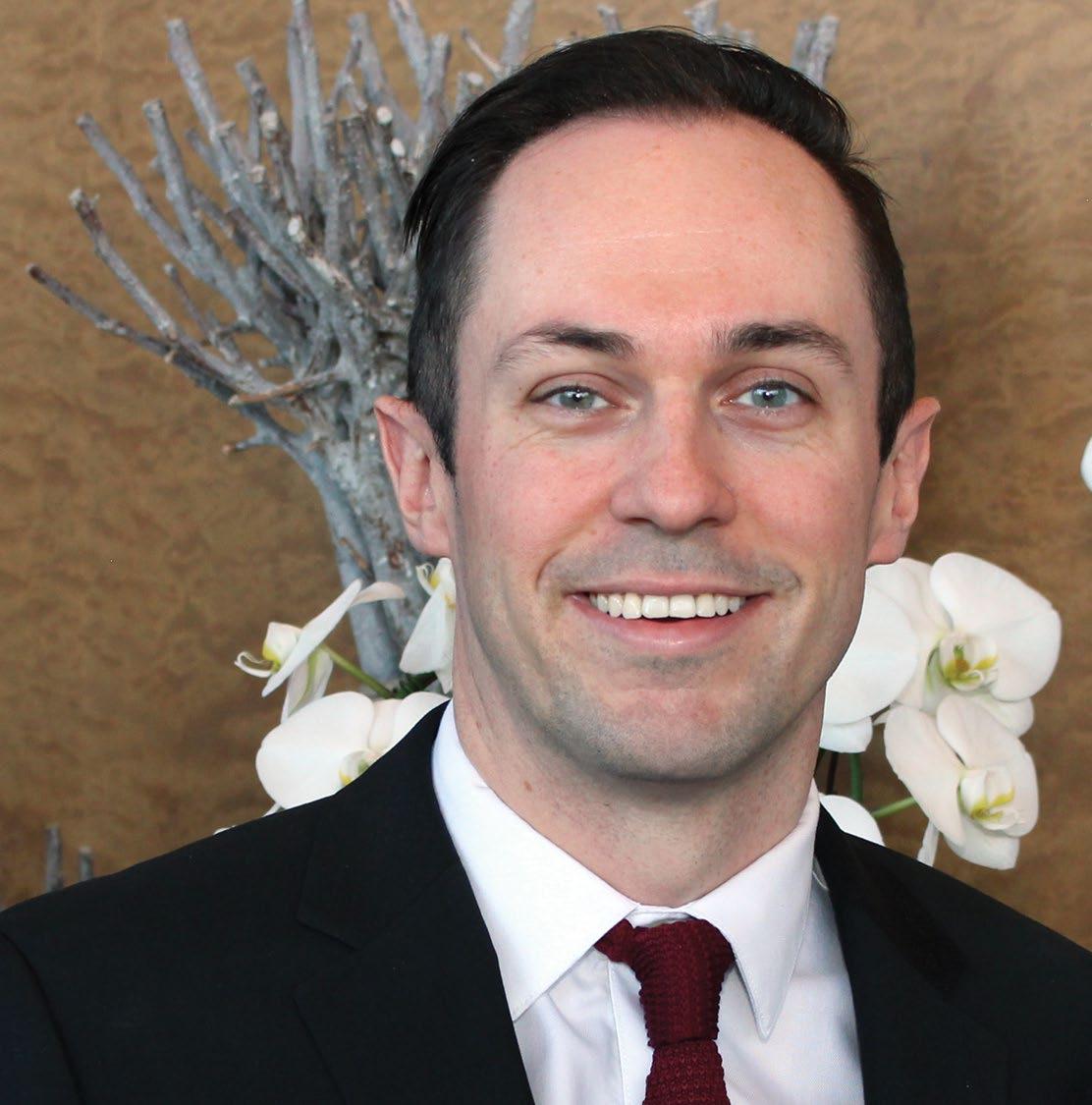

Director of Rooms, Park Hyatt Toronto
Kevin Collins leads by three fundamental principles: honesty, positivity, and the understanding that you cannot ask someone to do something that you yourself would not or cannot do. In his current role as director of Rooms at the Park Hyatt Toronto, Collins is responsible for the Front Office, Security, Housekeeping and Spa departments. Under his leadership, the front office increased its upsell revenue from $25,000 to $160,000 in his first year, and to more than $400,000 in his second year.
According to Bonnie Strome, GM, Park Hyatt Toronto, since joining the hotel in 2022 as the front-office manager, “Kevin exhibited strong leadership skills matched with a focus to achieve his goals earning him a promotion to director of Rooms. Under his leadership, the Rooms division achieved 100 per cent of their targets while executing at the highest luxury standard. He has successfully assembled a genuine and compassionate group of employees focused on providing thoughtful service.”
Manager, Financial Planning & Analysis, Four Seasons Hotels and Resorts, Toronto Corporate Office
When Ryan Moore approached Emad Hussain, VP Operations Finance at Four Seasons Hotels and Resorts about sharing a letter of reference, “I was excited at the chance to share the contributions he has made to the hospitality industry during his time at Four Seasons. Following graduation from Wilfred Laurier University with an Honours Bachelor of Business Administration and Post Graduate Accounting Diploma, Moore worked as a financial analyst for Four Seasons Hotels and Resorts on a number of teams before landing in his current role.
“Since the time he joined us, Ryan has always been especially enthusiastic to contribute to various projects and activities, and as time has passed, even led some of them,” says Hussain. “Always the first person to put up their hand to support the group, take on informal leadership roles within the team and thinking outside of the box to solve problems, Ryan has continued to grow both personally and professionally.”
Chef/owner, InHaus Cooking, Ottawa
Born and raised in Ottawa, Michael Hauschild fell in love with cooking at a young age. Following his graduation from the Culinary Institute of Canada in Charlottetown, P.E.I., Hauschild honed his skills in restaurants from coast to coast and competed in the Culinary World Cup in Luxembourg as part of the U-25 Culinary Team Canada before returning to Ottawa to launch his private-chef business, InHaus Cooking, at only 21 years of age.
Hauschild recently reached the milestone of 1,000 private events and celebrated his company’s five-year anniversary. Over the years, he has also worked for a variety of different ambassadors in Ottawa and opened multiple seven-course pop-up restaurants.
Director, Front Office, Fairmont Royal York, Toronto
Rachel Burt’s hospitality career began as a Human Resources co-ordinator at The Westin Bayshore, Vancouver at the age of 18 during her co-op semester at the University of Victoria. It was a role that was supposed to last only one month, but Burt turned it into three-summer stint, working on projects within the Sales & Marketing, Reservations, Engineering and F&B departments. The time Burt spent at The Westin Bayshore, Vancouver ultimately fuelled her passion to pursue hospitality management after graduation.
From there, Burt was accepted into the INSPIRE Management Trainee Program as a Rooms leader at Fairmont Empress in Victoria. The program was split into assistant-manager rotations in housekeeping and front office. Eventually, Burt moved into the assistant Front Office manager role full-time where she managed scheduling, purchasing, upsells and the Accor Live Limitless (ALL) loyalty program. Soon after, she became the property’s ALL loyalty champion. Burt also had the opportunity to join the Fairmont Jasper Park Lodge in the fall of 2020 on a taskforce to enforce safety procedures and provide support before taking on the role as the assistant director, Guest Experience & Loyalty at the Fairmont Royal York in Toronto.
Today, as the department head for Front Office, Burt oversees the Front Desk and Royal Service teams comprised of more than 40 colleagues and nine leaders. She also co-chairs the Star of the Month Committee where she manages initiatives to recognize colleagues, leaders and teams of the month.
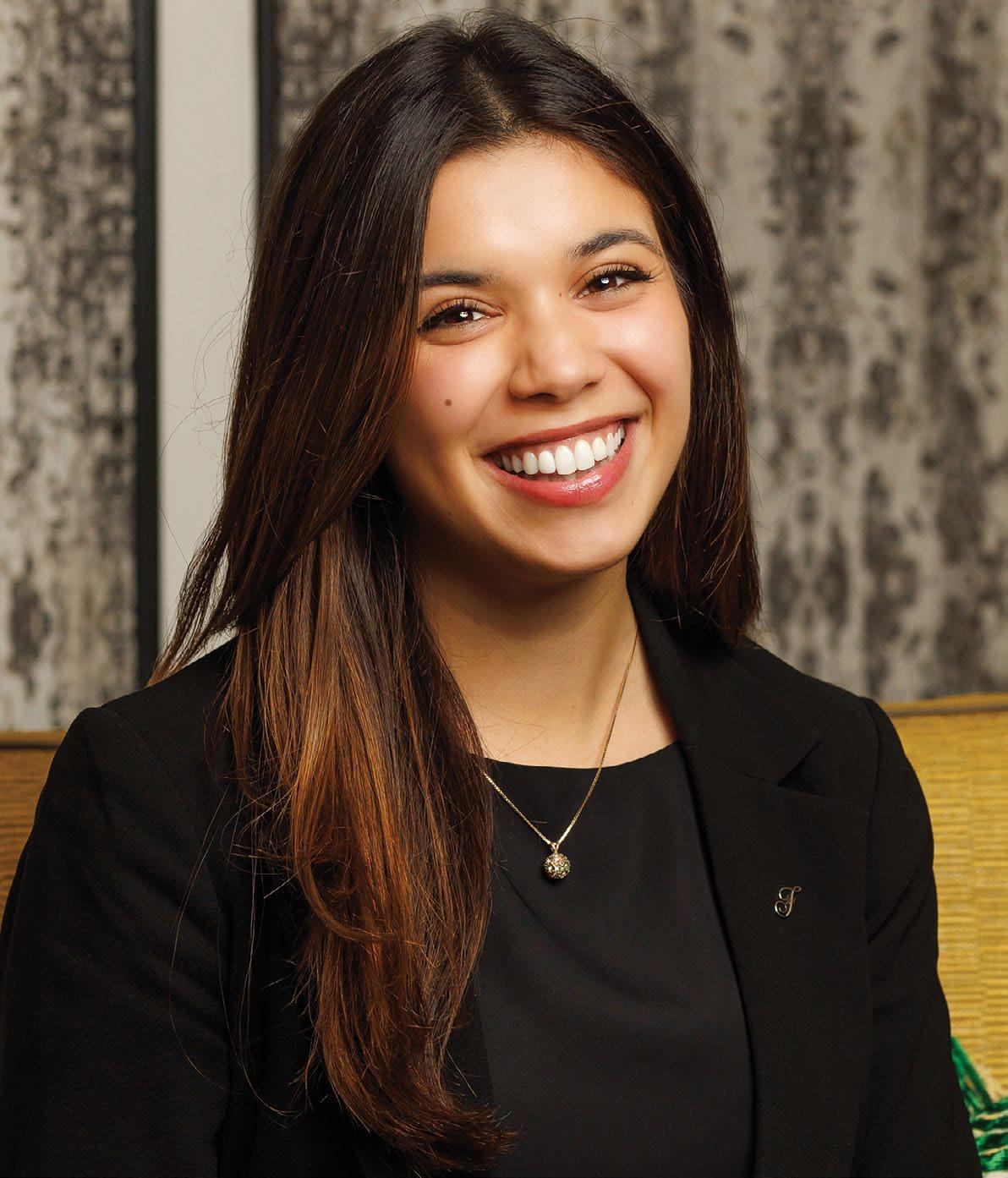
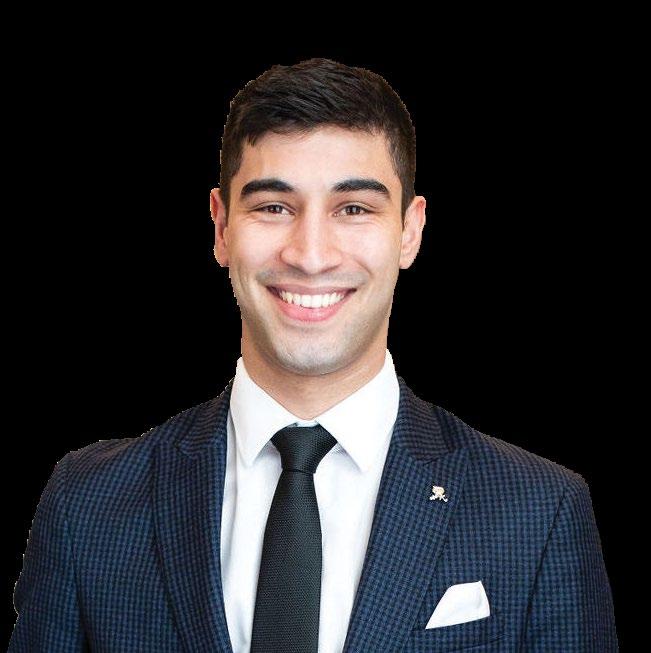
Director, Front Office, The St. Regis Toronto
Hailing from England, Josh Anwar took a leap of faith at 18 and moved to Banff, Alta. by himself to work as a room attendant. From there, he continued to build his housekeeping experience at the Four Seasons Hotel Hampshire in England before moving back to Canada to join the Fairmont Chateau Whistler Resort in B.C.
Eventually, Anwar joined Fairmont St. Andrews as a room attendant and was quickly promoted to Housekeeping supervisor. Two years later, at the age of 23, he became the executive Housekeeping manager, with a total of 60 employees in the department. In the first six months of his new role, Anwar promoted two room attendants to supervisors and a night supervisor to assistant manager. In the first year, Fairmont St. Andrews achieved the highest employeeengagement survey and guest-satisfaction scores the hotel had ever seen.
With this experience, he became the director of Butler Service at the St. Regis Toronto, the first hotel in the country with a dedicated butler team. Then, he advanced to the role of director of Front Office and promoted two front-desk agents to managers and achieved a 20-per-cent year-over-year increase in employee engagement along with improved guest satisfaction and doubled upsells in his first year.
Anwar is excited to continue taking leaps of faith while simultaneously paying it forward to future generations of hoteliers by creating opportunities for growth and fostering a happy work environment.

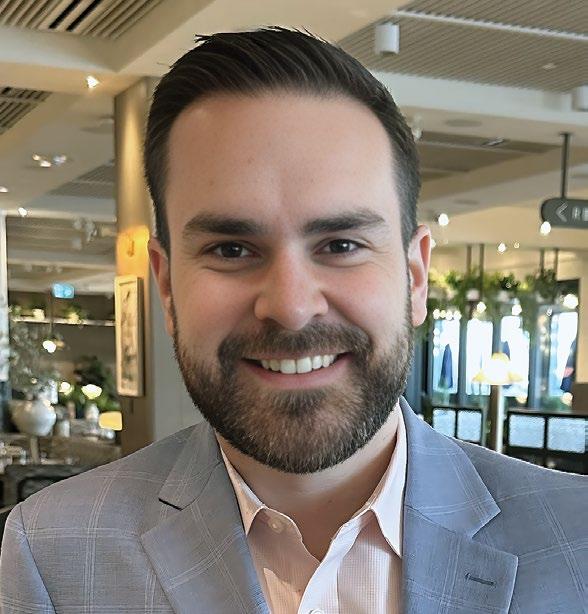
With more than a decade of restaurant experience, and nearly nine years with Earls Restaurants, Adam Simpson continuously seeks out new knowledge and skill sets to stay ahead in a rapidly changing foodservice landscape.
Simpson began his career as a server at Chili’s Bar + Grill while attending Mount Royal University in Calgary and quickly realized that he was meant to be a part of the bustling foodservice-and-hospitality industry.
Simpson’s journey with Earls Restaurants started in Calgary as a manger. In this role, he learned the importance of agility and adaptability. Nearly nine years later, he’s had the opportunity to work in more than 20 locations, including 10 restaurant openings across North America.
In his current role, Simpson is responsible for overseeing day-today operations of the downtown Toronto restaurants, including sales and guest counts, profitability, food and bar service execution and the development of the regional chef, general manager, front-of-house managers and sous chefs. Previously, Simpson led the Earls Yorkdale restaurant opening, which included hiring and management team and partner grid of 300 members. This location recorded the busiest first year of sales in the organization’s history while also achieving the highest Guest Experience Score at an opening.
Looking ahead, Simpson looks forward to continuing to drive growth in the Ontario market.
Head butcher/Food Stylist, The Inn at Bay Fortune, P.E.I.
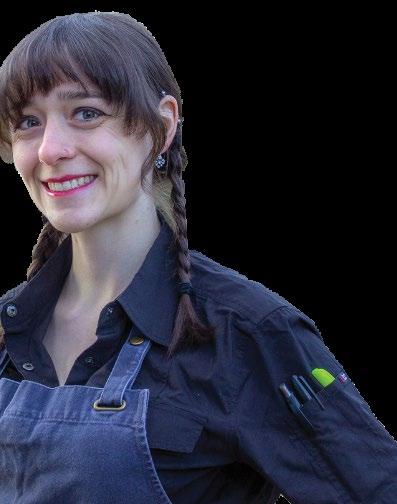
Originally from Saskatchewan, Red Seal chef Adrianna Remlinger is known for her can-do attitude. She’s an experienced butcher, meat smoker, charcutier, cake decorator and mentor, with passion for sustainable, low-waste farm/forest/field-to-table cooking that builds community and connection.
Since 2019, she has been a key member of the Fire Brigade at The Inn at Bay Fortune in P.E.I. She has held several roles there and currently serves as the head butcher and pitmaster.
She is also a food producer and stylist for Culinart Productions. In fact,
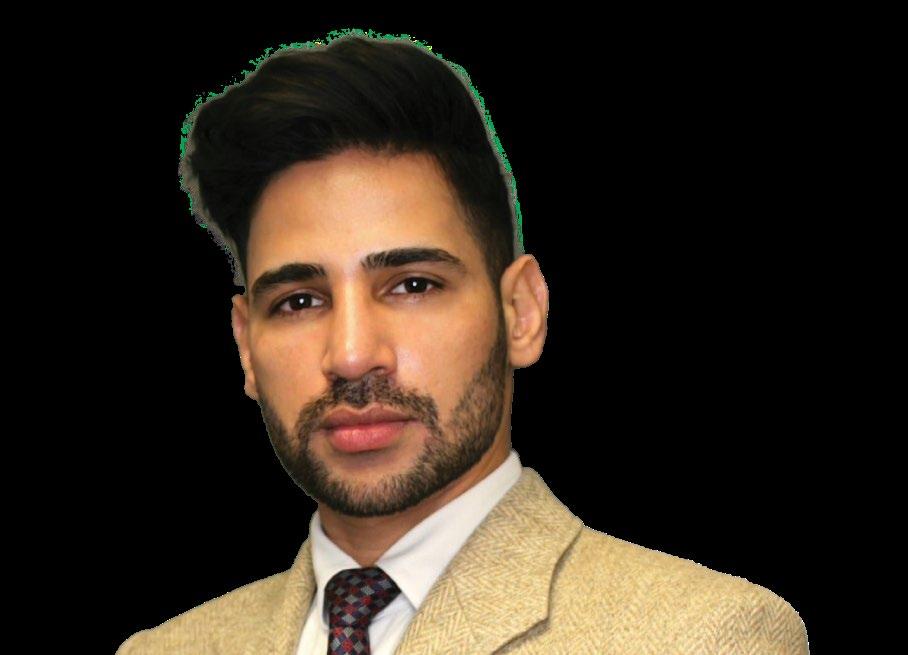
Operational Training manager, Fairmont Waterfront, Vancouver
Akshay Kumar has been fascinated by hotels ever since he was a child. In adulthood, he pursued his passion and turned it into a career.
Kumar obtained a degree in Hotel Management & Catering Technology from the School of Hotel Management LPU in India as well as a post-grad diploma in Hospitality Management. Over the years, he has gained experience working for several luxury hotels around the world, including Aman Resorts, Hotels & Residences (Switzerland), The Oberoi Group (India) and Marina Bay Sands (Singapore).
Since 2019, Kumar has made remarkable contributions at the Fairmont Waterfront in Vancouver. Starting out as a guestservice agent, Kumar has earned several promotions and was appointed to the role of Operational Training manager. In this role, he delivers impactful training programs, mentors department heads and trainers and facilitates new hire brand orientation. His efforts have played a role in achieving a 10-point jump in the 2023 standards audit, reflecting an improvement in consistent delivery of Fairmont service standards.
“What strikes me the most about Akshay is his ability to lead with integrity, passion and humility,” says Jennifer Wong, coordinator, Talent & Culture, Fairmont Waterfront. “His leadership has not only elevated our hotel’s performance but has also fostered a sense of community and mutual respect that’s truly special.”
she has styled and produced all the food and photographs for chef Michael Smith’s upcoming book, Wood, Fire & Smoke. Additionally, her butchery and program will be featured on a soon-to-be released episode of Chef on Fire.
“[Adrianna] has mastered her craft and earned my respect under fire,” says Smith. “Adrianna is also an artist. She has an innate eye for detail and a graceful aesthetic all her own. Her talent shines as food producer and stylist for our various book and media projects. She’s a true team player, leads by example and earns the respect of all around her.”

Senior consultant & Valuation, HVS, Toronto & Montreal
As a senior consultant at HVS, Luc Espaillard has completed more than 100 feasibility studies and appraisals related to the financing of acquisitions, conversions, re-positioning, expansions and renovations. Espaillard’s professional training at four globally recognized universities has rewarded him with expertise in operational management and deep knowledge of the global hotel industry, enabling him to design tailor-made strategies that promote value creation in investment projects.
“One of Luc’s most outstanding qualities is his adaptability to any situation, stemming from his love of travel,” says Monique Rosszell, senior managing partner – Toronto and Montreal. “My Montreal office needed a senior staff member and, although for personal reasons Luc couldn’t re-locate to Montreal, he found a solution and continued to be based in Toronto but took over the supervision and mentoring of the junior associates in Montreal. He has unique soft skills which make him a very natural mentor and leader.”
Espaillard has received a number of awards and recognitions, demonstrating his strong work ethic and willingness to go the extra mile. His remarkable achievements and leadership qualities make him a true asset to the hospitality industry.

Stewarding manager, The Westin Harbour Castle, Toronto
In his five years working at the Westin Harbour Castle, Aaron Foster has advanced his career, moving from an F&B co-ordinator position to Stewarding Manager, where he manages the entire stewarding operation and team of 25 unionized associates. For 2023, he raised associate engagement scores among his team from 95 per cent to 100 per cent.
“In Aaron's leadership of his own team, I have witnessed firsthand his ability to navigate any qualm with creativity and grace, always maintaining his focus on delivering unparalleled food and beverage experiences for guests,” says Daniel Craig, executive chef at the Westin Harbour Castle. “His strong work ethic, coupled with his innovative thinking, has consistently driven positive results for his team and our property.”
In 2023, Aaron was the recipient of the very prestigious Emerging Leader of the Year, awarded by Marriott and the Westin Harbour Castle.
“Aaron extends his leadership and care for community beyond his professional endeavors,” continues Crag. “He actively mentors and supports emerging talent in the community, working to implement a sustainable food recovery program for the hotel with Tablée de Chefs to engage youth and spark their minds towards food and food literacy.”
Foster also volunteers his time working with Thistletown Collegiate culinary students to help send them to Europe for incredible culinary experiences.
Assistant People and Culture manager, Four Seasons Hotel, Toronto
Suzuki Sayako is a consummate people person. In her role as Assistant People and Culture manager at Four Seasons Hotel, Toronto, she has a passion for fostering and maintaining a positive working environment for all the hotel’s employees.
“Suzuki possesses an inherent pleasant and confident disposition that is perfectly suited for hospitality,” says Frank Menezes, professor and Program Coordinator, Hotel Operations Management School of Hospitality & Tourism Management at George Brown College.
And her career progression reflects her strong work ethic. She started with Four Seasons Hotel Toronto as an intern, but during the pandemic, transferred internally to the role of residential concierge for a year before returning to her intern role.
“She was promoted to People & Culture Coordinator within three months and was further promoted to Assistant People & Culture Manager two and a half years later. I recognized that despite being relatively early in her career, Suzuki not only excelled in her individual contributions but emerged as a natural leader within our People & Culture division, and amongst the broader hotel team,” says John McComber, regional director of People & Culture at the hotel.

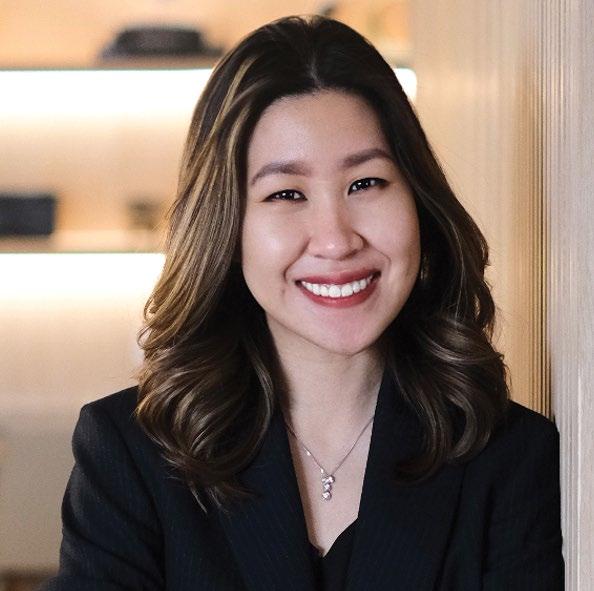
Complex Marketing manager, Hilton Toronto
In her role with the Hilton Toronto, Carrie Wong leads the marketing planning and execution for Hilton hotels in the Greater Toronto Area. She’s an award-winning integrated marketer with eight years of experience in the travel and hospitality industry for clients such as Hilton, Rosewood Hotels & Resorts and MGM.
But what really sets Wong apart, says Andy Loges, area general manager for Canada East, & Ohio, Hilton, are her exceptional leadership skills. “Despite her young age, she possesses a depth of knowledge and experience that belies her years. Her ability to inspire an motivate her colleagues is nothing short of extraordinary, setting a shining example for others to emulate.”
Since joining the Hilton team, Suzanne Cinq-Mars, Complex director of Commercial Services for Hilton Toronto says Wong has demonstrated “outstanding leadership, strategic acumen and a dedication to driving innovation and positive change.”
Wong is passionate about giving back to her community. Her leadership initiatives include the annual Decorate for Hope project at Hilton Mississauga/Meadowvale, the Streetsville BIA and creating innovative social-media campaigns for Women’s History Month and Pride Month.
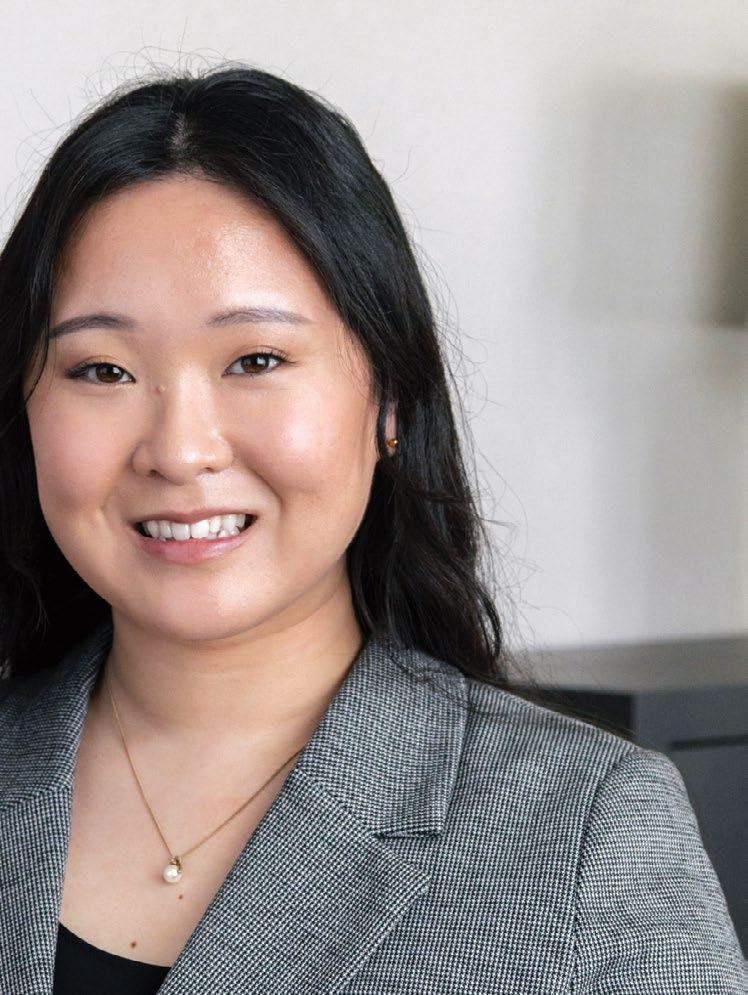
Her commitment to nurturing future talent is also noteworthy. “She actively mentors our junior team members and serves as a source of inspiration for her peers” says Cinq-Mars. “Her role in fostering a culture of excellence and mentorship within our organization in invaluable and sets her apart as a true leader in
Regional Digital Marketing manager, Talent Acquisition, Fairmont’s Canadian Western Mountain Region, Banff, Alta.
Jordan Thompson’s passion for marketing has allowed him to thrive in the hospitality industry, especially at a time when it’s become increasingly important for hospitality businesses looking to grow and attract the next generation of workers.
In his current role as the regional Digital Marketing manager, Talent Acquisition of Fairmont’s Canadian Western Mountain Region, Thompson develops recruitment marketing strategies for Fairmont Banff Springs, Fairmont Chateau Lake Louise, Fairmont Jasper Park Lodge, Fairmont Chateau Whistler and The Rimrock Resort Hotel. His compelling campaigns, which blend digital and traditional platforms, have proven to be successful time and time again.
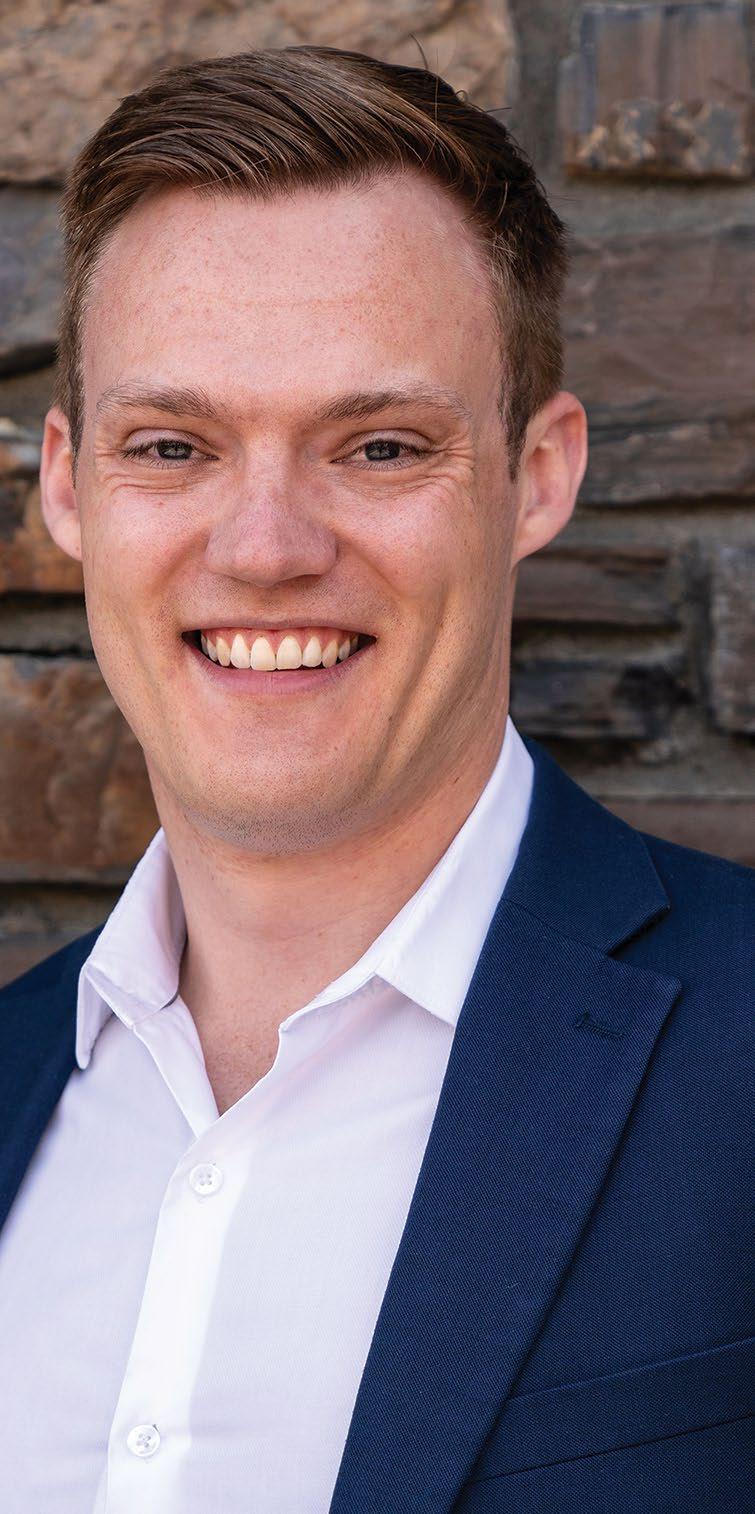
“For 2022, Canada’s Western Mountain Region needed to recruit [more than] 3,000 new employees,” says Gregory Resch, regional VP and GM, Fairmont’s Canadian Western Mountain Region. “While most of our industry in Canada and the U.S. was struggling to find barely enough people to survive, our region was fully staffed with more applicants than ever before and more people looking to join versus what we had openings for.”
Thompson’s leadership, creativity and ability to think critically about the way jobs are advertised will continue to drive results in Fairmont’s Canadian Western Mountain Region. Undoubtedly, his successes and best practices will ripple throughout the wider industry. ♦
After the pandemic pause, and events are back on
BY ROBIN ROBERTS

pause, meeting on the agenda

After several years of virtual collaborations, in-person meetings and events are back. Companies are re-discovering the value of face-to-face confabs and hotels are clamouring to attract this lucrative segment. However, few corporations are eager to return to a stuffy conference room with a lineup of lecturers. They want their staff to have an experience and walk away with not only lessons learned but also memories made. And, they want to do it in an inclusive, unique and sustainable way. Here’s how hotels are accommodating the modern-day meetup.
Despite the desire for many companies to return to group meetings and events, the data doesn’t always reflect the reality. Laura Baxter, director of Hospitality Analytics in Canada at CoStar Group says group room demand in Canada has actually declined 1.5 per cent over the first four months of 2024.
“The metric also remains 11 per cent below pre-pandemic levels,” says Baxter, noting that small towns, resorts and airport locales are especially feeling the pinch comparative to cities. “It was to be expected but a bit discouraging to see those big drops, especially in places such as
Ottawa and Montreal where business groups aren’t coming back to the same extent. Suburban hotels and those along the highway are seeing more demand than urban locations. And the greatest increases are priced below the $150 mark for group rates, which I think shows overall weakness in the economy and people tightening their belts.”
Nicholas Demasi, senior vice-president of Restaurants, Nightlife and F&B for 1 Hotels, says the company is among those seeing increased demand. “We’ve observed a significant rebound in the conference and banqueting industry in recent years,” he says, noting a shift in booker preferences towards more unique and collaborative spaces, “particularly those with outdoor settings, [which have] contributed to this spike in bookings.”
Demasi says clients are especially interested in informal environments which facilitate creativity, collaboration and engagement. “1 Hotels responded with features such as living green walls and spaces full of natural light that offer a more inspirational setting in comparison to standard meeting spaces.”
Daniel Surette, Chief Sales Officer for Omni Hotels & Resorts, says being a smaller, family-owned and managed company allows for more flexibility and less red tape when it comes to contracts and designing unique meetings and events. “We’ve actually changed the flowers and the landscape colour to [reflect] the group’s branding,” he says. Another booking for emergency responder training inspired Omni to roll a fire truck into the ballroom and let participants rappel off the roof. “It takes a bit of logistics planning [but] the first answer [to any request] should be ‘yes’, then, ‘how do we assist?’”
Opportunities for conference-goers to breathe a bit of fresh air helps them stay engaged, alert and focused while digesting reams of new information. Surette says many of their 50 Omni properties across the U.S. and Canada have been designed with those opportunities in mind.
When the weather doesn’t co-operate, Hilton’s EventReady Playbook, part of the Hilton Honors Event Planner Program, offers options for creating engaging events indoors through their “wellness passport.” During meeting
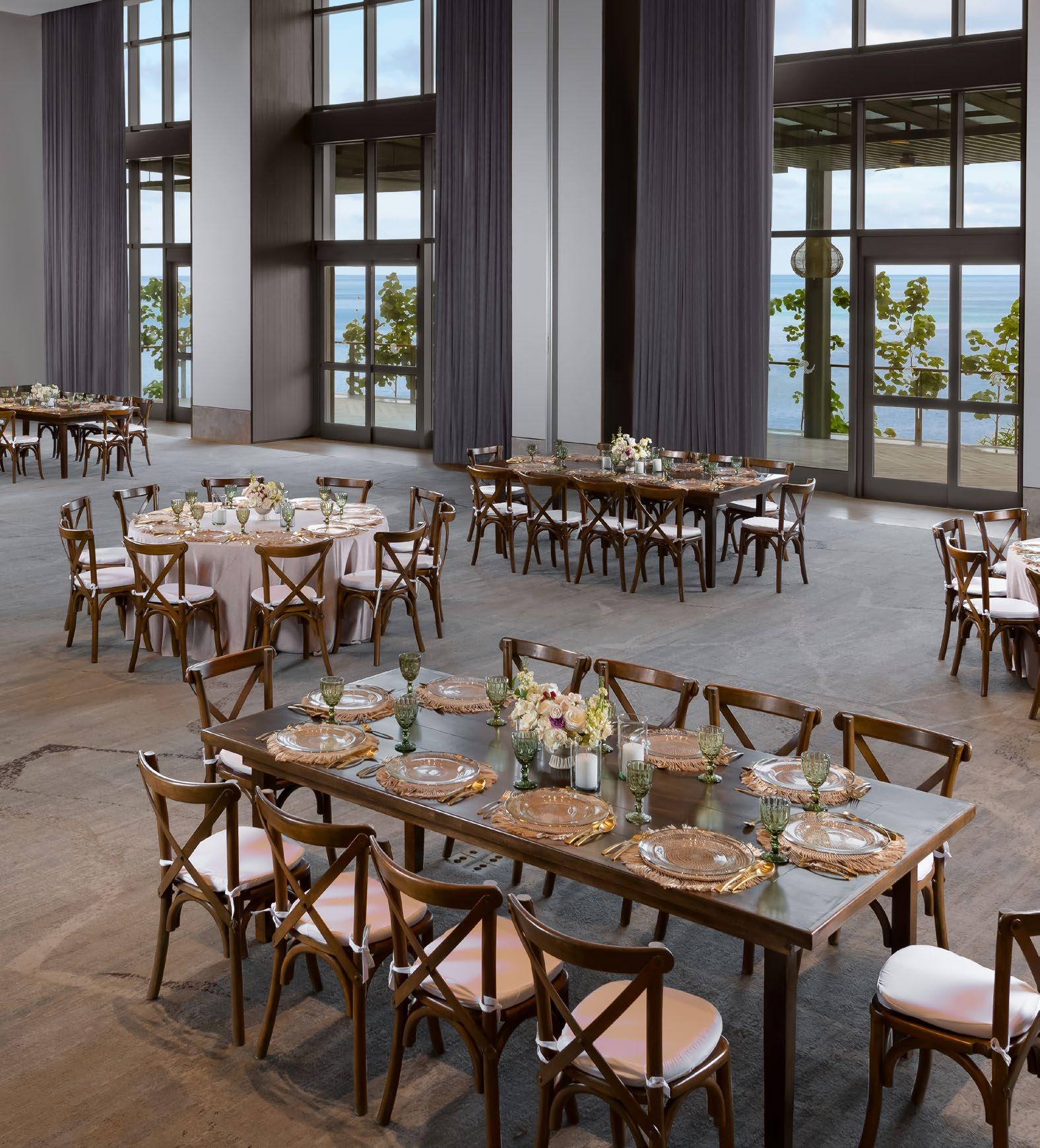
breaks, participants can check out the spa for a massage or aromatherapy session, take a dip in the pool, or attend a fitness, meditation or yoga class to physically and mentally rejuvenate.
The Playbook, says Devin Kaltenbach, senior director, Hilton Honors, is “an added benefit for our loyal event planners, designed to provide guidance, inspiration and solutions for those wanting to create events grounded in engaging, safe and socially-responsible practices,” adding that the program “encourages members to earn Hilton Honors points for meetings, conferences, celebrations, weddings, group travel and other special events of all sizes held at participating Hilton hotels worldwide, with no minimum spend required.”
Many attendees want to maintain their healthy routines, and hotels can accommodate that by designing their menus with a focus on nutritious
meals and beverages. “People have become more mindful of their health and wellness, even in professional settings, and they expect conferences and banquets to provide food and drink that cater to various dietary needs and preferences,” says Demasi. “1 Hotels has created bespoke menus tailored to meet any client specifications, ensuring that attendees can enjoy exceptional dining experiences that align with their dietary habits and routines.”
Over at Omni, Surette says their culinary teams work with bookers to meet their groups’ needs, whether it’s a grab-and-go option, small plates or big buffet. “Buffets are still popular but we’re seeing [more requests for] small plates and other options.”
Baxter says sustainability remains top of mind in the segment for both conferencegoers and the venues themselves. To that end, 1 Hotels has traded single-use
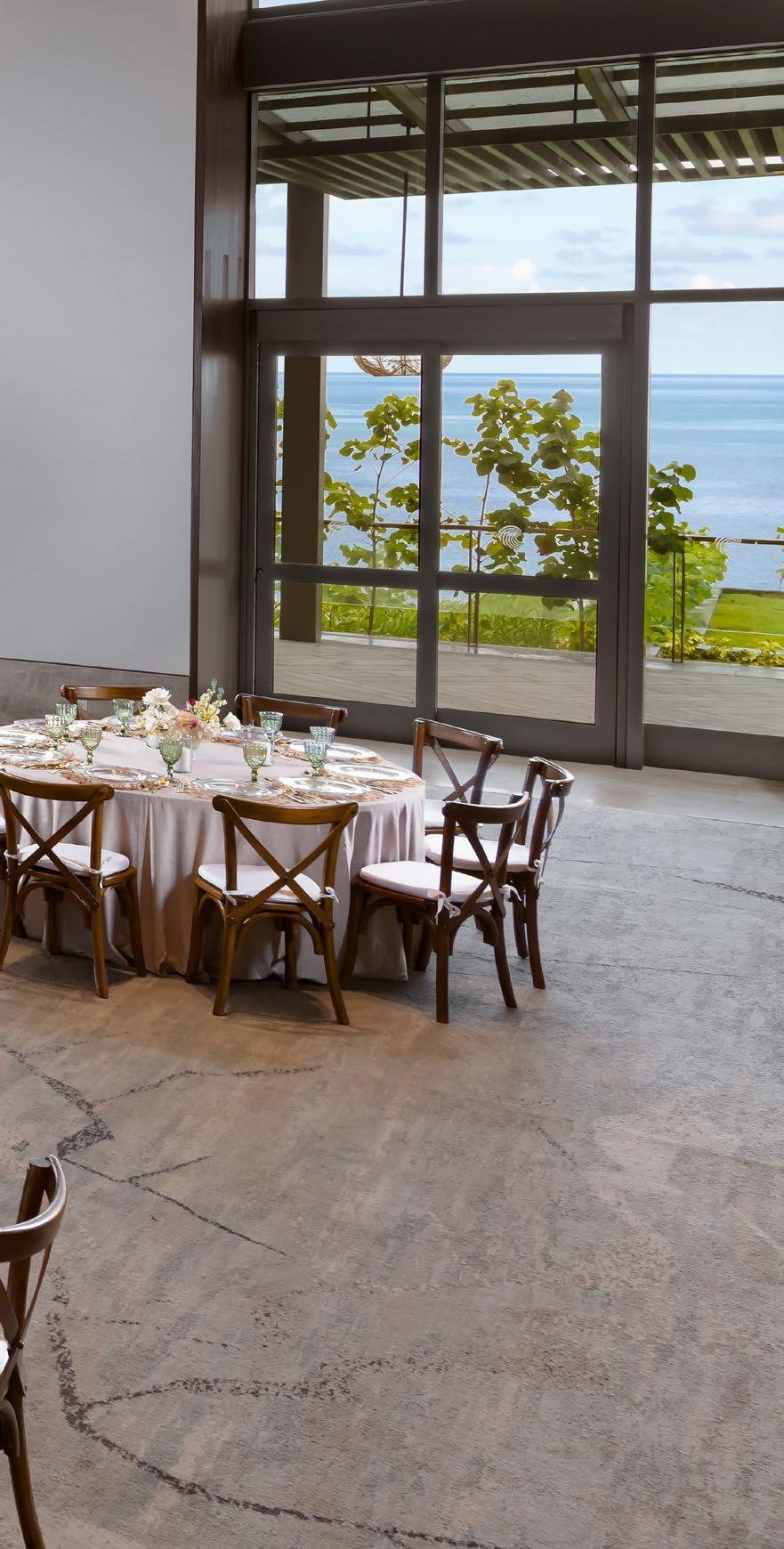
plastics for eco-friendly and re-usable alternatives, which have significantly reduced expenses.
“Our decision to implement the Certified Sustainable Gatherings initiative was a natural progression in our mission to integrate sustainability into all aspects of our operations,” says Demasi, noting the program has averaged a 97 per cent waste-diversion rate. “It was driven by our commitment to environmental responsibility and the growing demand for eco-conscious events. This brand-wide initiative empowers clients to create unforgettable events with minimal environmental impact, offering third-party certification with Foodprint Group to ensure transparency and accountability. The program emphasizes flexibility, allowing clients to customize their events according to six core principles, ranging from waste reduction, food donations, to eco-friendly and re-useable decor. And, by leveraging tools like Copia, a surplus distribution platform, we efficiently distribute excess food to local communities, minimizing waste and supporting food security initiatives.”

Similarly, Surrette says Omni has recently updated its Environmental, Social and Governance (ESG) guide to, among other initiatives, better manage and re-purpose food
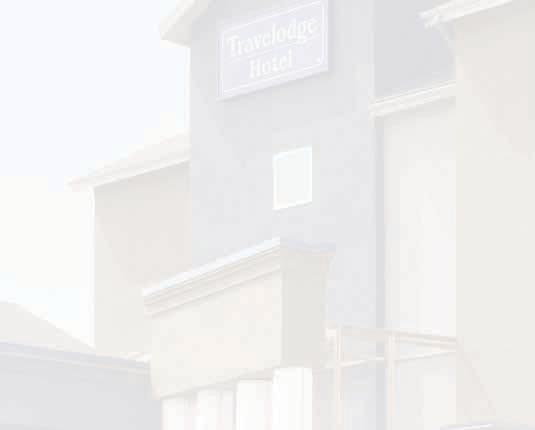
waste. “We have a program called Say Goodnight to Hunger, which started in 2016. For every group or transient stay, one meal is donated to the local Feeding America Food Bank where Omni hotels operate. Since then, we’ve donated 25 million meals. It’s heartwarming to see our teams volunteering at the food banks, which totals more than 7,000 hours a year, and know that the meals and dollars are going back into those local markets.”
With regard to automation, Demasi says technology has further expanded and supported sustainability in conferences while making them run smoother and more efficiently. “For example, event-management apps reduce the need for physical materials; real-time data analytics optimize resource use; and enhanced virtual and hybrid event capabilities lower the carbon footprint associated with travel.”
Group meetings and events are obviously a lucrative source of revenue for hotels, and leveraging that market is ever more important. “Attracting a strong group base is an important element that allows hoteliers to confidently yield rates in bookings made closer to the date of stay,” says Baxter. “But when hotel demand was rebounding from the pandemic, group base became less important as transient demand was so strong. Now that demand patterns are normalizing, group base is of increasing importance again.”
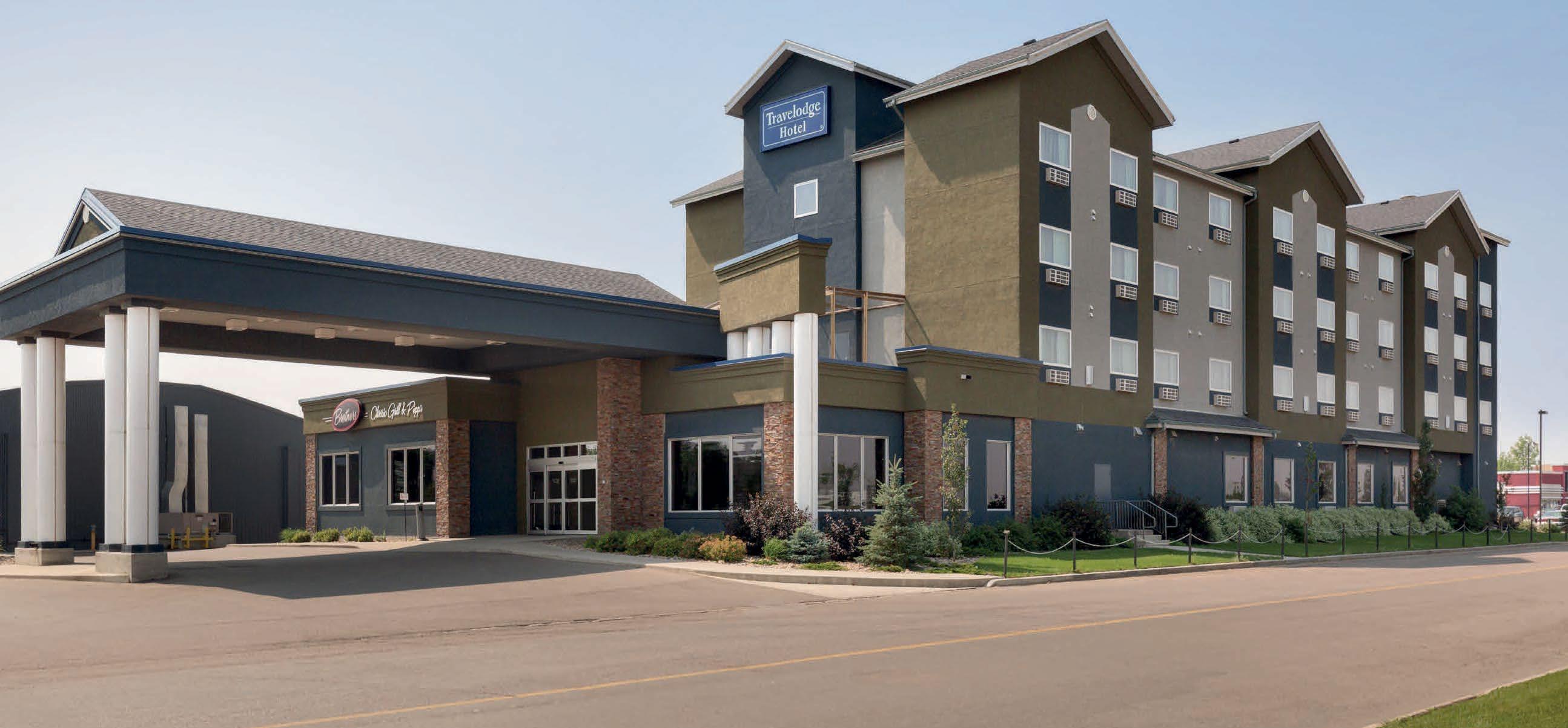

BY SARAH B.
Forget the gourmet and chef-driven guests in is the promise of Hilton’s 2024 Trends of generation, the travel in 2024 is to “sleep tourism” is This year, Hilton the Grand Wailea, Maui that include and relaxation-focused angling to cater to with its SWAY sleep-therapy techniques that take and numerous outlets
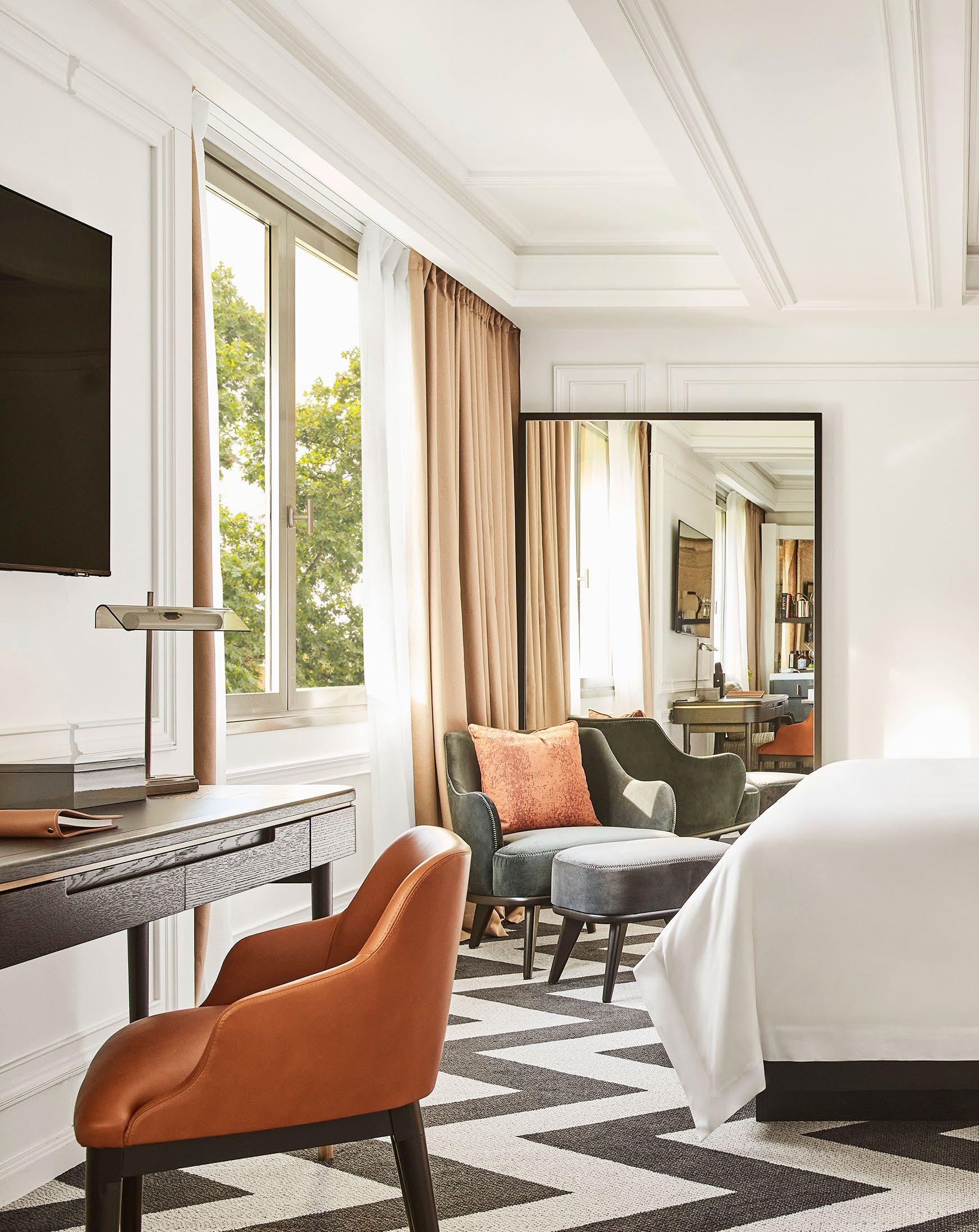
the saunas and spa services, the gourmet coffee stations, Wi-Fi access chef-driven cuisine: what hotel want above all when they check of a restful night’s sleep. In fact, Trends Report identifies that “regardless number-1 reason people want to to rest and re-charge,” adding that on the rise internationally. Hilton is launching Sleep Retreats at Wailea, A Waldorf Astoria Resort in doctor-led educational sessions relaxation-focused spa services. Other properties this niche include Conrad Bali, sleep-therapy experience (relaxation take place in a cocoon hammock) outlets offering “pillow menus.”

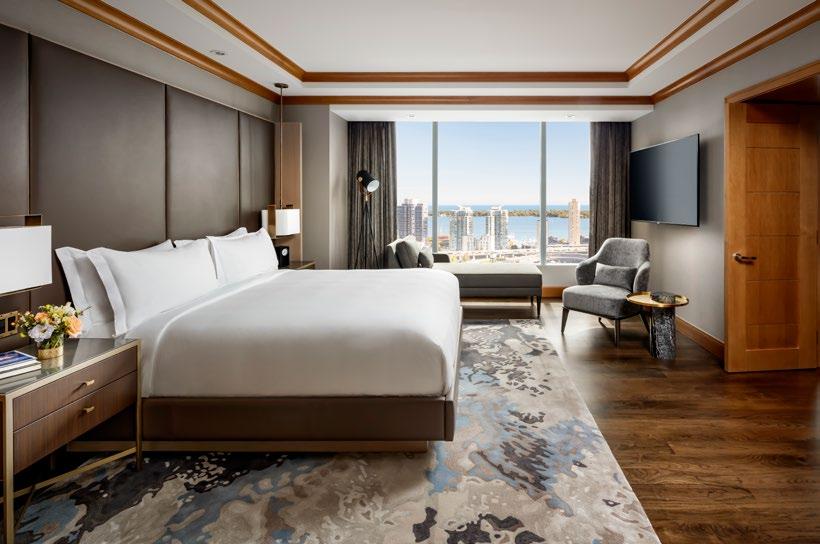
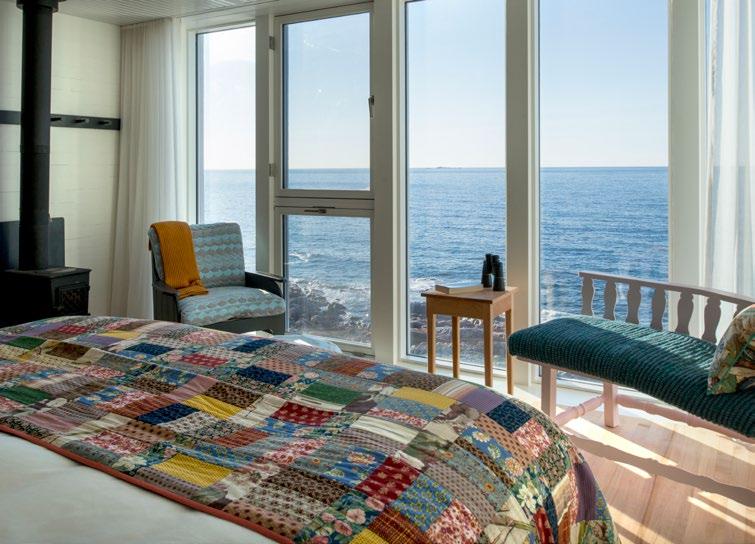
“A well-thought-out sleep retreat must offer an all-encompassing approach that includes nutrition, movement, mindfulness, and bespoke treatments,” says Emmanuel Arroyo, senior corporate director of Wellness at Rosewood Hotels & Resorts. “At Rosewood Abu Dhabi, the Revive in Retreat is a transformative three-day program that unlocks the ultimate in sleep quality through everything from a sound healing session to healthy cuisine and IV therapy.”
Rosewood also has a brand-wide program called Alchemy of Sleep, a roster of immersive retreats designed to promote rest through sleep. For example, at Rosewood Villa Magna in Madrid, the “Sleep Journey” massage treatment promotes deep slumber through the activation of pressure points combined with mindful breath work. Rosewood Mayakoba offers a similar “Ode to Rest” massage.
A report from HTF Market Intelligence estimates that the sleep tourism market size sits around US$640.9 billion and will grow by US$409.8 billion between 2023 and 2028, reflecting worldwide interest in improving the amount and quality of sleep that people are getting.
Another 2024 study by Oakville, Ont.-based Pearl Strategy and Innovation Design reports that the number of Canadians actively working to improve their sleep increased from 84 per cent in 2020 to 90 per cent in 2023. The report also stated that younger respondents (millennials and Gen Z) were most likely to be concerned about lack of sleep, suggesting that this is a trend that will only grow in the future.
“The hotel industry is witnessing a sustained surge in the popularity of sleep-focused stays that really picked up momentum in 2022,” says Arroyo. “As travellers become more attuned to just how important their sleep is to their holistic health and wellness needs, they’re increasingly looking for accommodations and experiences that prioritize rest and rejuvenation.”
Emlyn Brown, global senior vice-president of Well-Being, Strategy, Design, Development for Accor, says, “there’s an interest and understanding from our clients of the importance of sleep for our mental and physical health and well-being and our longevity,” noting that tech devices such as Oura Rings, FitBits and iPhones have made it easy for anyone to track their sleep patterns in detail. “People are comparing their sleep patterns; sleep is becoming competitive,” says Brown.
But first and foremost, “the hospitality industry is in the sleep business,” he says, and “what you’re seeing is this drive and move towards recovery” as post-COVID travellers take steps to improve their health and overall quality of life. After all, why suffer through jet lag if you can do something about it?
“We’ve been a little bit remiss in the way we’ve designed rooms in the past,” says Brown. Now, hoteliers are taking a
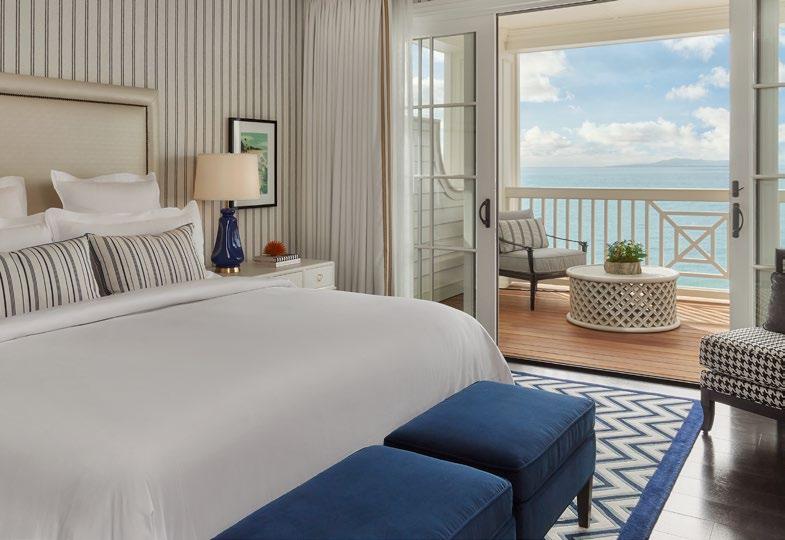
second look at fundamentals such as mattresses and linens.
Sofitel’s MyBed offers a premium mattress that puts an emphasis on the pleasures of sleep. Over the 2023-2024 holiday season, Fairmont Hotels & Resorts in North America offered their own high-end sleep supplies for sale to the public, such as custom-monogrammed pajamas from US$185, pillows from US$109, 300 thread-count linens from US$299 and even Fairmont beds from US$3,900. The Ritz-Carlton and the Four Seasons also offer their luxury bedding to the home market.
Beyond bedding, says Brown, lighting (or the lack of it) is key: “The impact of blue lighting has a great effect on your sleep. We’re bringing circadian lighting [which mirrors the changes of natural light throughout the day] to a lot of our luxury properties.”
Today’s LED technology now provides for tailored lighting in every room with affordable remote-controlled fixtures that can be regulated not only for light intensity but also for the warmth and coolness of colour.
Blackout curtains aid restful sleep, and EMF cutouts enable guests to shut down the electrical frequencies in their room. Brown says his favourite quick fix is reducing the number of tech gadgets to eliminate extra light sources.
Choice Hotels has conceived its Sleep Inn Designed to Dream properties with warm colours, soft lighting and nature-inspired designs. At the renowned Fogo Island Inn, with plentiful natural lighting, handmade textiles and the soothing sounds of the Atlantic surf, “guests report drifting off effortlessly during the nights they spend here. We’ve often heard from guests that they’ve ‘never slept better’ and pride ourselves in knowing our Inn is conducive to relaxation and reflection,” says managing director Amanda Decker-Penton.
Similarly, Rosewood creates an optimal sleep environment through blackout curtains, tranquil colour schemes and in-room amenities such as bath salts and relaxing scent sprays. “We also tapped the latest in sleep technology to provide the best experience to our guests by partnering with Bryte, a pioneer in smart mattresses that enhance sleep quality and track sleep data, at select locations including Rosewood Miramar Beach,” says Arroyo.
Accor uses Eight Sleep mattresses, which can be programmed to different temperatures on different sides of the bed, resolving an age-old dispute for many couples. A pilot room Accor conceived for Swissôtel “pulls back all the conceptions about how a room can be designed,” says Brown, providing lessons that can be incorporated into other luxury properties, from sleep-tracking aids to compression therapy boots for recovery from the physical effects of air travel.
We’ll see this as standard approach to room design. This is an area for industry growth and development as a whole.”♦
BY NICOLE DI TOMASSO
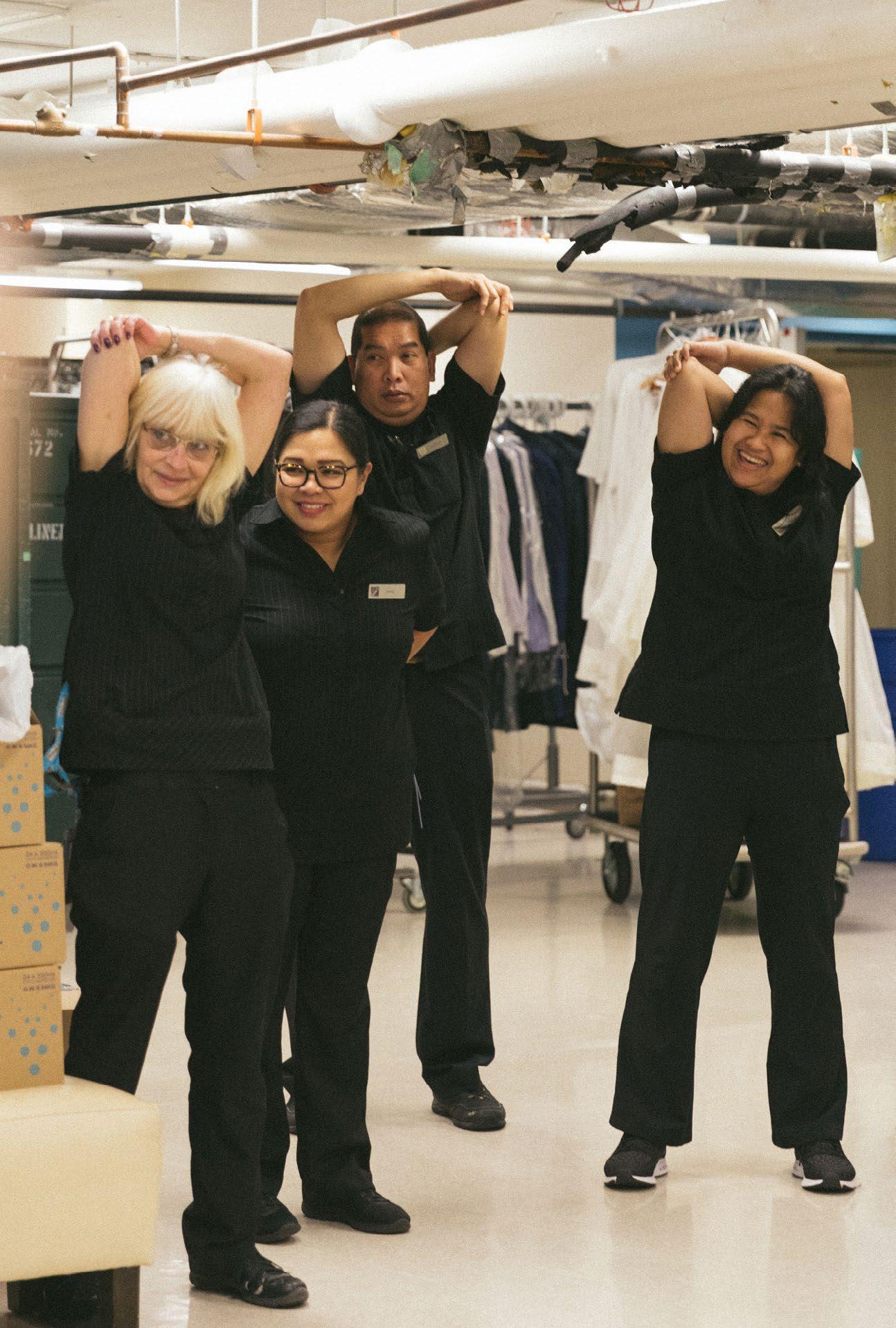
The concept of employee wellness isn’t entirely new, but its role within the hospitality industry has garnered significant attention in recent years. Driven by the growing recognition that happy, healthy employees are key to successful operations, hotels are embracing wellness programs as a strategic priority.
Several hotel companies are leading the way in implementing exemplary wellness programs. Here, Hotelier takes a closer look at some key components and a few notable examples.
Mental and physical health are intricately connected, underscoring the importance of treating the body and mind as a cohesive unit rather than isolated entities.
“The pandemic really brought to light the burnout [rate] of people working in the hospitality industry,” says Shannon Richards, Operational Training manager, Fairmont Pacific Rim in Vancouver and KML Top-30-Under-30 winner for 2024. “Many of our associates are doing strenuous jobs, both physically and mentally. We often think about the physicality of jobs but we rarely think about how jobs affect an individual’s mental health.”
Among its many initiatives, Richards says the hotel is currently running bi-weekly yoga classes and has registered a team for a soccer league this summer.
“We’re flexible and we listen to what our team wants. If there’s a number of associates who are interested in a particular sport or activity, we try and get behind it as much as possible.”
Additionally, Fairmont Pacific Rim’s onsite dining area for associates encourages
healthy eating habits and fuels productivity.
“In addition to foods that everyone knows and loves, we also have a salad bar and fresh fruits and vegetables,” says Richards. “Fresh produce in Canada is expensive so having a staff dining room that’s accessible and open 24/7 has been valuable to our team.”
Earlier this year, Fairmont Pacific Rim collaborated with GreenShield to offer six hours of free counselling (personal, family, financial, et cetera) and raised its mental-health benefit to $5,000 for every associate through Manulife Health Insurance plans.
“One of the biggest pieces is education around how to access these supports, such as helping associates understand how to do video counselling. When we’re onboarding new associates, we make sure they have access to all the tools they need and understand how to use Manulife and GreenShield to make the most of their benefit.”

Furthermore, authenticity is increasingly recognized as a cornerstone of a thriving organizational culture. Be yourself is arguably some of the oldest advice in the book, but it’s taken a long time for that notion to penetrate the workplace.
“As a member of the LGBTQIA+ community, if an individual is in a mental space where they can’t come to work as their authentic [self] then they can’t be present at work. Hospitality is about genuine connection. The bottom line of what people want when they go to a restaurant or a hotel is somebody who will be present in a conversation with them, who actively listens to them and takes time to be with them. If an individual is showing up to work terrified of being who they are, thinking in fight or flight mode, trying to protect themselves and displaying an image to a guest that isn’t authentically them, so much of their energy is spent keeping up that image. If we can break that down for associates and tell them that we want them for who they are, our associates will feel safer.”
Mandy Farmer, president & CEO, Accent Inns expresses a similar sentiment. “Being Real is one of our core values, and that’s never changed for us. We don’t script our people or force them into strict dress codes because we hire awesome people. We hire them because they’re awesome, so why would we want to suppress what makes them unique? When your housekeeper gets to sing to themselves at work without stressing about how they’re perceived, they can focus on getting you the cleanest room you’ve ever seen. When your front-desk agent isn’t hampered by boring scripts, they can give you the best advice on the most amazing hole-in-the-wall burger joint, or where to get the best weed. Nobody wants to feel like they’re talking to a robot. Authenticity is the answer.”
The hospitality industry is known for its demanding nature, with long hours being one of several contributing factors to burnout, high turnover rates and job dissatisfaction.
“We need to acknowledge the pressures of the industry instead of ignoring them,” says Richards. “We need to acknowledge that 10- to 12-hour days
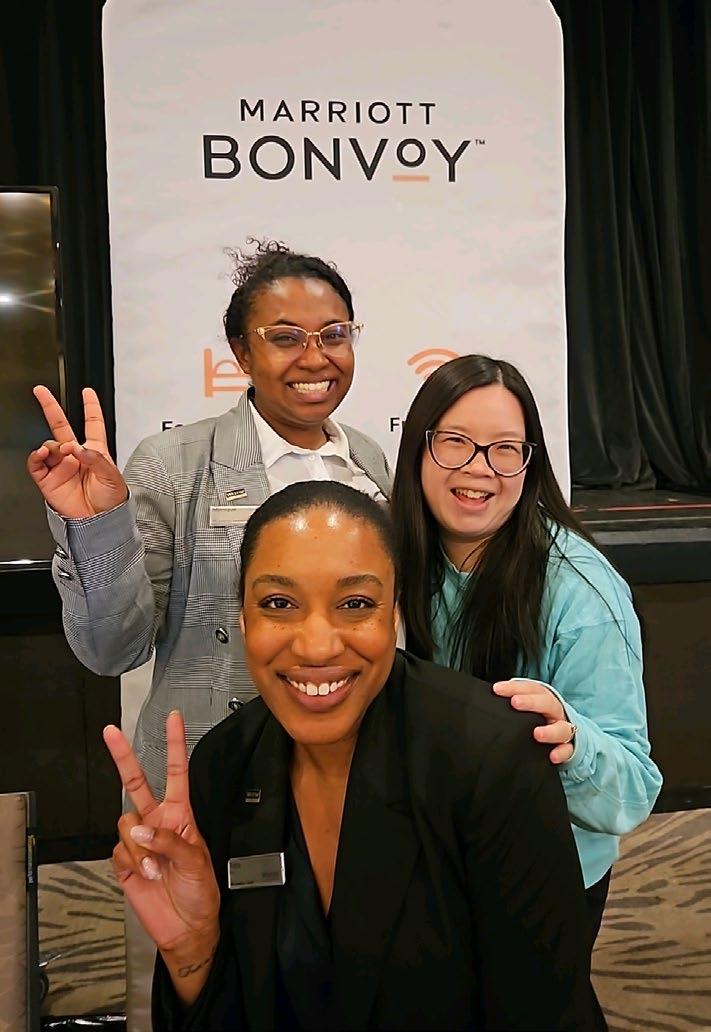
take a toll on people, and if some people are going to have those kinds of days, how can we counteract that?”
In 2021, Marriott International and Marriott Canada introduced the Benefit of Balance: Your Work, Your Life flexible work arrangements for leaders who were offered either the flexibility of time, which could be every other Friday off, or
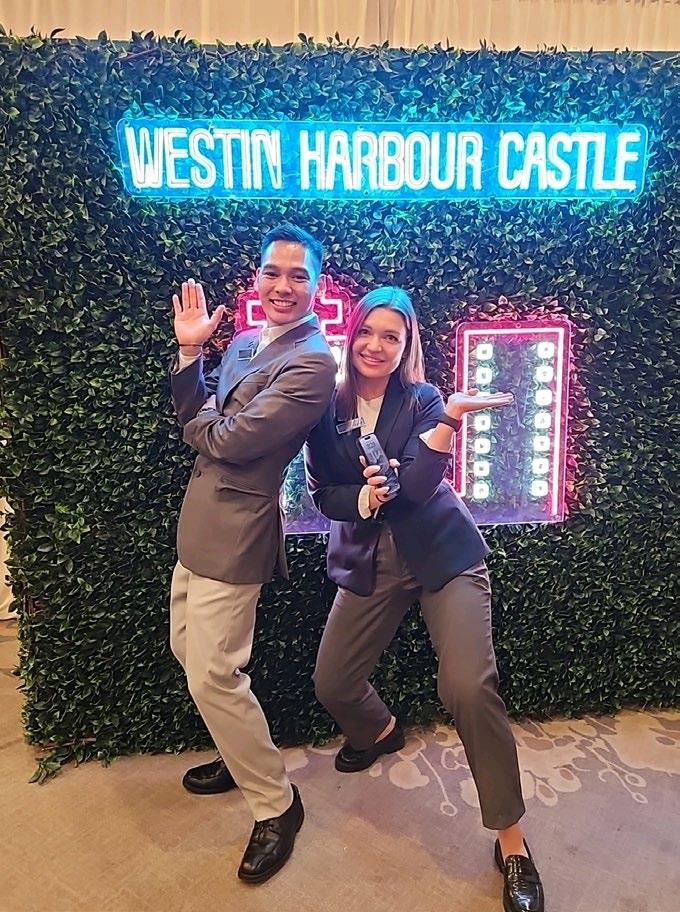

the flexibility of place, which includes up to two days working remotely per week.
“Sixty per cent of managers in Canada have chosen a flexible work arrangement and 91 per cent of managers said the program retains them to Marriott, reducing our management turnover in 2022 by 50 per cent,” says Robin O’Hearn, area director of Human Resources, Canada, Marriott International. “Eighty-seven per cent of managers believed they were more productive/efficient and the remaining had no impact – it was never negative. Ninety-two per cent agreed that their stress, health and wellness was positively impacted,” adding that the company is aiming for 75 per cent total participation, with roughly 25 per cent of managers preferring to work a typical nine-to-five day due to other obligations.
Marriott also launched the Benefit of Balance flexibility of time for hourly and frontline associates who can decide when they work and the length of time they work. O’Hearn says the company
is “attempting to distribute a minimum two-week schedule and aspiring to a multi-week schedule,” adding the program will be rolled out across Canada by the end of the year.
“We collaborated with 7Shifts to introduce technology that makes it easier to schedule. Associates can enter their work preferences, limit their number of shifts and drop or pickup shifts. Red shifts are identified when leaders are scheduling over people’s preferences, so we aim for no red shifts. However, we’re in the process of switching to a global platform, Atlas Enhanced Dimensions.”
From a recruitment perspective, O’Hearn says, “The flexible work arrangements not only retain, but are also an encouraging value proposition for potential candidates.”
Fairmont Pacific Rim offers an Interaction Management course, designed in collaboration with





Development Dimensions International (DDI), to teach leaders how to have coaching conversations and the importance of coaching versus performance managing.
Last year, Accent Inns launched its new leadership development program called Emerging Leaders. “This program is comprised of three sections (leading self, leading the work, and leading others) and combines in-person and online learning,” says Farmer. “The objectives of Emerging Leaders are to grow confidence in our employees both inside and outside of their roles and really develop the whole person, not just the work person. Since we launched last year, 25 per cent of our graduates have been promoted into leadership roles, and, more importantly, 100 per cent of our graduates report that they have more confidence in their work and personal lives after participating in Emerging Leaders.”
In addition to more traditional academic scholarship programs, Farmer says the company also “offers a scholarship program to help our people enrich their lives. If you’ve always wanted to learn how to make authentic sushi, we’ll cover your course. We’ve paid for folks at all levels of our organization to follow their passions in everything from pottery to holistic nutrition to guitar lessons. Last year alone, 22 per cent of our employees used this program.”
“Our people brand is Be: Begin, Belong, Become,” says O’Hearn. “Become is a really important focus for us ensuring that every associate has the opportunity to grow their careers with us in whatever way that might mean to them. Sometimes people like the job they have, sometimes people want to try different things and our job is to encourage them and give them the pathways and support to do that.”
Building exemplary wellness programs requires leaders to re-imagine how they package and offer services. Feedback is also a crucial element as Richards says all of the answers should come from a hotel’s most valuable asset: its staff.
“The old phrase, ‘Leave whatever is going on at home at the door’, isn’t a mindset that should exist, especially within the hospitality industry,” says Richards. “We all have back-of-the-mind thoughts that are happening all day, every day. If we can acknowledge that our associates have other things going on in their lives and create an environment where an individual can openly say, ‘I woke up on the wrong side of the bed today and I’m in a bad mood,’ then we can help uplift that individual and find a way to make their day better as a team. The shift from, ‘leave everything at the

door’ to ‘leave everything with me or your team if you’re comfortable to do so’ has helped our associates feel more comfortable and confident. Confidence goes a long way in hospitality.”
Richards continues, “We have monthly departmental meetings and departmental trainers who are great resources in so many ways. A front-desk agent trainer is a front-desk agent so I feel as though we get a lot more raw feedback from the trainers because they work as an advocate for their team. There’s a direct link between the colleague level and the leadership level. Understanding what our colleagues need to be more fulfilled in their health and wellness comes mostly from face-to-face conversations with the team more than anonymous surveys.”
The benefits of wellness programs extend beyond the health and happiness of the employees. When hotel staff feel supported and valued, they’re more likely to be engaged and motivated, leading to higher levels of job satisfaction. This positive attitude translates directly into the guest experience.
“Employee happiness isn’t a nice-tohave or in conflict with business metrics: it’s a business strategy,” says Farmer. “I believe that when you’re loved hard, you love hard. The love we give to our people ripples out into their lives, their work and their communities. That’s why leading with love has helped our retention, our guest satisfaction and our bottom line.”
“Prioritizing employee wellness can feel overwhelming. Training is another area where people might think it takes up too much time,” says Richards. “But when you really think about it, if employees come to work because they want to be there then everything else falls into place. People who love what they do make other people love what they do. Prioritizing employee wellness means that other things that may be taking a lot of energy, such as guest recovery, complaint handling, figuring out disputes within the team, will start to fade. Those things will never be completely gone but many things will fall into place when a team feels supported.”
Managing and securing data requires an ever-evolving approach
BY DANIELLE SCHALK

Ensuring the security of guests’ data is just as integral to the guest relationship as the information that can be gleaned from it.
As David Clifton, senior vice-president of Oracle Retail and Hospitality Technology, puts it, “Guests entrust hospitality brands with their data every time they engage with different brands and their various properties. This makes it crucial for those brands to make every effort to identify risks and keep that valuable data secure.”
This involves both managing and mitigating access to personal information, as well as protecting against malicious intent.
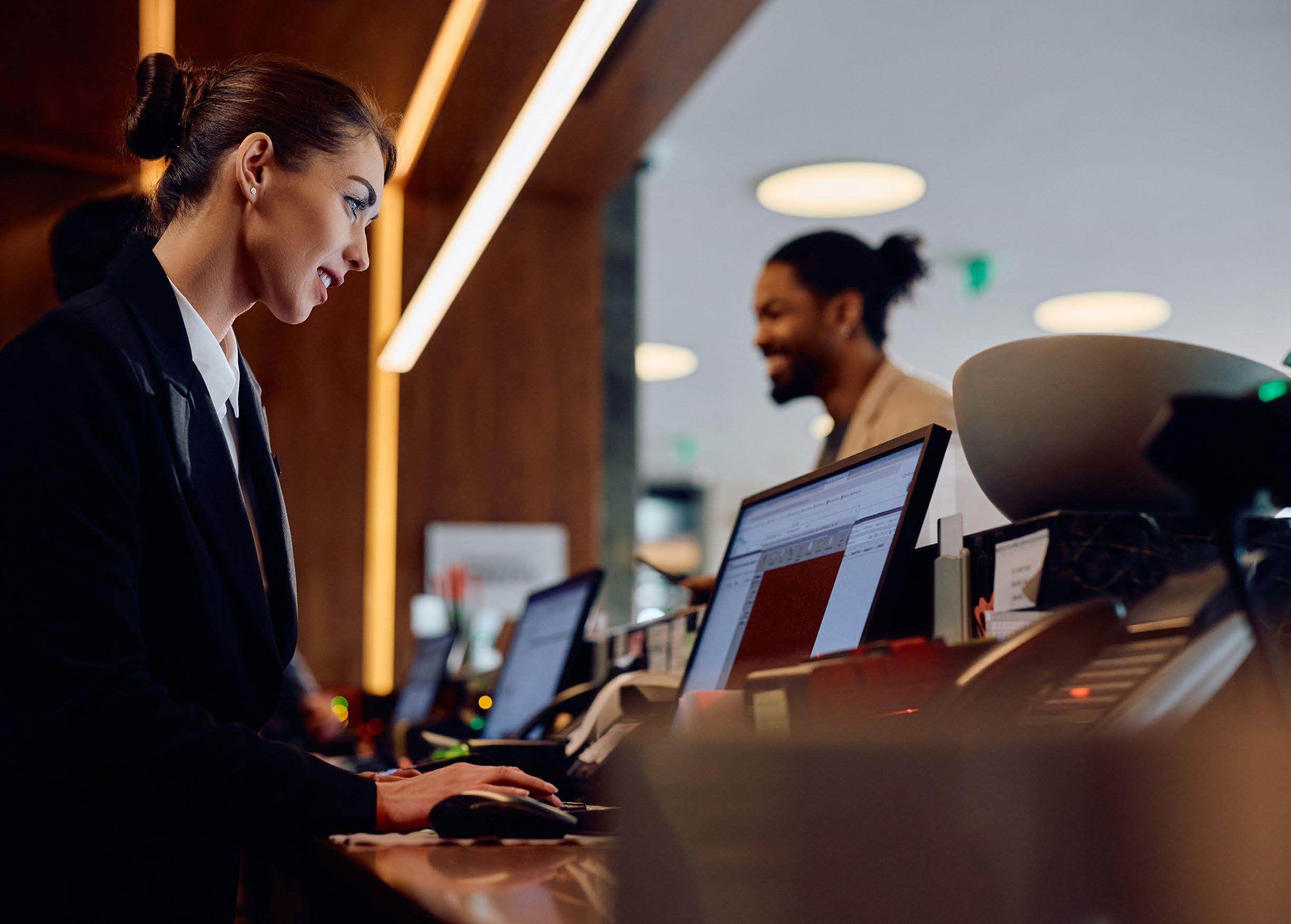
“Key questions hotel brands should ask themselves include whether their staff know how best to handle data and understand the need to limit the sharing of both guest and business data,” says Clifton. “It’s not only having comprehensive privacy policies that clearly outline how guest data is collected, used, stored and shared, but also ensuring it’s clearly enforced and staff are properly trained to understand how to follow those policies.”
“I always look at our employees as the first line of defense,” agrees Grant McKegney, director of Technology for Vancouver-based Coast Hotels Ltd. He also points to the principle of least privilege (PoLP) as key to protecting privacy and personal information.
“People only get access to the data that they need to access,” he explains. “We

control the number of accounts and who has access to [the data] from our head office and from the vendors [we work with] as much as possible.”
These days, effective data management is a necessity in order to make use of the complex web of information and access points hospitality operations are engaging with.
“It can be very complicated for hospitality brands to have a full view of their data journey, such as where their data is stored, how and where it’s transmitted and how the operations of the hotel impact the use of that data,” Clifton explains. “Attack surfaces can be extremely large because hotels deploy a lot of technology on premises, as well as in data centres and/or the cloud. The more vendors and more connections hotels have, the more the ‘attack surface’
area of data increases. This makes it more difficult to know where the data is going and confirm that access is fully secured to that data.”
And, the importance of safeguarding the information collected only continues to grow as the hotel industry continues to leverage and grow its use of data.
“Data is like the icing on the cake these days. It’s crucial in every aspect of hotel operations and head-office operations — from guest satisfaction to revenue management,” says McKegney. “The uses of it are endless and our opportunities to gather [are expanding.] We’re always looking at other ways to keep that operational data and customer data coming in.”
However, this plethora of data can become unwieldy, because data is only as valuable as an operator’s ability to glean

useful/actionable information from it.
As McKegney explains, to make use of all this data requires a process of “aggregating and consolidating data from various sources — reservations, loyalty programs, our online feedback channels, guests sentiment — and making sure that we can merge that data into a usable tier that allows us to make more and better informed decisions.”
Since too much redundant or superfluous data only serves to get in the way of this goal, he notes: “We’re always looking at ways to prune irrelevant things or old data — metrics that may change or may not be important anymore. We’re making sure we maintain the integrity of the most reliable and contextual set of data that we can get from our customers and the operations.”
But, more than practicality, when it comes to managing the amount and kind of guest data operators collect, McKegney notes, “It’s also a balance between personalizing guest experience and the need to protect the data that we’re getting.”
Similarly, it’s also vital to weigh the operator’s desire for information and the customer’s desire for personal privacy. And, in order to strike the correct balance, McKegney shares that the Coast Hotels team looks to guest feedback through online channels, as well as the communications team’s use of ReviewPro Guest Intelligence and other tools. “Taking the exact temperature of the guests after they stayed with us, or before, is very helpful in understanding that balance,” he says.
While excellence in efficient and secure management of information remains a moving target in this data-driven age, some things remain clear. “A good security patching cycle for systems should never stop. Technology should constantly be kept up to date in order to properly mitigate vulnerabilities,” says Clifton. “Implementing comprehensive data-security measures when managing guest data not only protects sensitive information, but also demonstrates the hotel brand's commitment to safeguarding guest privacy, as well as enhancing their overall reputation and customer loyalty.” ◆

“Effective risk management on security requires that hotels look at security not as a silo, but more as an operational concern that permeates the entirety of their business practices. Leveraging strong cloud integration platforms that are designed with modern compliance is key to mitigating these risks,” explains David Clifton, senior vice-president of Oracle Retail and Hospitality Technology.
“When data is passed between systems, there’s a critical vulnerability point that can be created,” Clifton continues. “Unfortunately, many integrations in hospitality

organizations are implemented when a system first goes live or on hotel build, but these legacy integration models are prone to becoming out of date, or even to be re-implemented by other vendors incorrectly.”
A solution to this challenge is adoption of cloud-based platforms such as Oracle’s OPERA Cloud platform.
“Modern cloud integration platforms are consistently audited and tested for security,” Clifton adds. “This isn’t always feasible with legacy on-premises integration services because there are too many interfaces in too many places with too many different network setups.”
KŌST, Bisha Hotel Toronto's rooftop restaurant


In the hospitality industry, every drop counts. Beyond building a solid wine list and stocking the regular ingredients for classic cocktails, business owners are pulling in profits by re-defining their beverage program and prioritizing them in an effort to remain hip to Gen Z.
According to Greg Simons, vice-president of F&B at the Crescent Restaurant Group, a great beverage program requires a mix of common sense and creative zeal.
“You’ve got to think about your hotel’s demographic, but also the trends and overall guest experience,” he says, adding that while a well-rounded menu has its place, operators need to consider the venue’s identity.
“If you’re creating a menu for a poolside bar, classic cocktails may not be the best fit,” says Simons, noting that playful, trending drinks
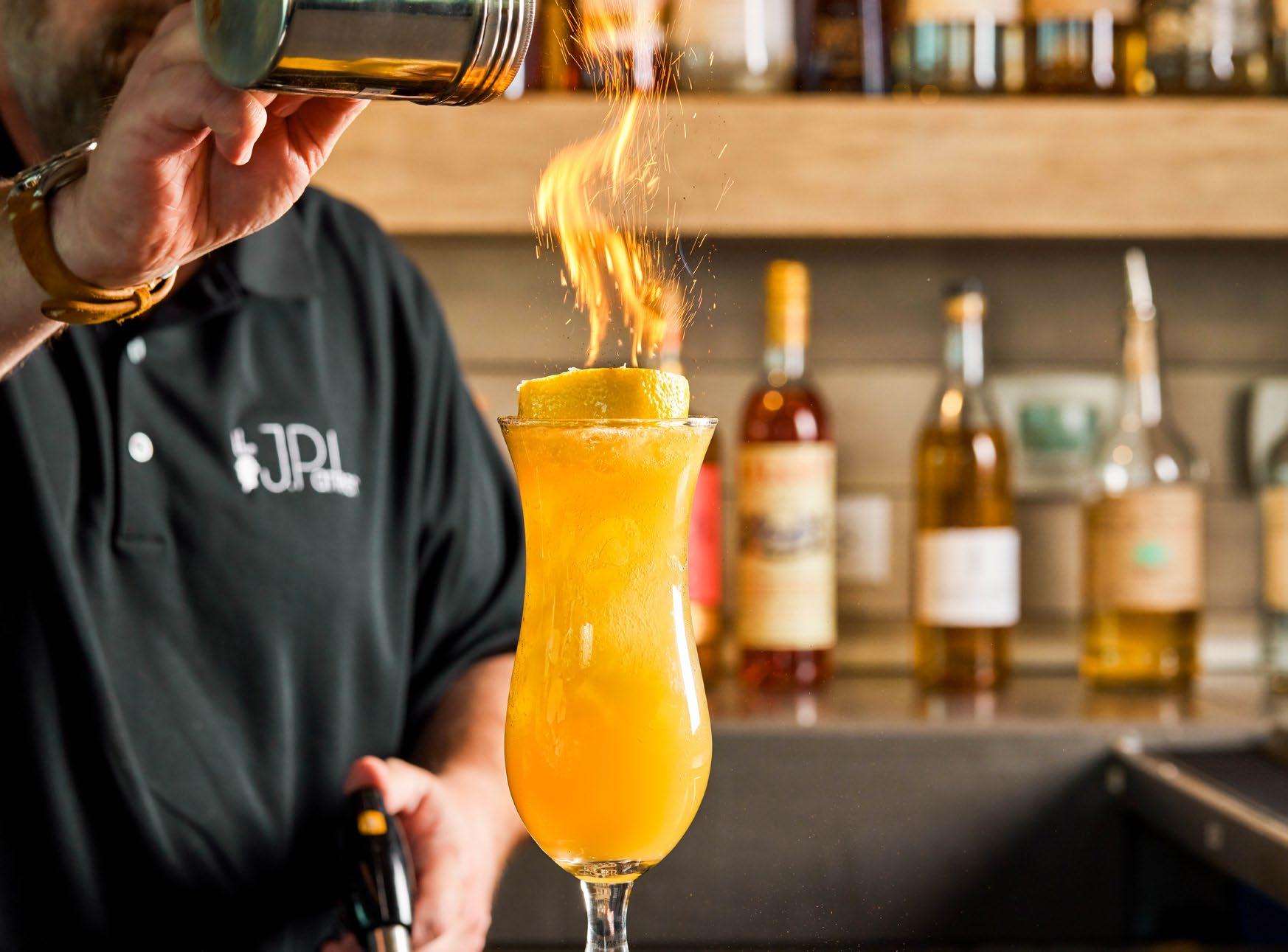
more knowledgeable than ever about spirits – not only the types but also the brands within each category.”
Cari Hallman, senior director of F&B at the Crescent Restaurant Group, says that guests have the liberty to design their own drinks at Urban Cove Society & Kitchen in New York. “We really wanted to cater to those guests who knew their spirits by allowing them to start with their favourite and then build their preferred drink from there.” Hallman says they also introduced tasting flights, enabling guests to discover new spirits.

At the Toronto-based Bisha Hotel, which enjoys a 50-50 profit split between food-and-beverage sales, Charles Khabouth, CEO of Bisha and INK Entertainment, says staying on trend is key. “We try to embrace the seasons with an accompanying menu change,” says Khabouth. “In the spring and summer, it’s refreshing

rosewater and bright, vibrant colours whereas in the fall and winter we transition to richer flavours.” He notes that similar to how chefs use seasonal ingredients in cooking, so too should bartenders.
Another trend is the shift to non-alcoholic or low-alcohol drinks. “We try to keep the menu fun and approachable by making our mocktails look as attractive as our alcoholic beverages,” says Khabouth. “You’ve got to consider how the drink looks — the type of glassware and presentation makes a big difference and can determine the price point.” Currently, he says their best-selling drink is an espresso martini.
Pratik Baxi, F&B director at the Sheraton Centre Toronto Hotel, says that non-alcoholic drinks and seasonal ingredients are a must. “That said, the term mocktails is a bit outdated –so we don’t use it anymore,” says Baxi. “It just has that ‘80s ring to it. Instead we call our non-alcoholic beverages zero proof – it’s much more modern-sounding.” He says research and experience shows that Gen Z has a bigger investment in health and wellness than other demographics.
“We find that Gen Z is more into novelty drinks, unusual flavour profiles, specific herb and botanical combinations,” says Baxi. “They’re up for trying something new and not necessarily to drink a lot of alcohol. We have one drink, for example, that has duck fat in it – and it’s something everyone wants to try.” The Sheraton Centre Toronto Hotel currently makes 25 to 30 per cent more on their beverage menu than their food menu.
Previously, Baxi notes that options for non-alcohol drinkers were limited. “Now we can offer a different service where virtually every drink on the menu can be made with or without alcohol and visually, it doesn’t signal whether or not the alcohol is in the drink or not — no one can tell the difference,” he says.
Additionally, the combination of chili with fresh fruit drinks is noteworthy. “Our combination of watermelon and chili is a big hit,” says Baxi. “But our cucumber-
based drink is our most popular at the moment. Low-alcohol beer is also very fast-trending.” The key, he says, is lifestyle.
Creative Beverage director Grant Sceney at Fairmont Pacific Rim’s Botanist Restaurant takes cocktails to the next level. Named one of the top 24 bars in North America, Sceney has invented drink experiences that can cost up to $40 per beverage. A case in point is his Raincouver Cocktail that features an edible rain cloud made with actual helium that floats and “rains” into the drink.



Made with vodka, cherry blossom, yuzu, pine asperitif wine, fennel pollen, and Perrier sparkling water, the Raincouver cocktail is an homage to Vancouver weather. “We like to play with creative couplings,” says Sceney, who says he thought of the drink after always hearing about how rainy Vancouver is. “I thought, why not lean into it? At the Botanist, we highlight local ingredients and celebrate our local culture – so why not the rain?”
Sceney operates a beverage lab where he concocts his latest drinks and also manages the various hotel bars within the Fairmont Pacific Rim. But despite the venue’s identity, Sceney says his top sellers are the espresso martini, aperitif cocktails, spritzers of any kind, and negronis. Among Sceney’s most famous twists on the old classics is the Botanist Marine Martini. “Instead of the pickle juice, we have sea asparagus water, which is absolutely delicious,” he says. Made with dry gin, a house vermouth, kombu, chive oil, and sea asparagus, the drink infuses the beverage with local ingredients and flavour.
Another nod to Vancouver is Sceney’s Beekeeper cocktail
made with bourbon, honey, chartreuse and locally foraged candy-cap mushrooms. Since his artistic creations take a significant time investment, Sceney says that prep work can cut the time required to make one of his specialty drinks. “Guests don’t want to wait 10 to 15 minutes for a drink,” he says. “That’s why a bartender’s best trick can be pre-making the martini mix, the margarita mix, and so on. That makes the execution simple though the drink itself is complex.”
When it comes to drink creation, Sceney advises bartenders to stick to a structure that guests can somewhat recognize. “People want to relate it to something they have tasted before –whether that’s a whiskey sour, a martini, or a margarita. It makes the drink more consumer-friendly.”
It also lays the groundwork for a certain type of storytelling. “Customers want to hear the story of the drink. This makes the experience that much more layered for them,” says Sceney. “All flavours and tastes bring with them a certain memory for guests – that’s why making these new beverages is so powerful and satisfying.”



REACH OUT TO YOUR SALES REPRESENTATIVE TODAY TO EXPLORE EXCITING SPONSORSHIP OPPORTUNITIES.

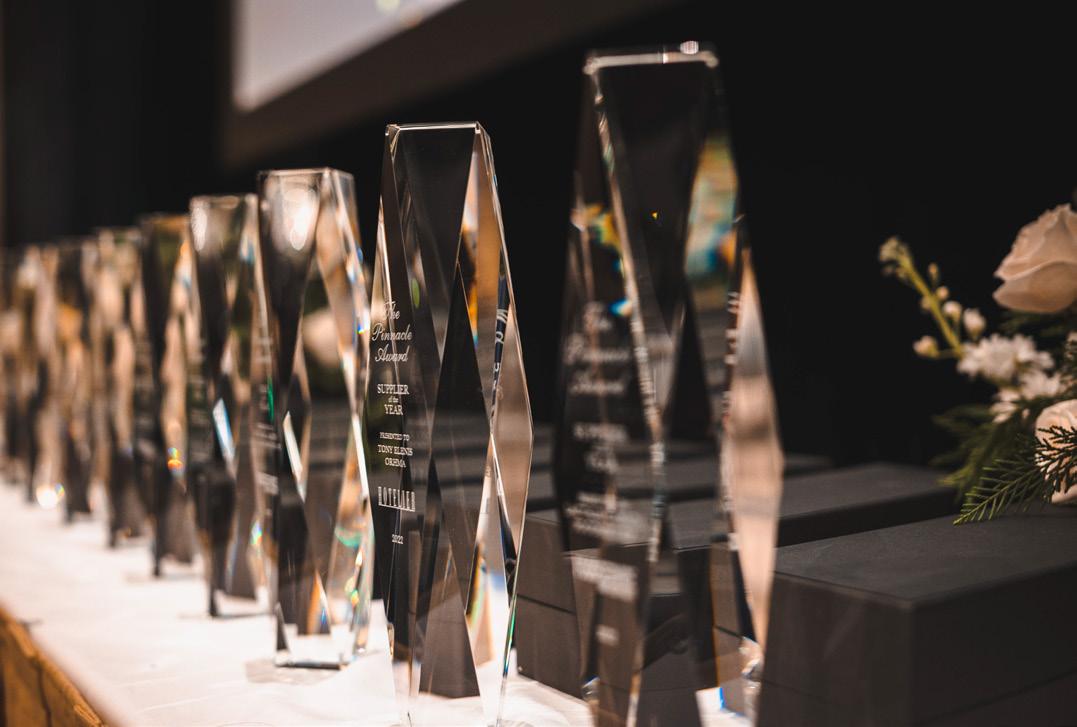
BY ROSANNA CAIRA
Madone Pelan fell in love with hotels and hospitality at an early age, fuelled by a passion for travel. “Although it was not a straight path to becoming a GM, I knew I wanted to excel in this industry and opportunities opened along the way,” says the mother of one. Her career was launched through a summer job at the age of 16 when she was hired by Princess Cruises as frontline staff to do embarkation check-in at Canada Place. “Halfway through the summer, they deployed me to do remote check-in at the five major hotels — Pan Pacific, Waterfront, Four Seasons, Sutton Place and Westin Bayshore.” That was her first taste of hotels, “and I was hooked,” she recalls.
Today, Pelan is GM of the Oak Bay Beach Hotel in Victoria, B.C. where she’s been working since 2015, starting as director of Sales and Marketing and then becoming GM a few weeks prior to the pandemic.

“The Oak Bay Beach Hotel is a boutique luxury hotel, located right on the ocean. It combines the best of everything — a wonderful history, and a luxury resort feel with heated mineral pools overlooking the Salish sea. The hotel is large enough to have four restaurants and a spa but small enough to feel intimate, allowing us to really get to know each of our guests,” says the B.C. native, who oversees 230 staff servicing 100 rooms.
“Our mission is to be leaders in our industry. We do this by investing back in our staff first — happy staff equal happy guests and happy guests are great for our bottom line.” It’s a credo that’s hitting the mark given the hotel was chosen as the number-1 hotel in Canada by Conde Nast Travel Readers’ Survey and number 19 in the world for 2021.
Like every hotelier, Pelan says the pandemic “had a swift and brutal impact. However, it gave us the unique opportunity to re-visit everything we do and build back better. The pandemic also reinforced Pelan’s belief that “people are everything,” adding that hoteliers need to “lead with empathy. And, as a leadership team we looked at where we were in that moment and asked ourselves what do we want to say we accomplished a year from now? What will our legacy be? This became our mantra through the following months and years to come.”
With an ADR of $450, and a $350 RevPAR, Pelan says the hotel started the year looking at four per cent revenue growth projection, but it now “looks like the year will end stronger than anticipated.”
The hotel is set to undertake a full guestroom renovation. “We’re also looking to re-invest in our Boathouse Spa for further upgrades and converting our rooftop into another F&B offering.”
To differentiate the property from the pack, Pelan says it’s important to adapt to the changing needs and wants of guests. “Many guests want to align their travel with their values and look for sustainability and corporate social responsibility when choosing how to spend their travel dollars. Personalized service coupled with authentic local experiences create memories that will be unique to your hotel.” ♦
Advice for other hoteliers or aspiring hoteliers: Build relationships with other hoteliers and people in our industry so that you can reach out when you have questions.
Stress busters: Exercise, including yoga and meditation, is important to me and helps me to de-stress.
Hobbies: I stay active and hike on weekends when I can. I also volunteer on several boards and committees. My husband is a chef, so we love to explore and support local businesses and restaurants.
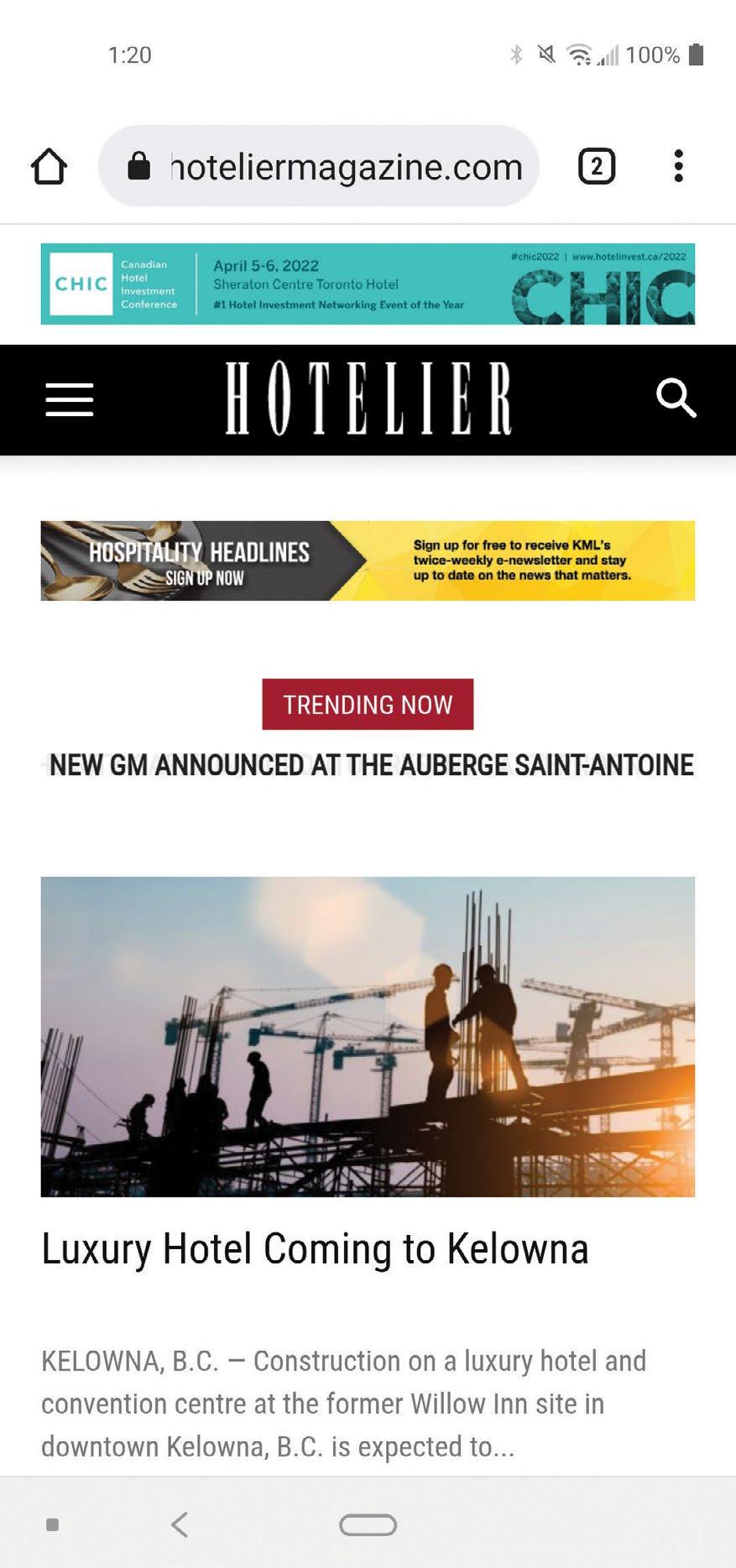




Check out the Checking In podcast to listen to conversations between editor and publisher Rosanna Caira and hotel industry leaders speaking about the issues impacting the dynamic hotel industry.

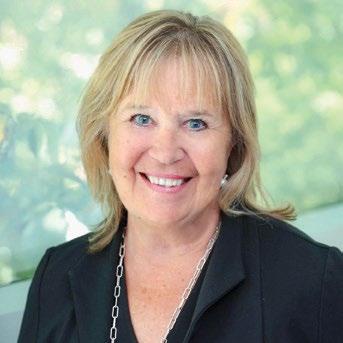



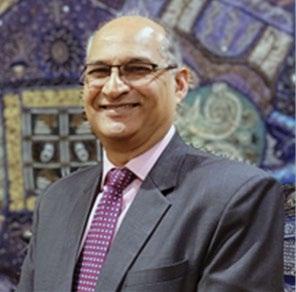
E48. STRENGTH IN NUMBERS
INGRID JARRETT
PRESIDENT & CEO
B.C. HOTEL ASSOCIATION

E47. DRIVING SUCCESS ANDY LOGES
AREA GENERAL MANAGER, CANADA EAST & OHIO | HILTON
E46. LEADING WITH CARE FRANK MENEZES
PROFESSOR & PROGRAM
COORDINATOR, HOTEL OPERATIONS
MANAGEMENT, SCHOOL OF HOSPITALITY & TOURISM
MANAGEMENT | GEORGE BROWN COLLEGE
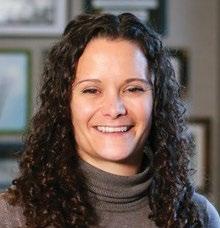

E45. MAKING IT HAPPEN
LIZ HOVEY-SMITH



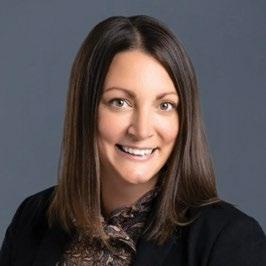

GM | POMEROY KANANASKIS
MOUNTAIN LODGE, ALBERTA
KARA EDWARDS
GM | THE ALYESKA RESORT, ALASKA
CHECKING IN podcast episodes are available at hoteliermagazine.com/category/media/podcast/ or find them on and
